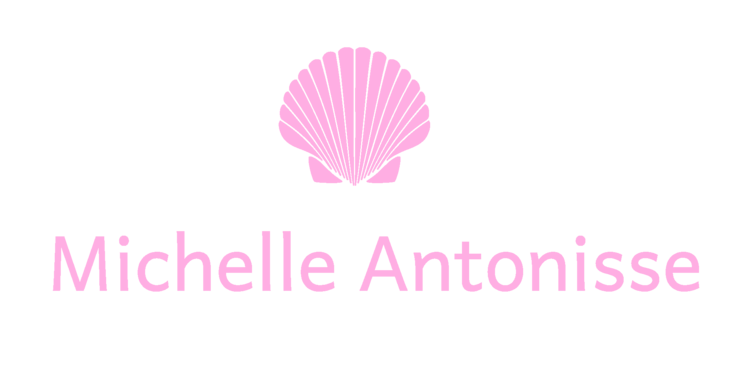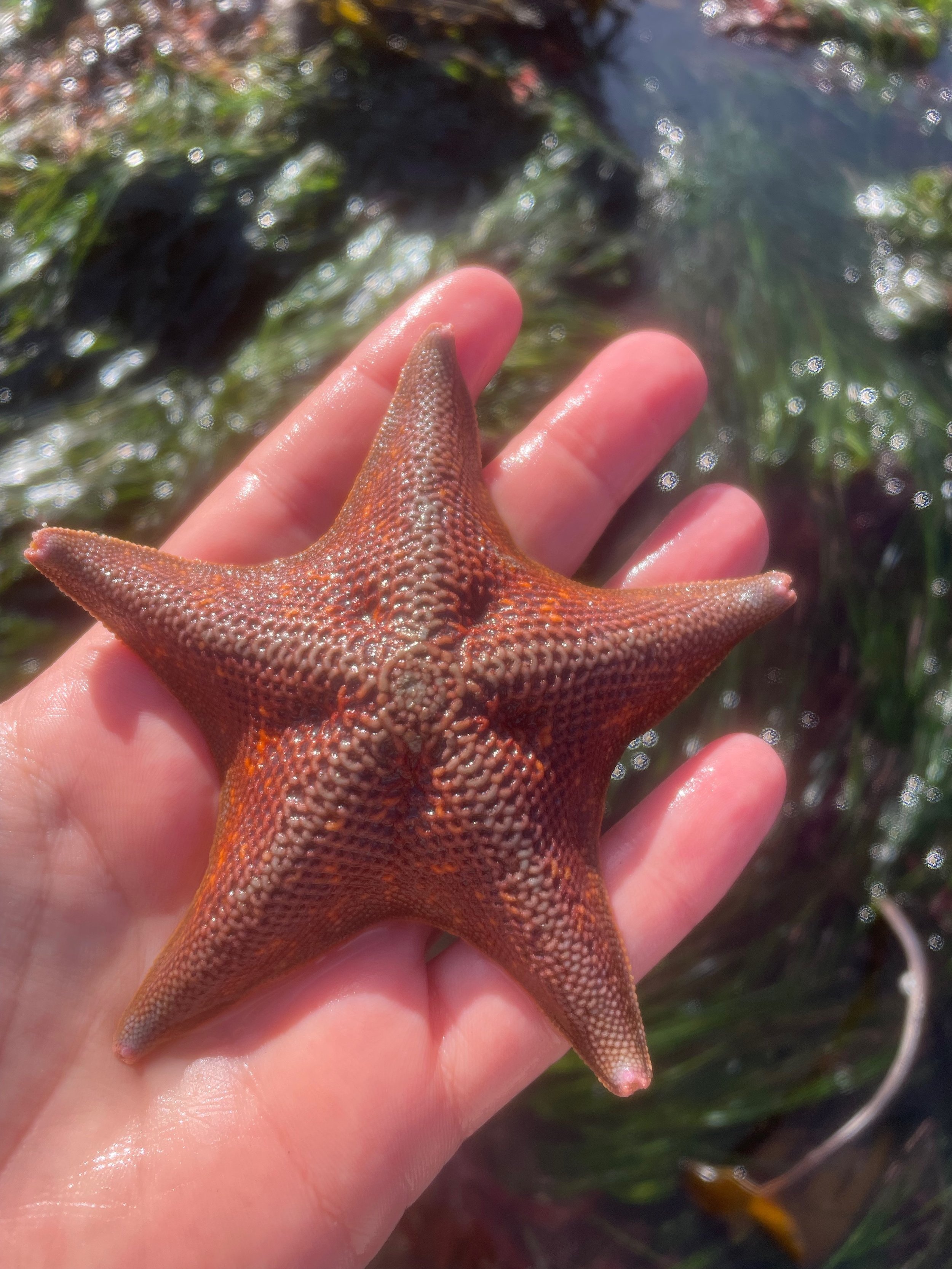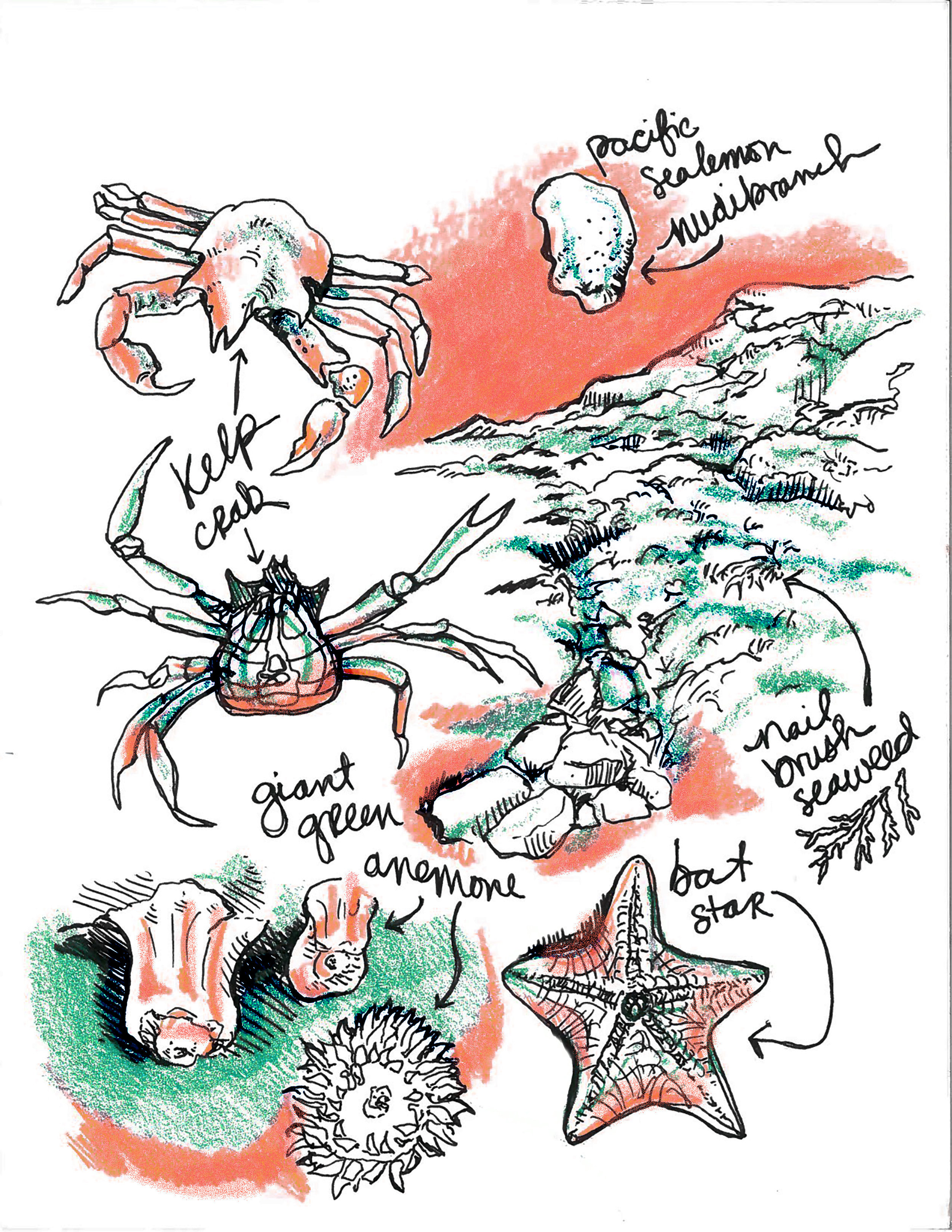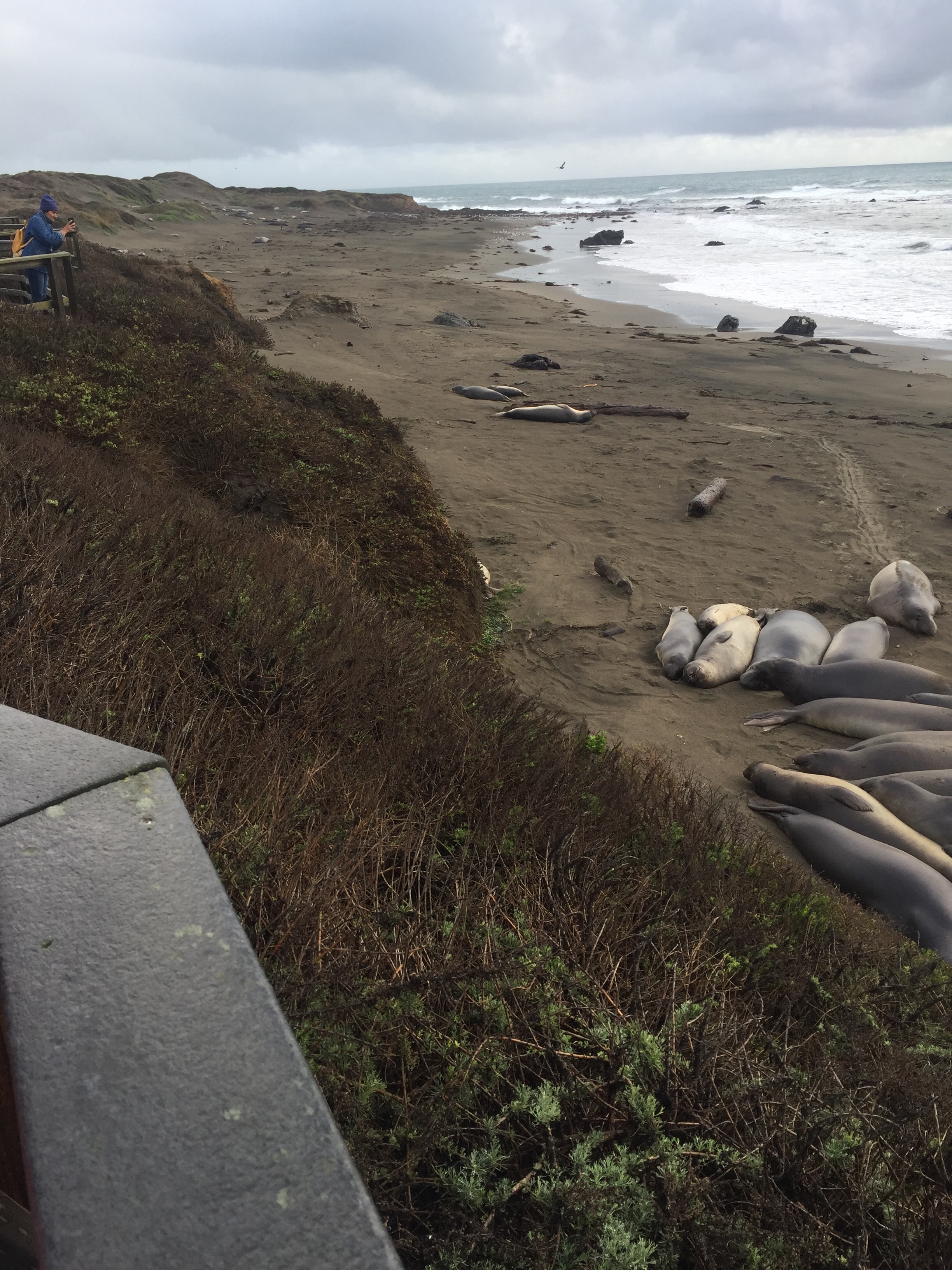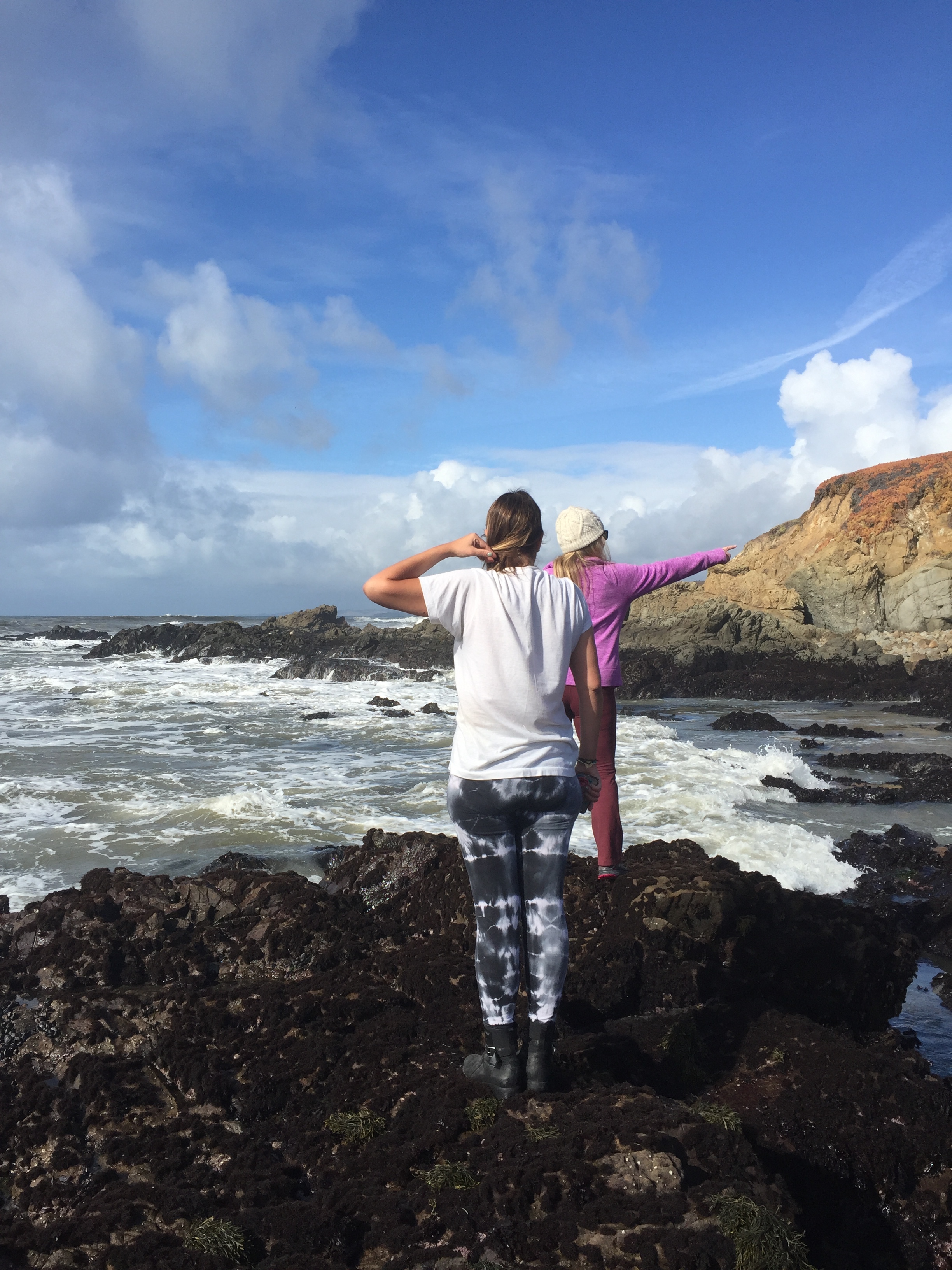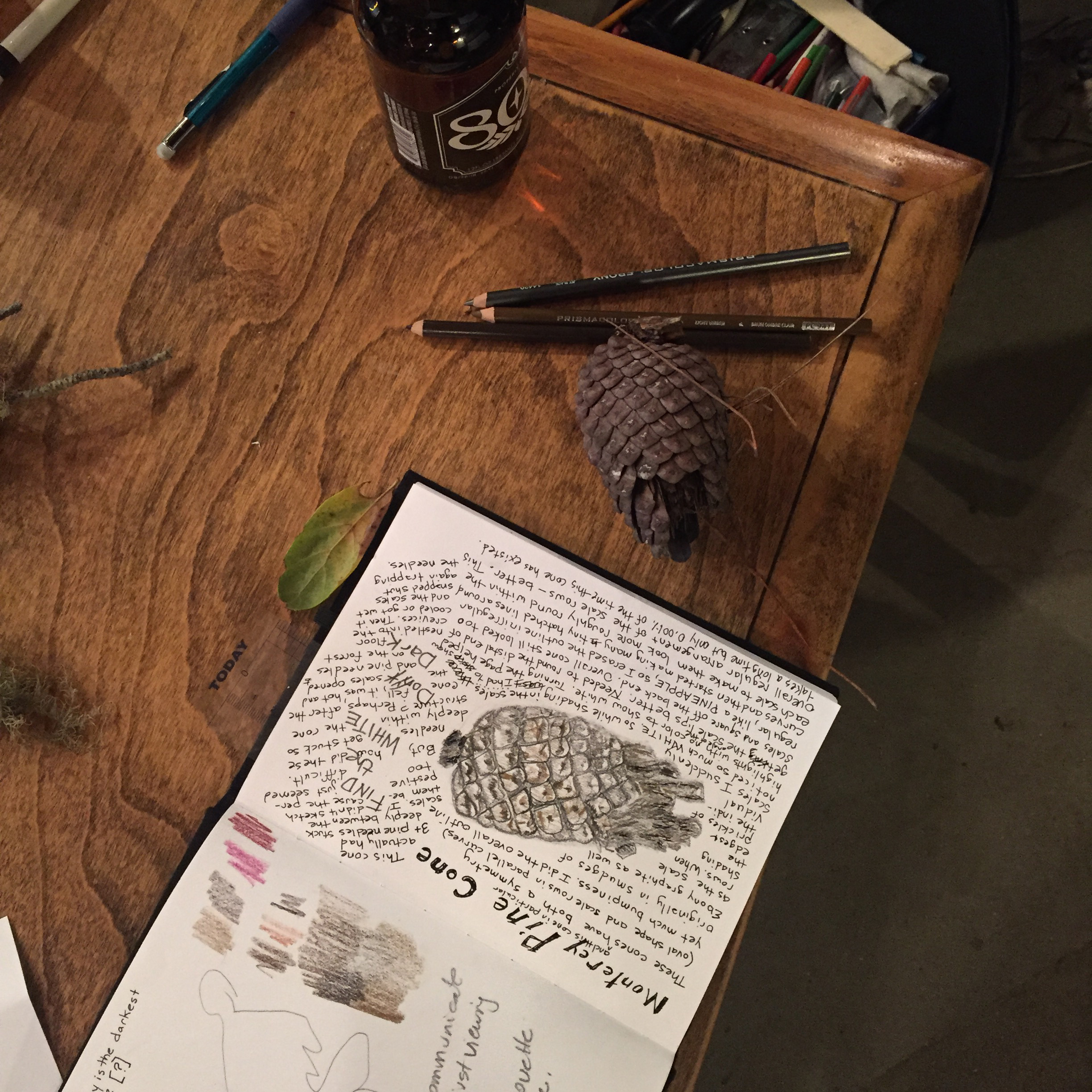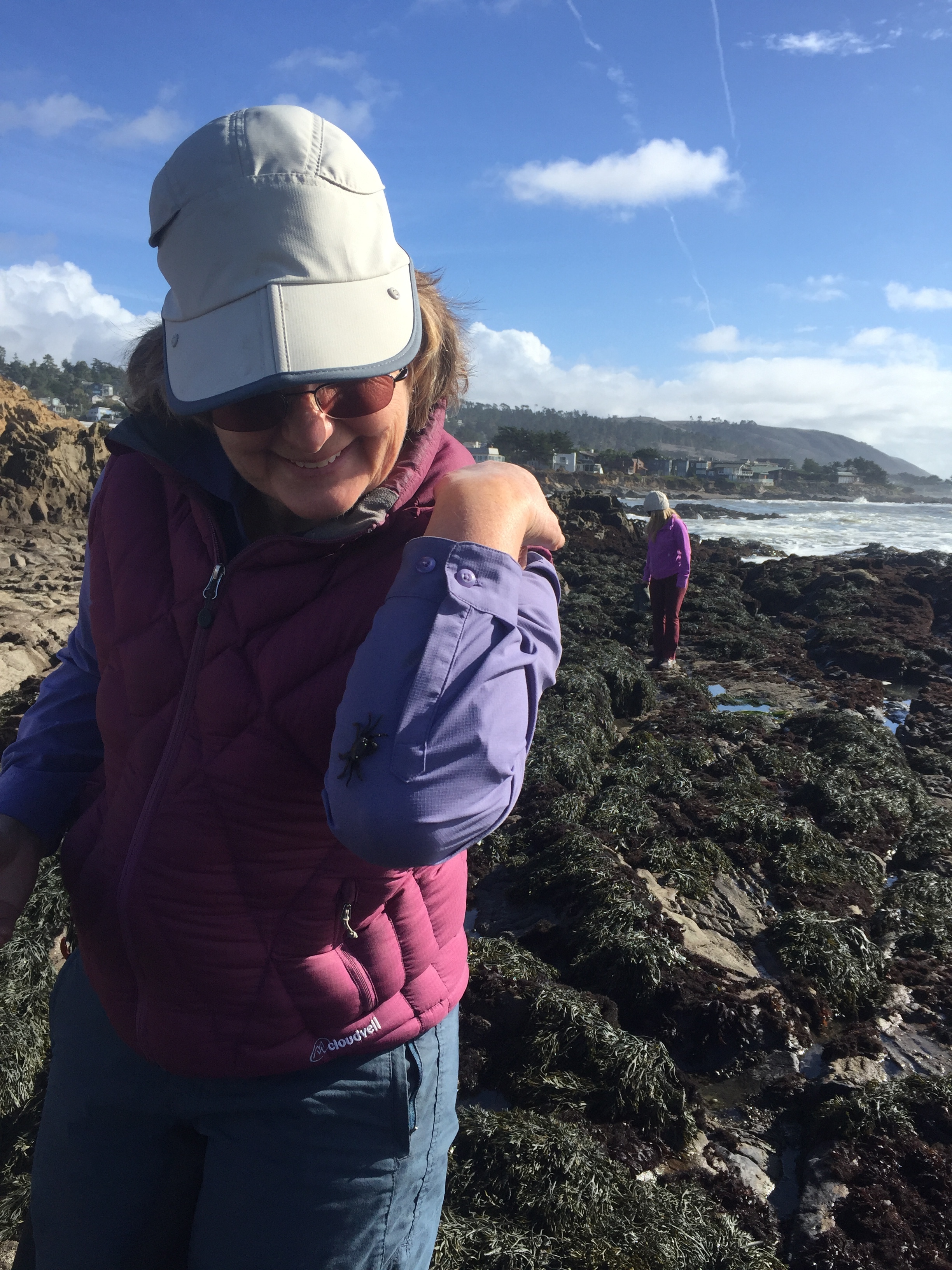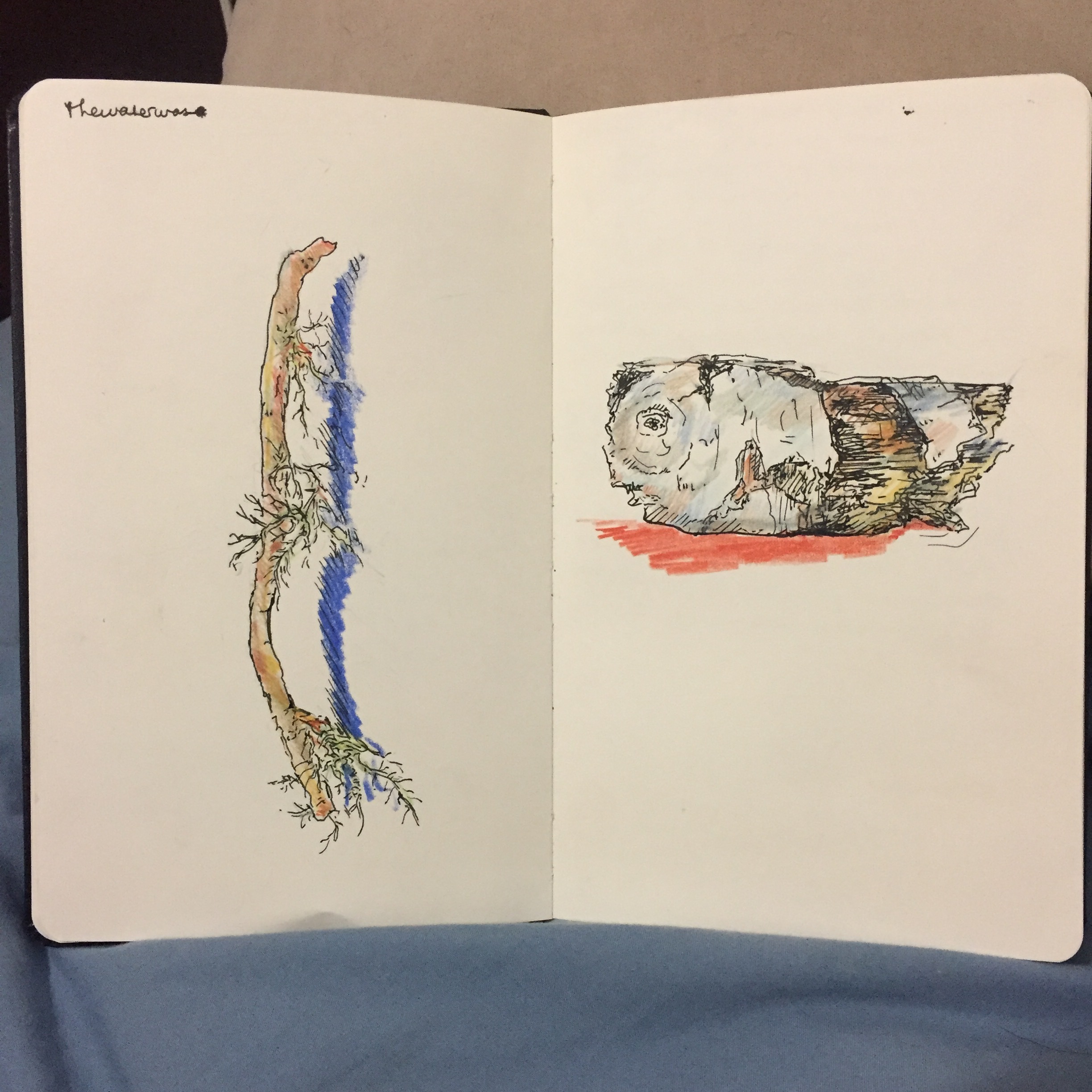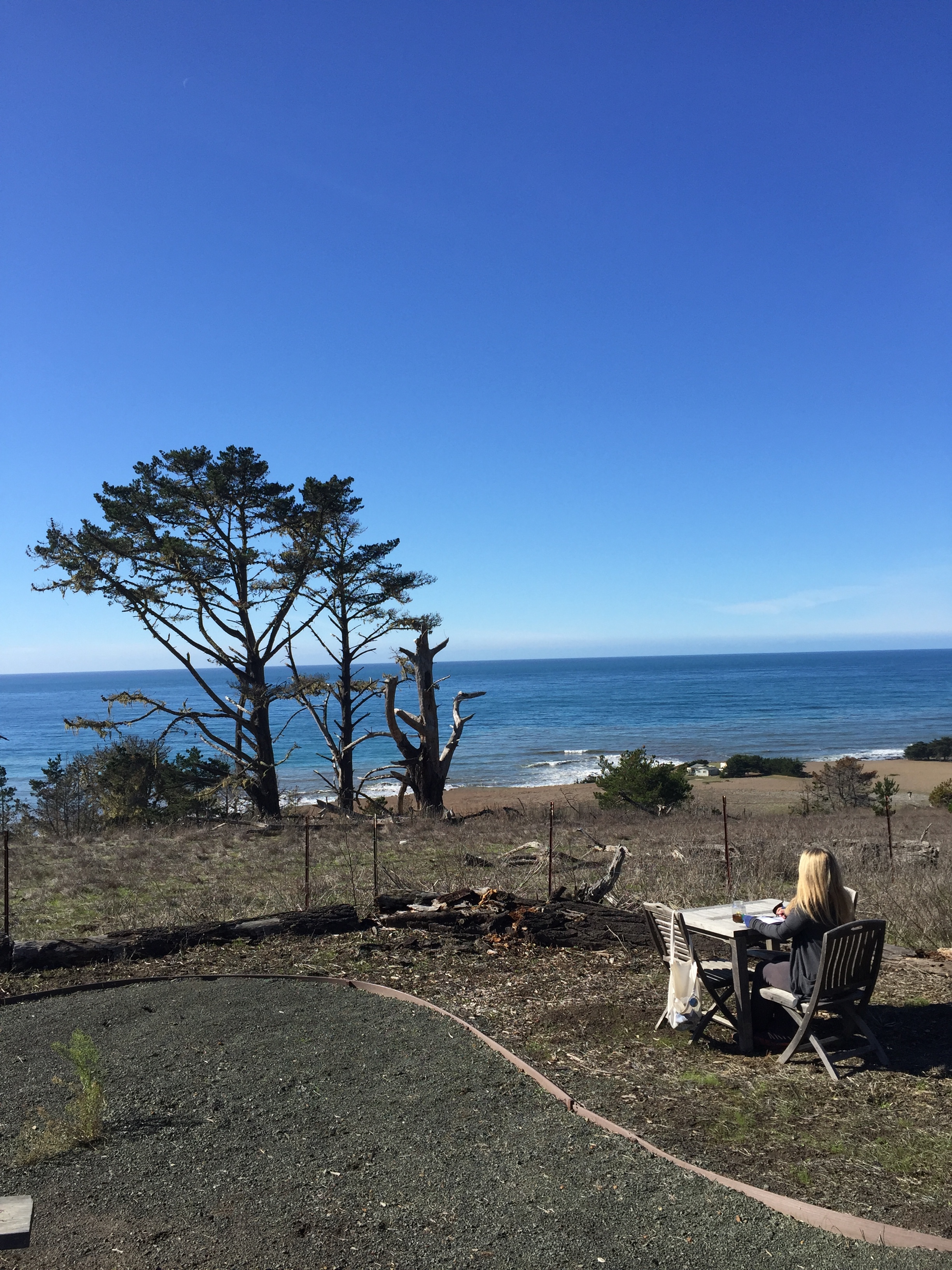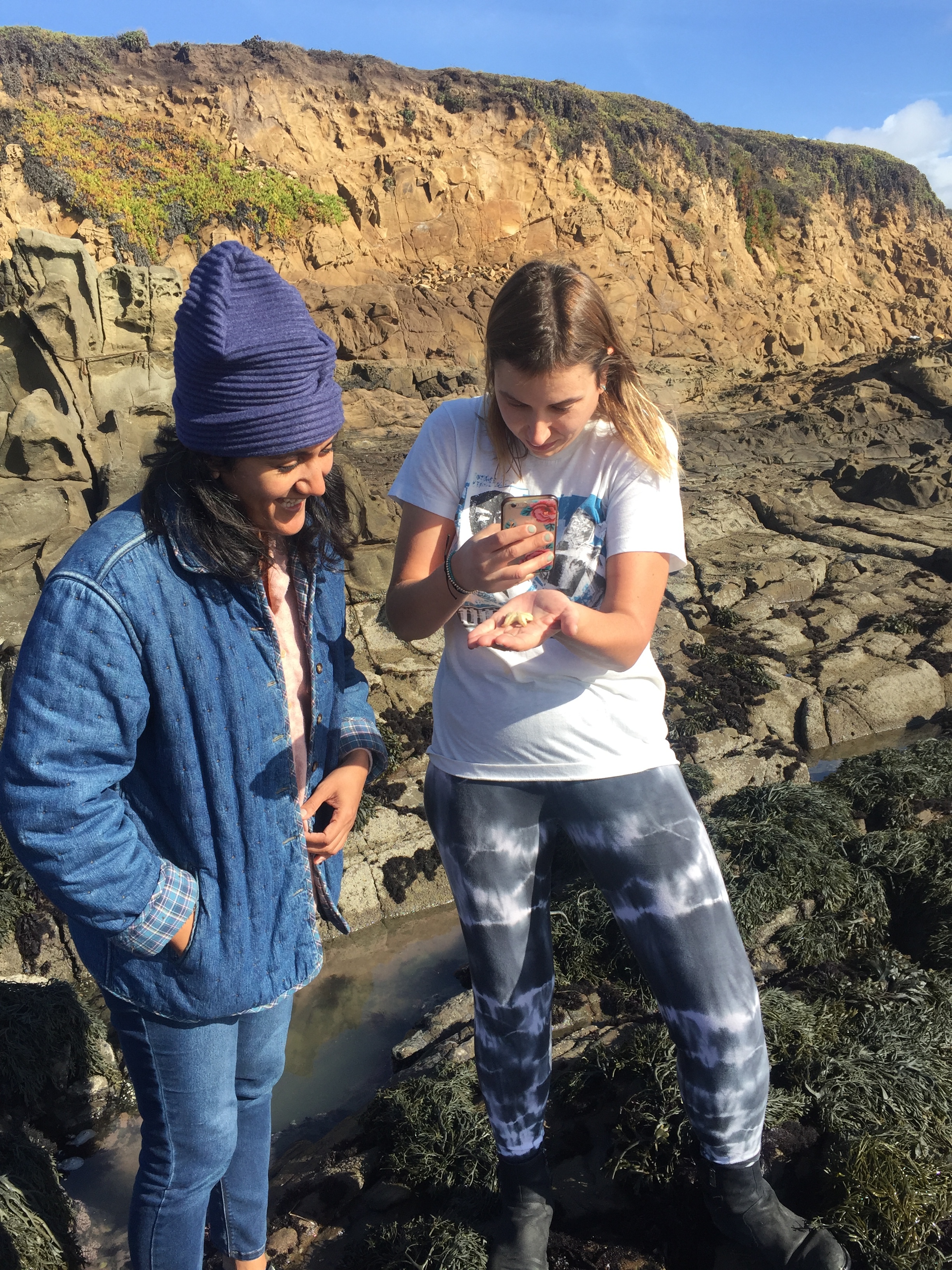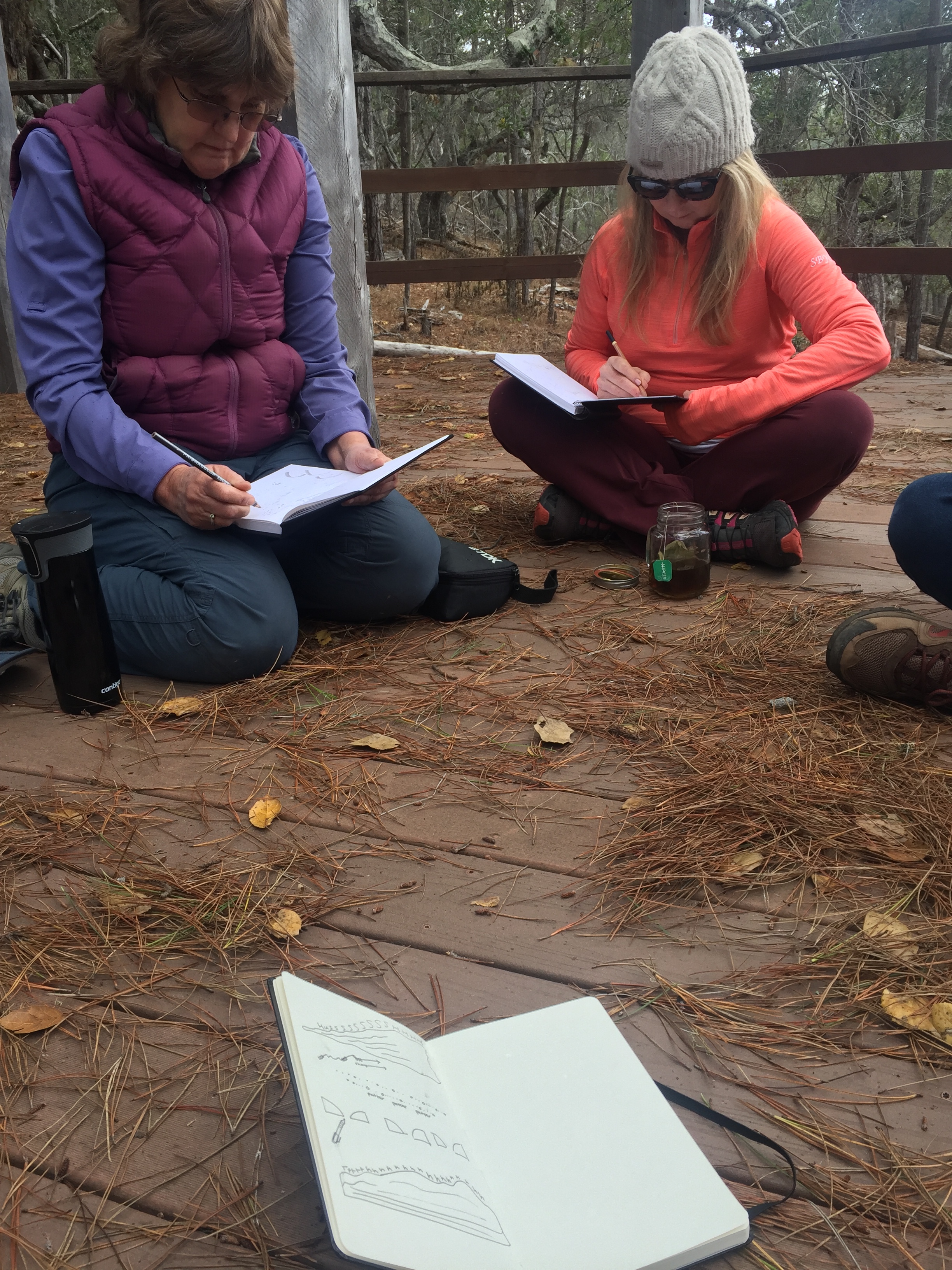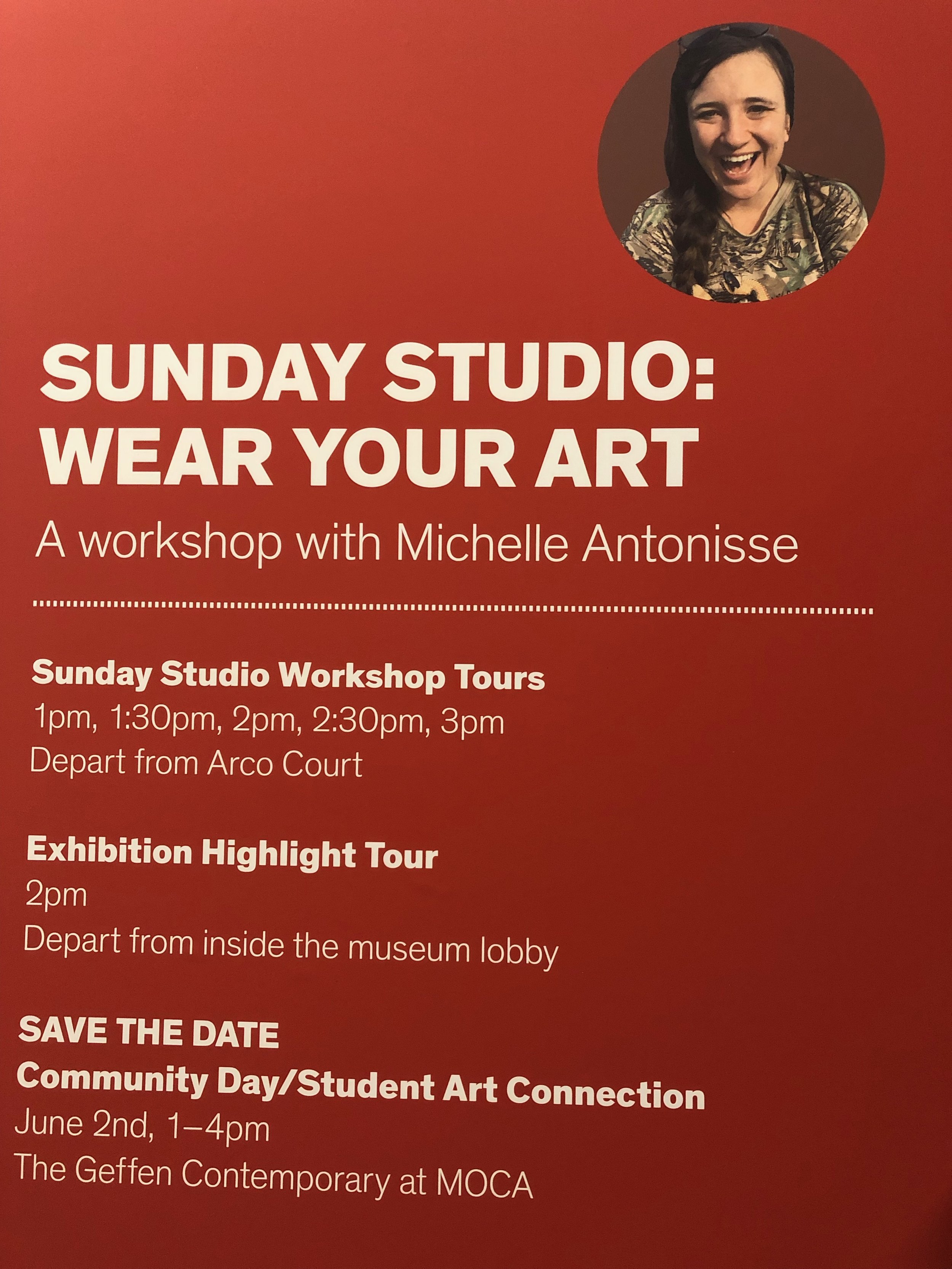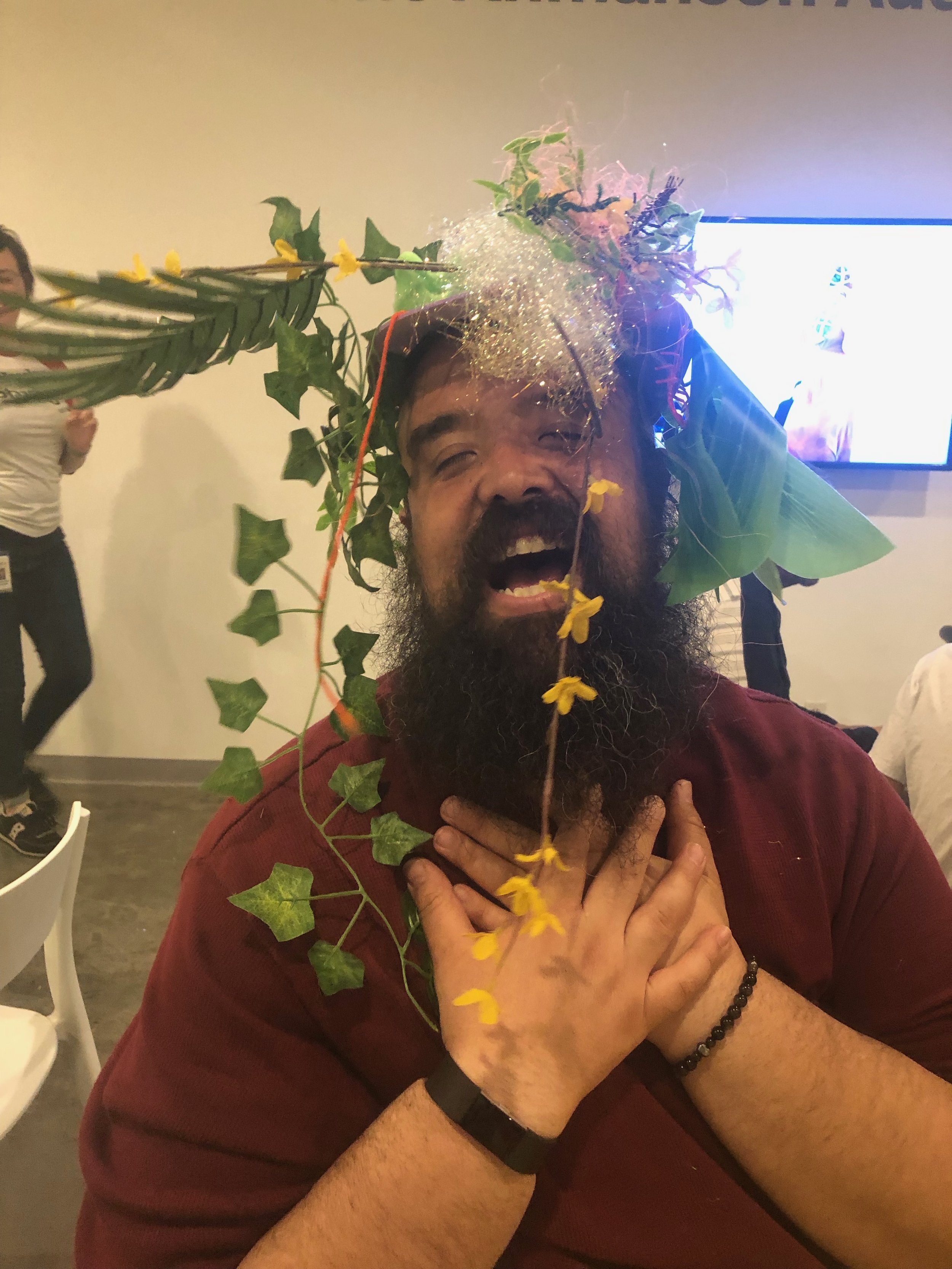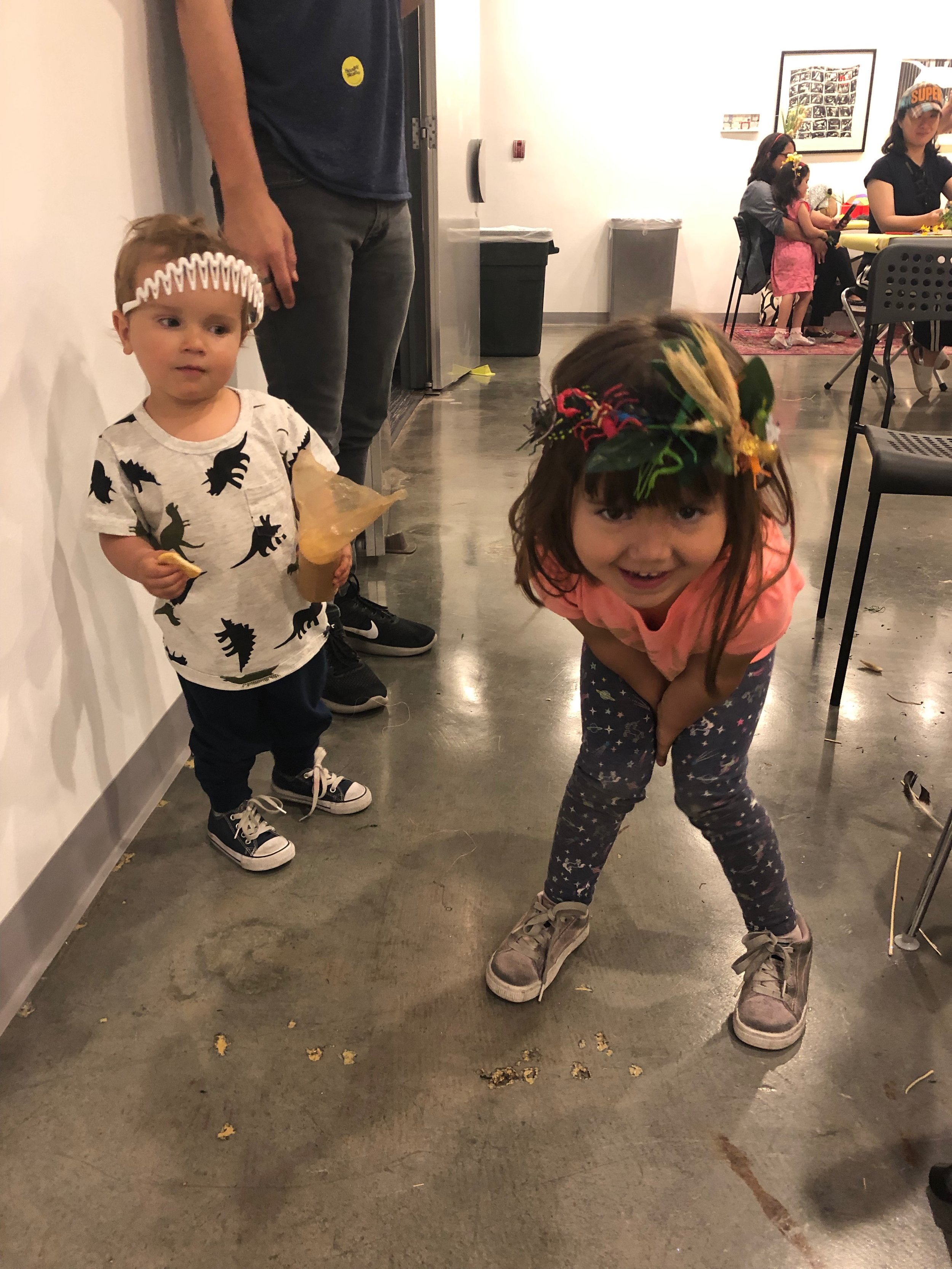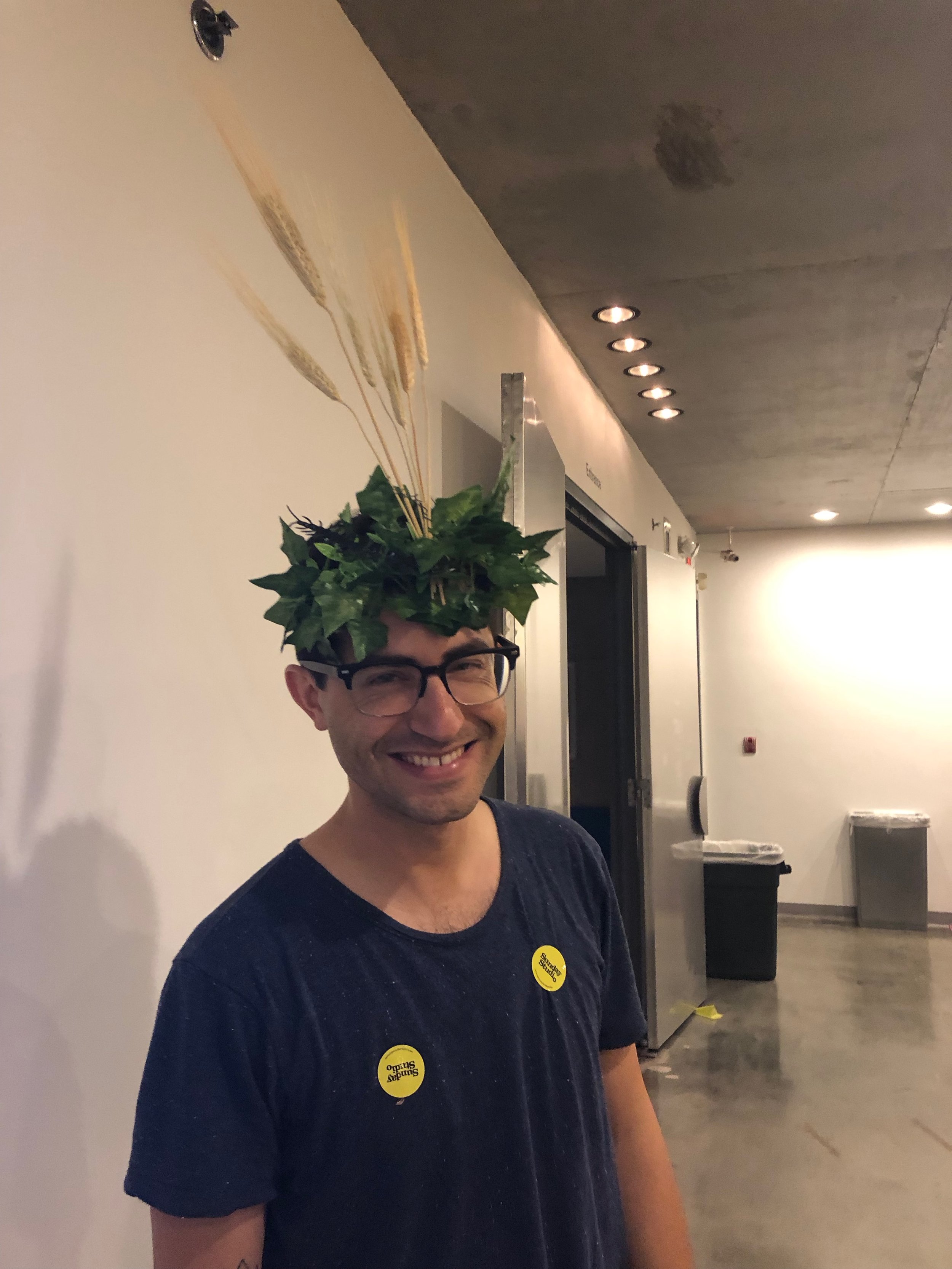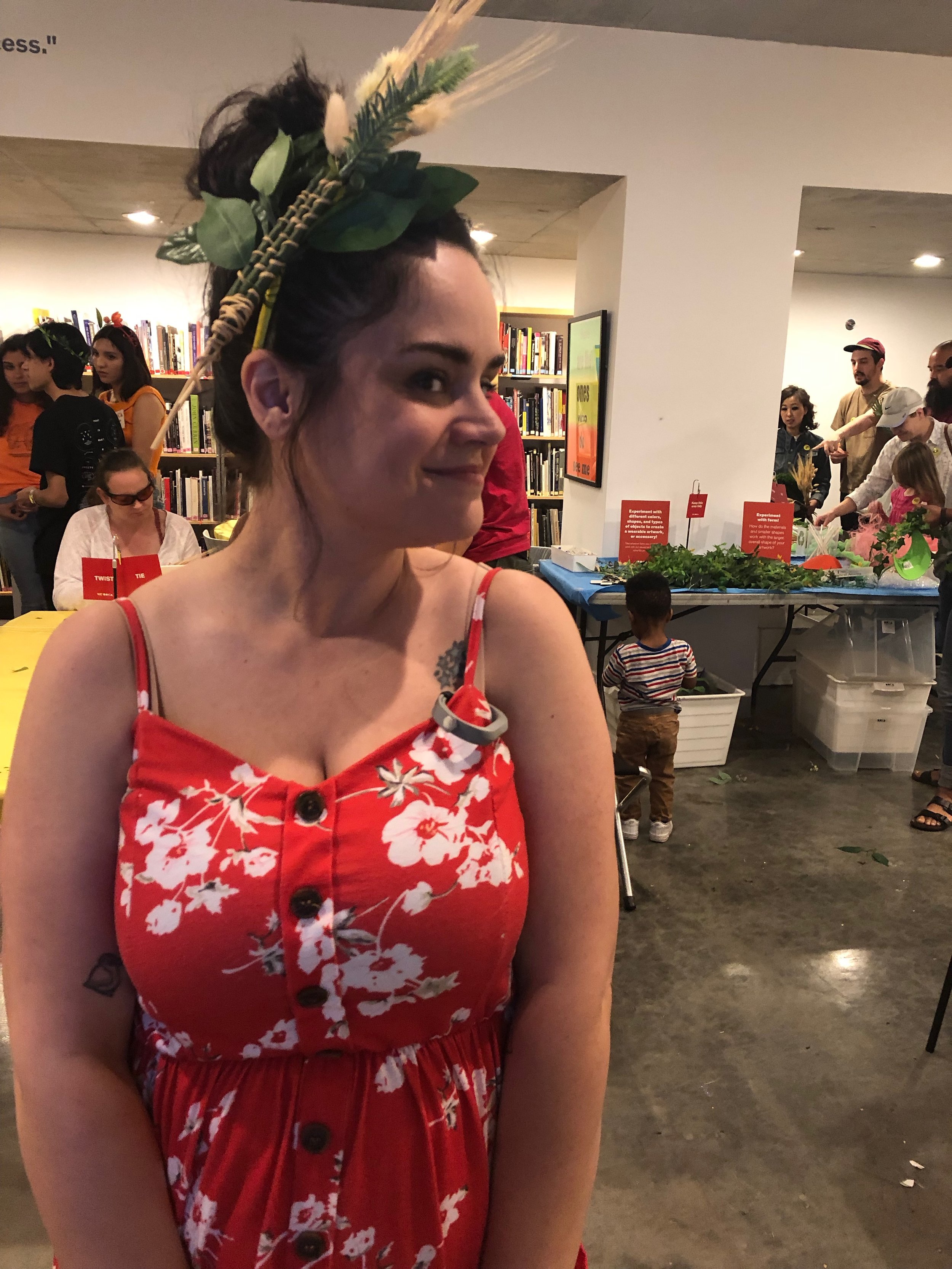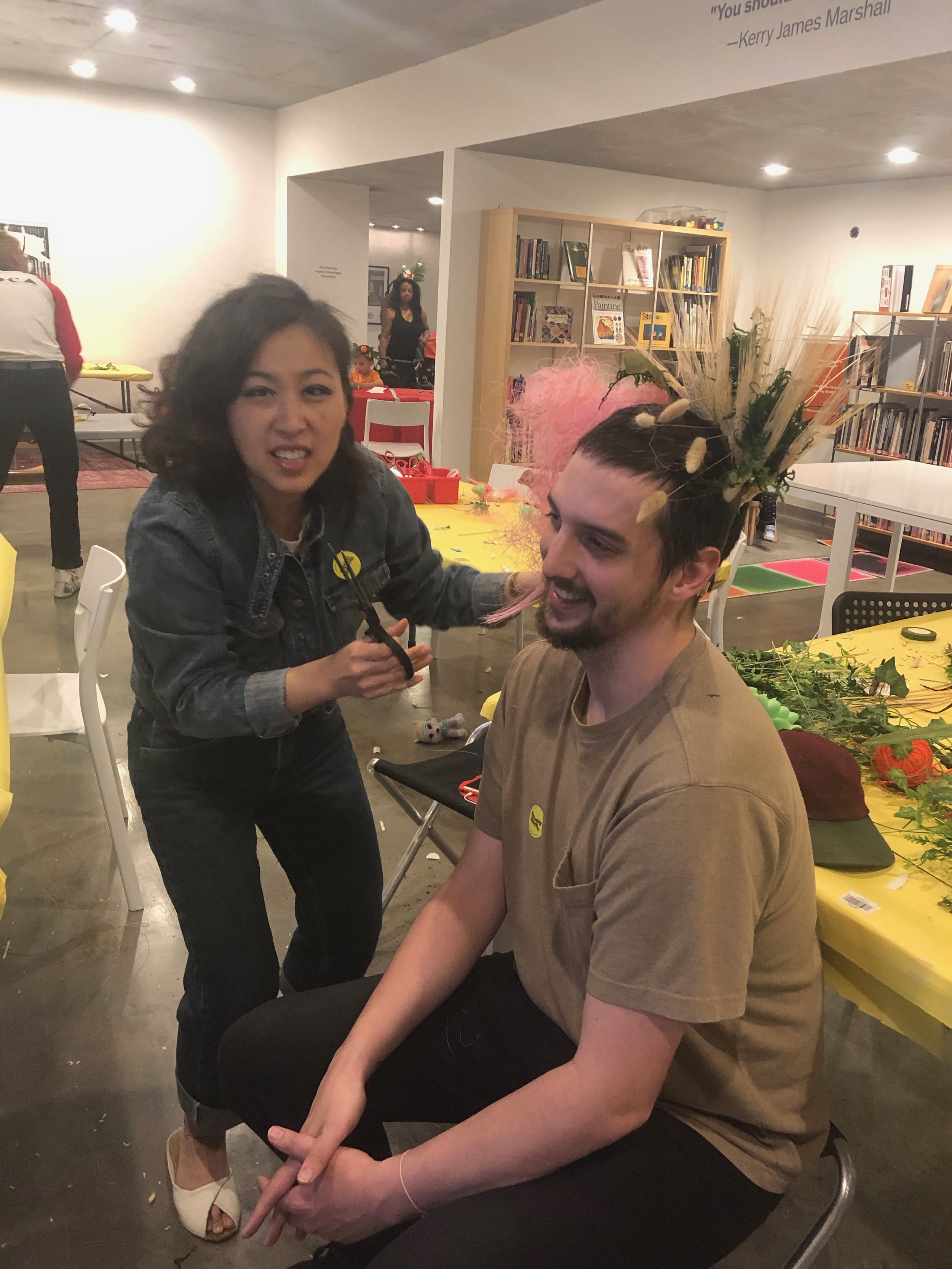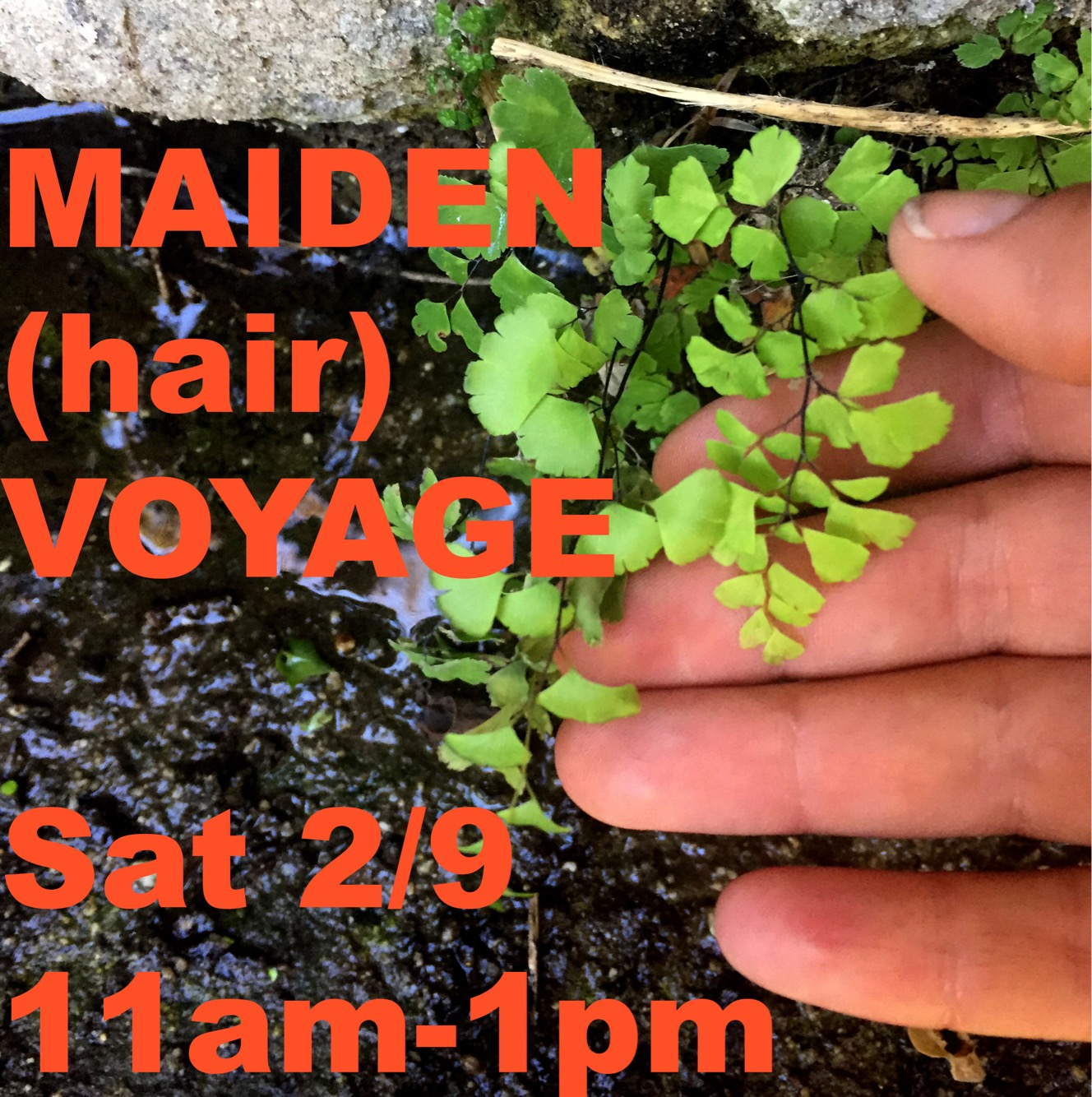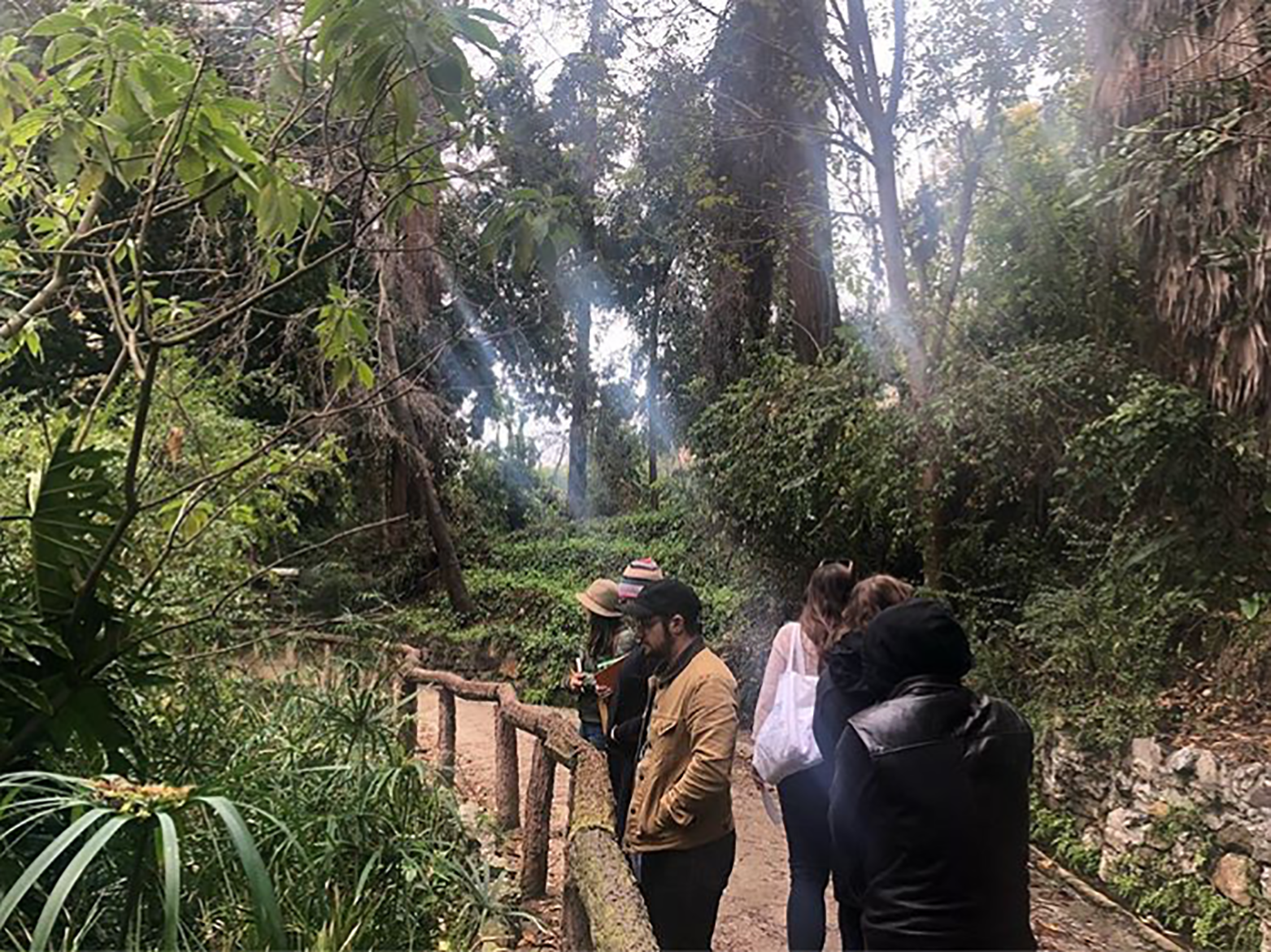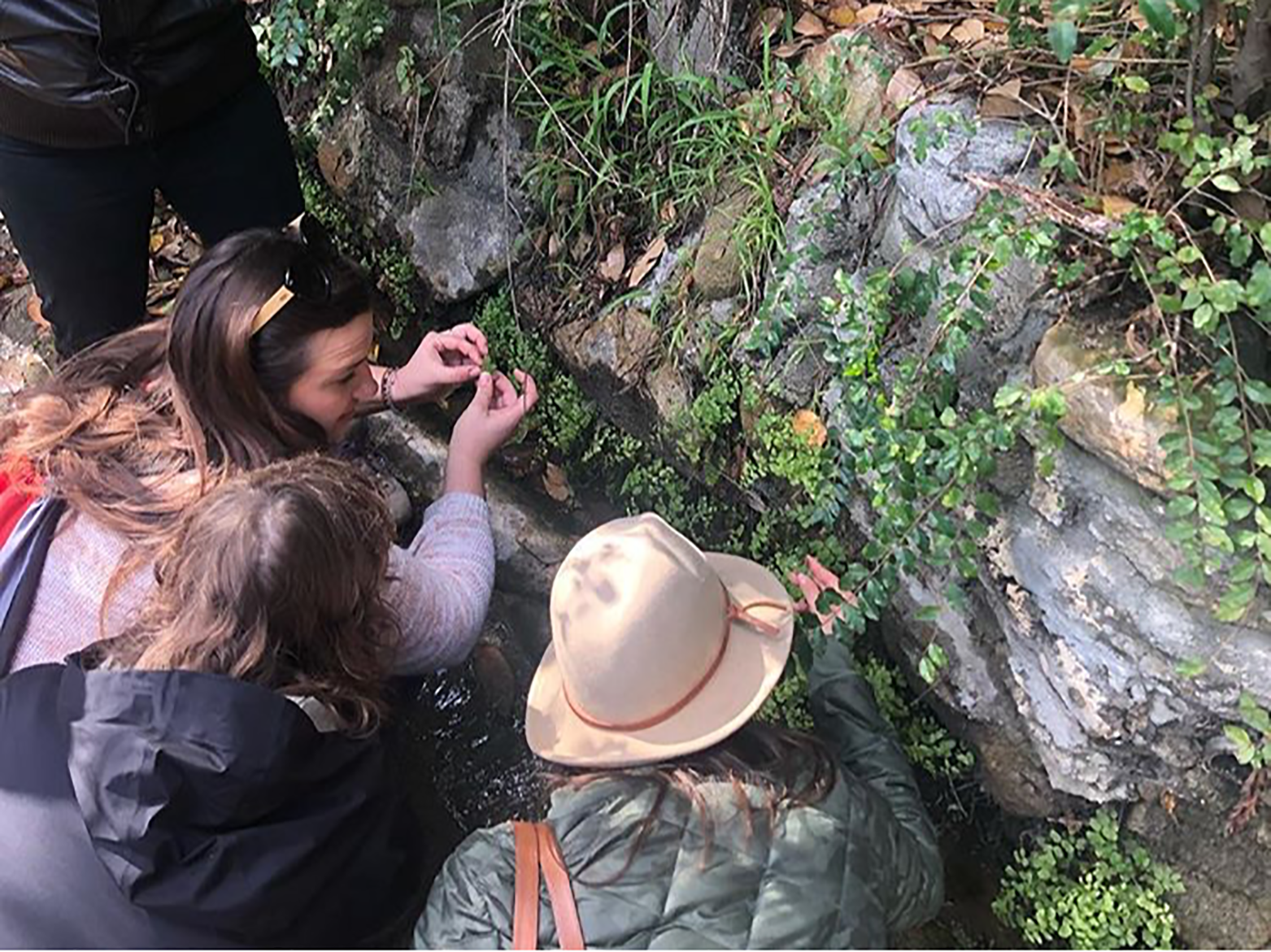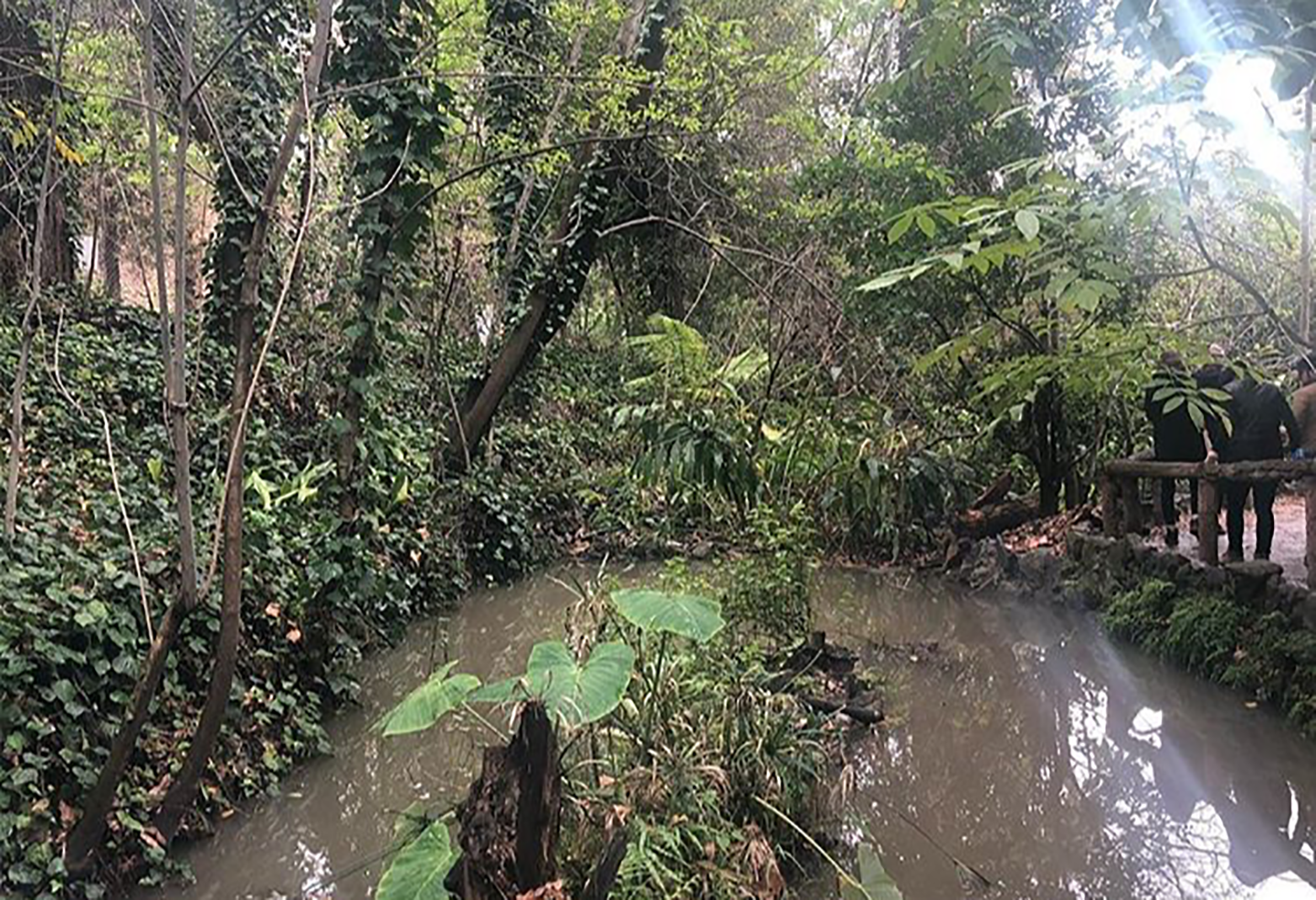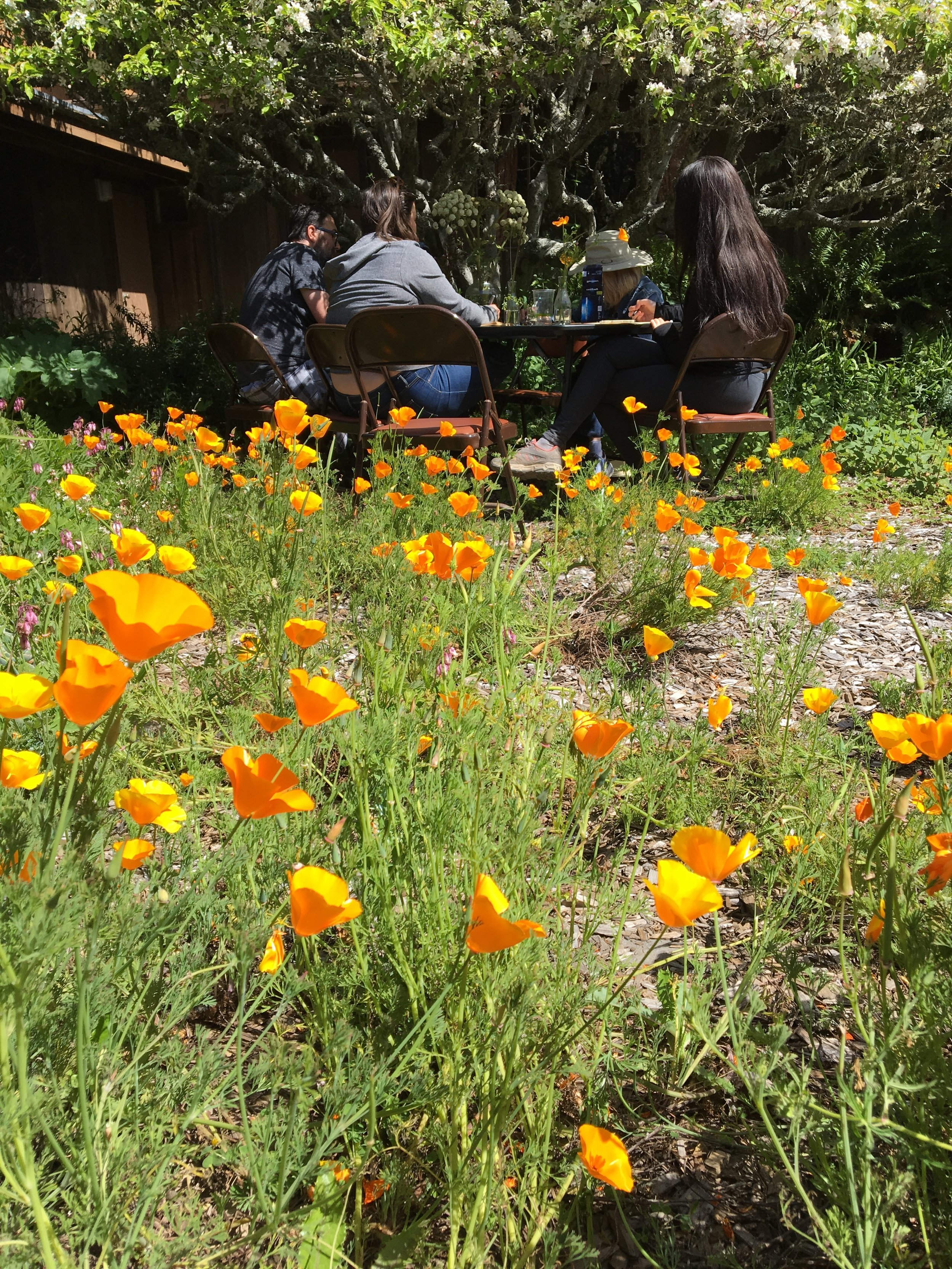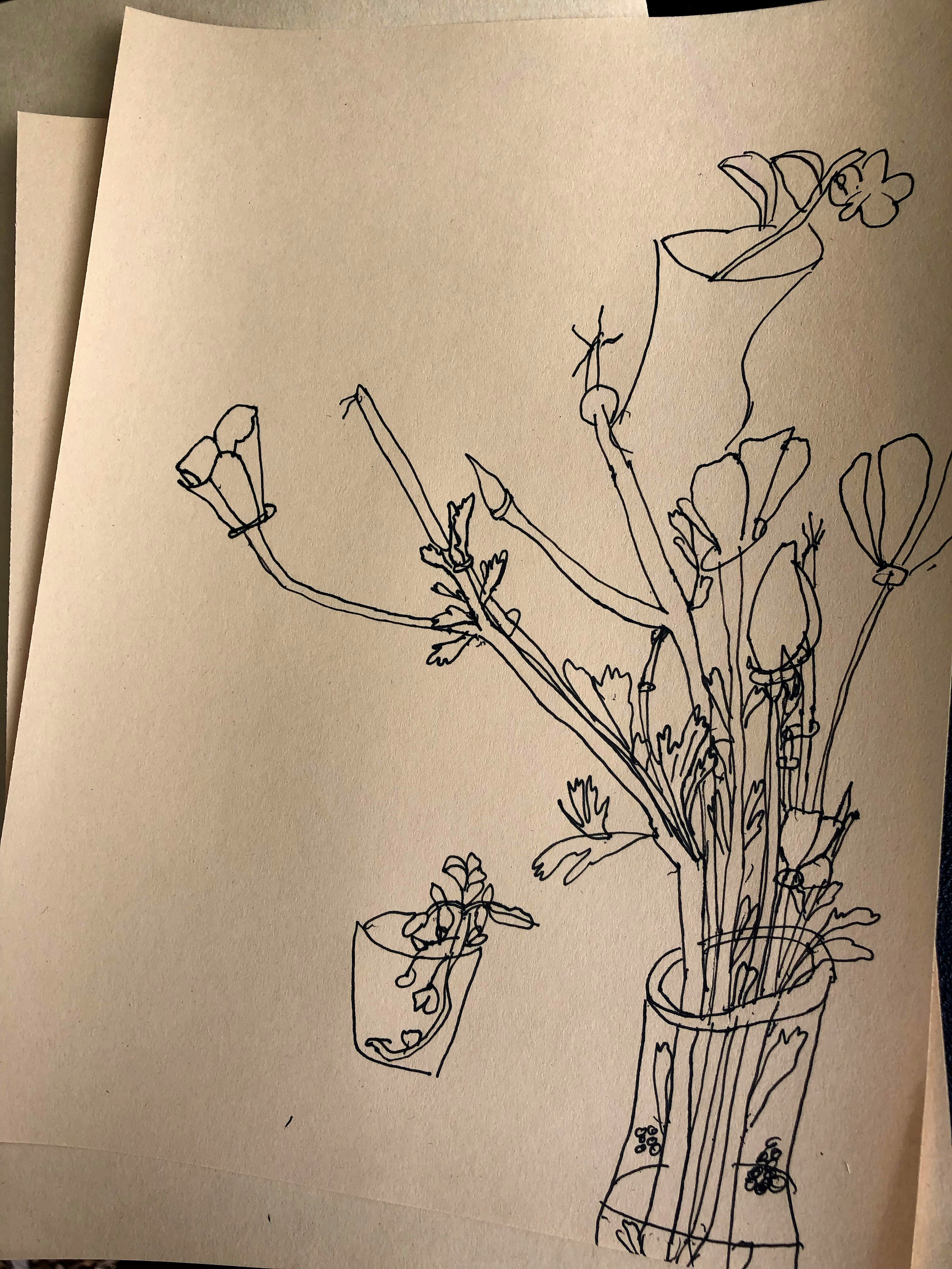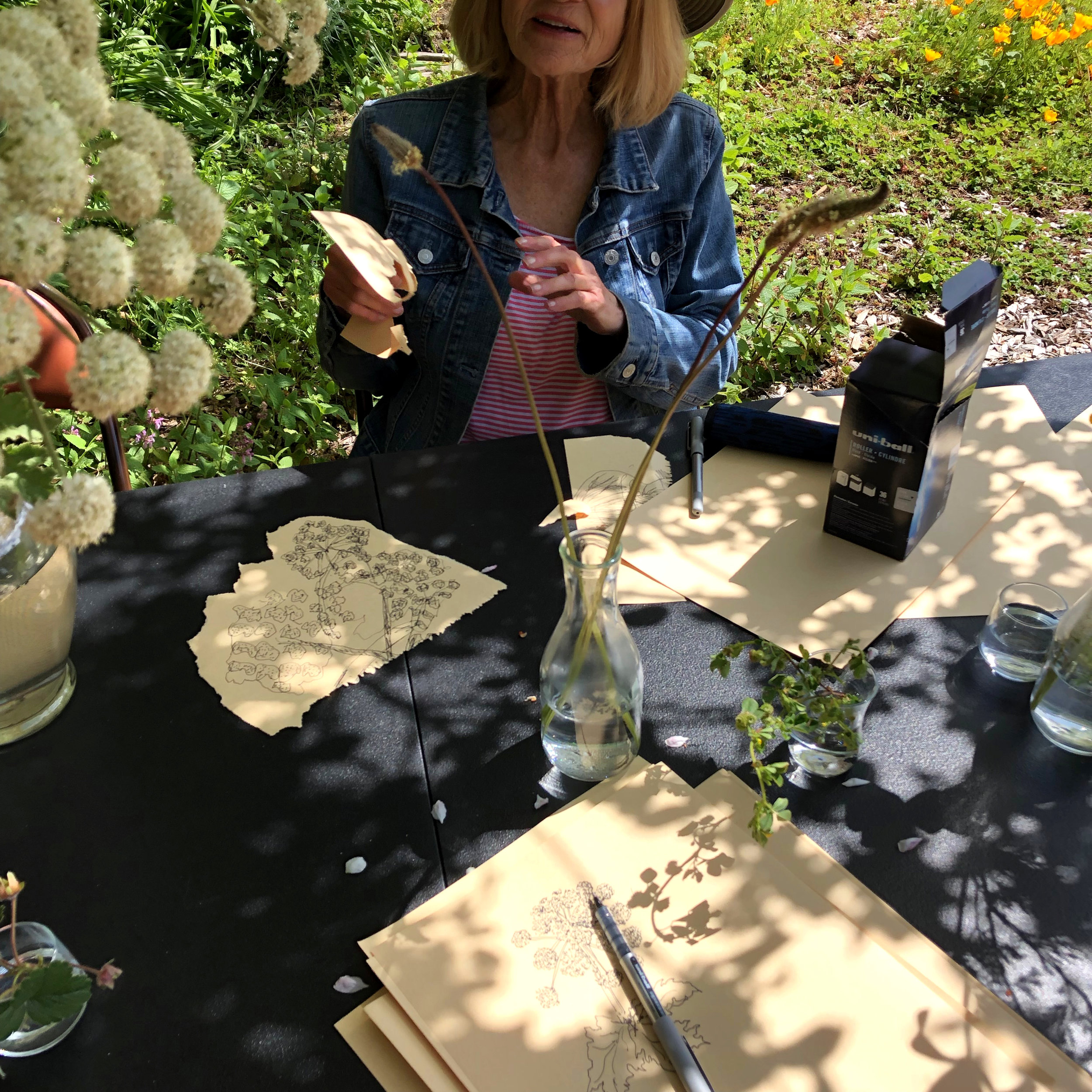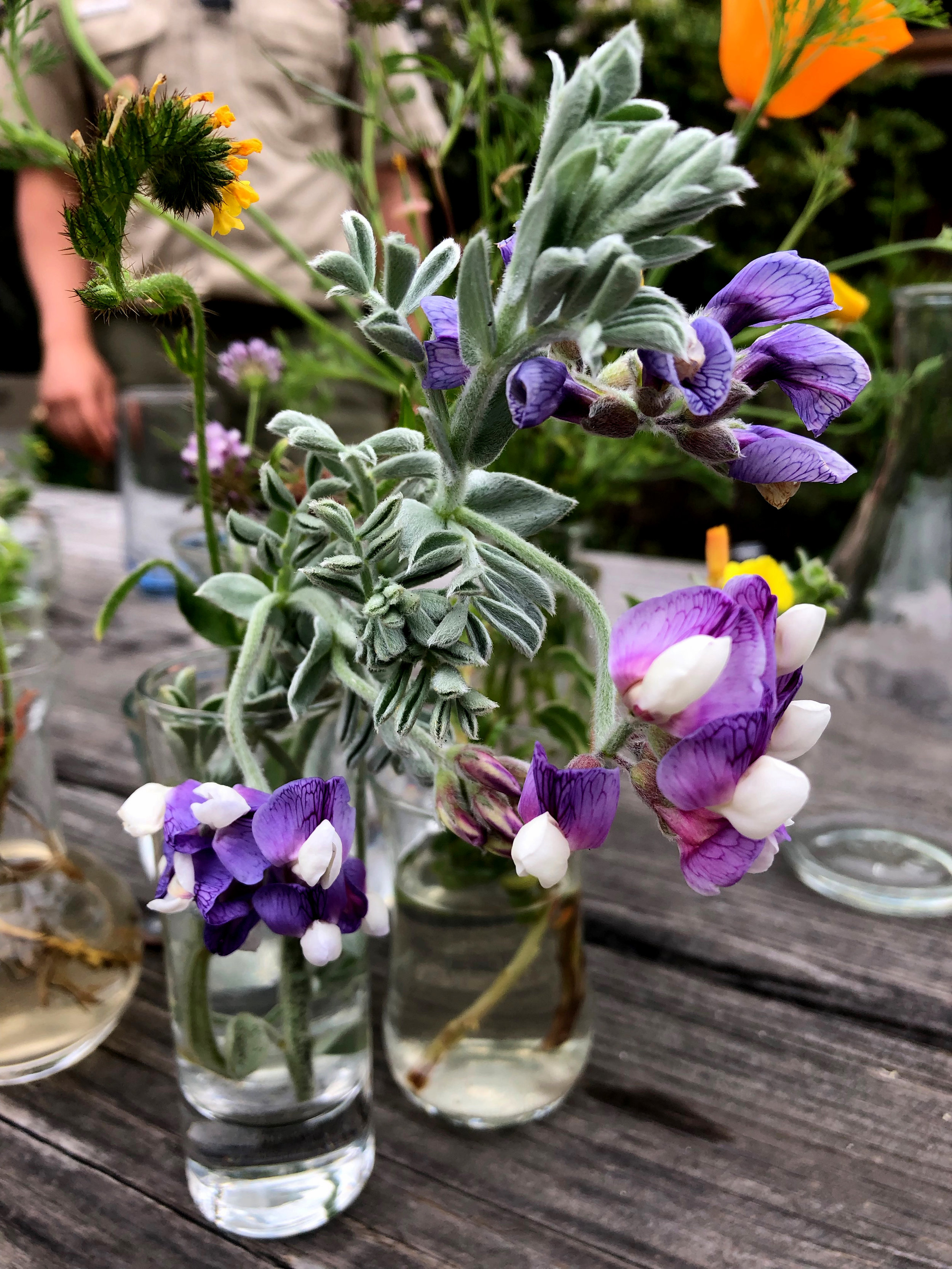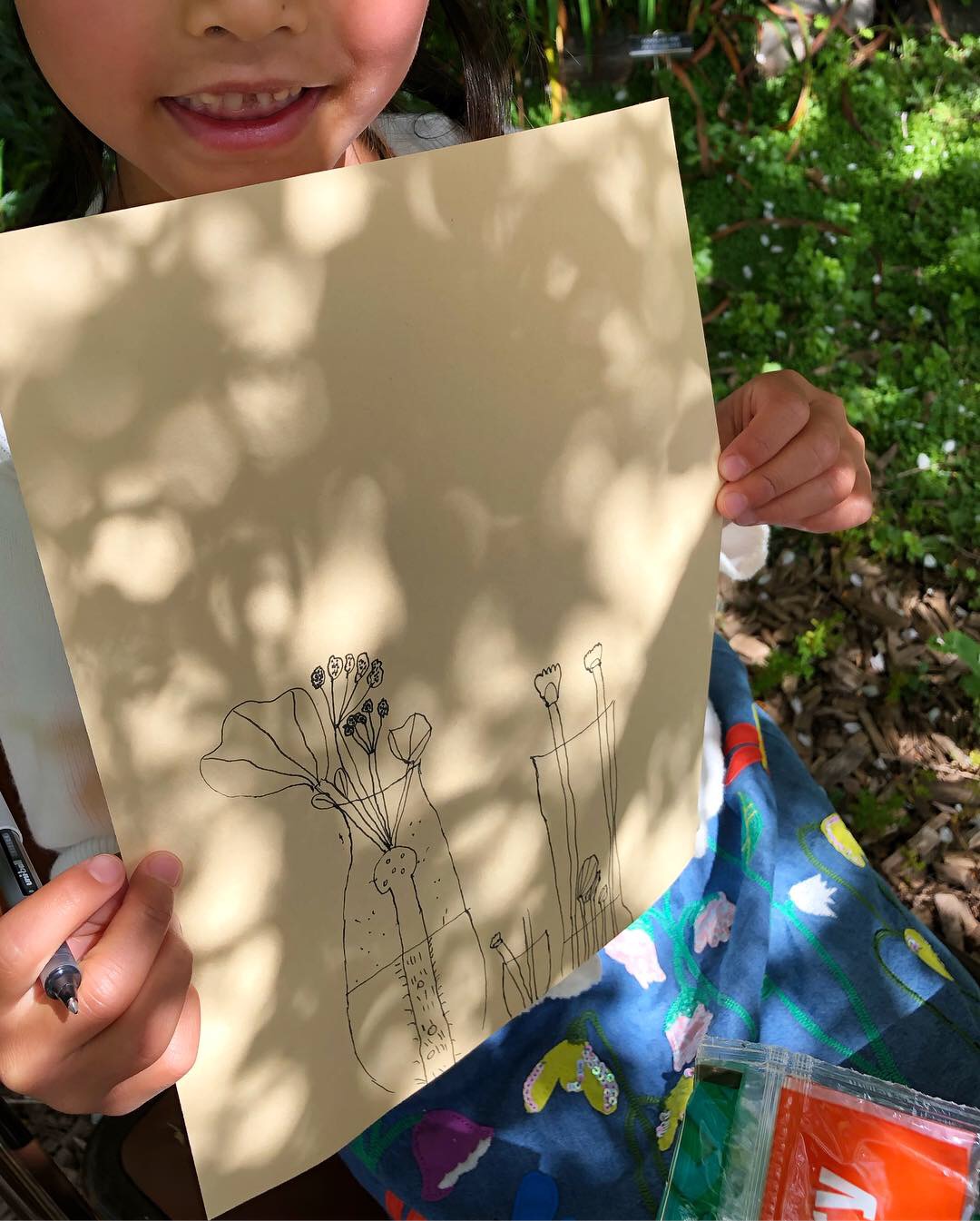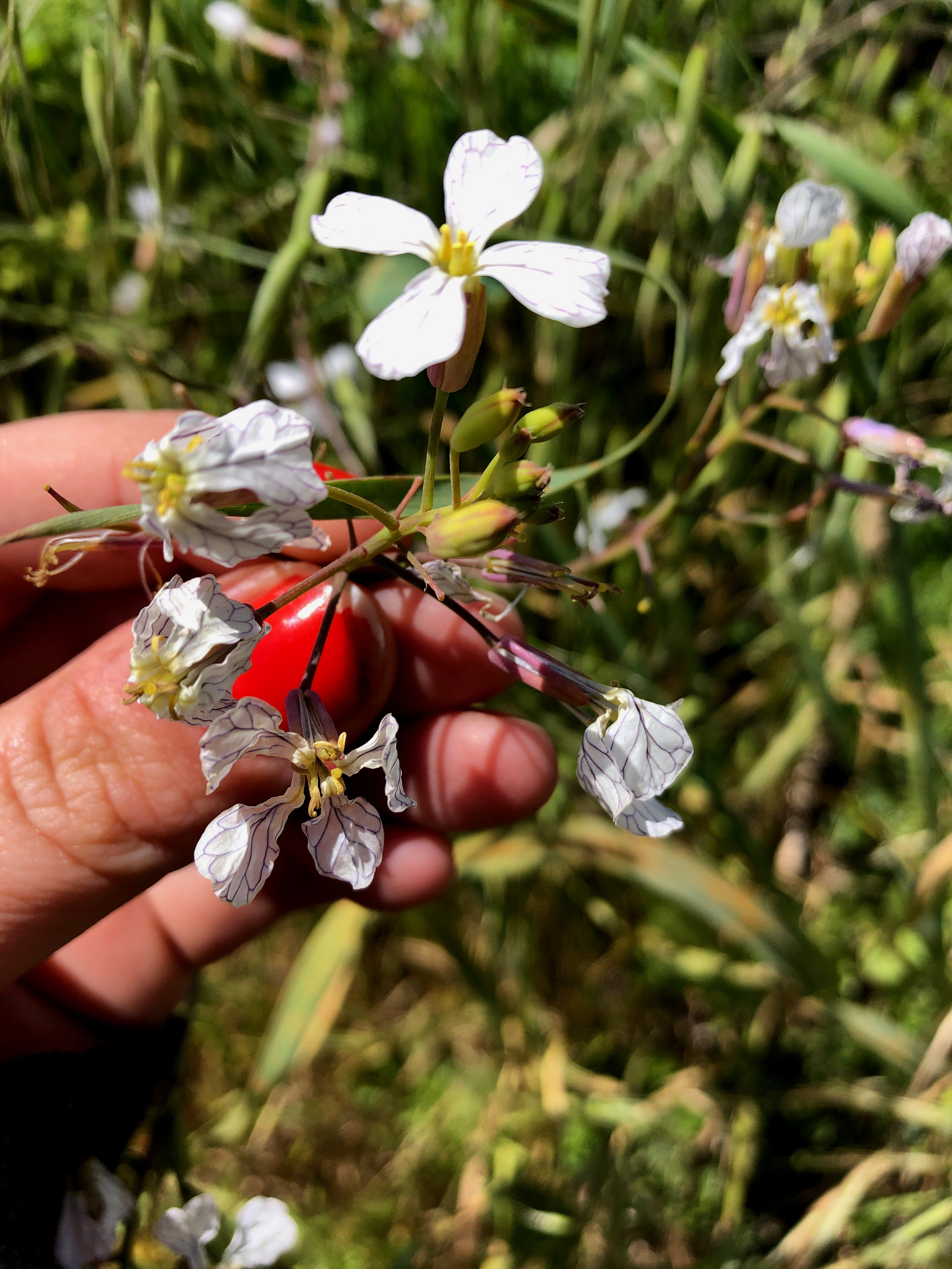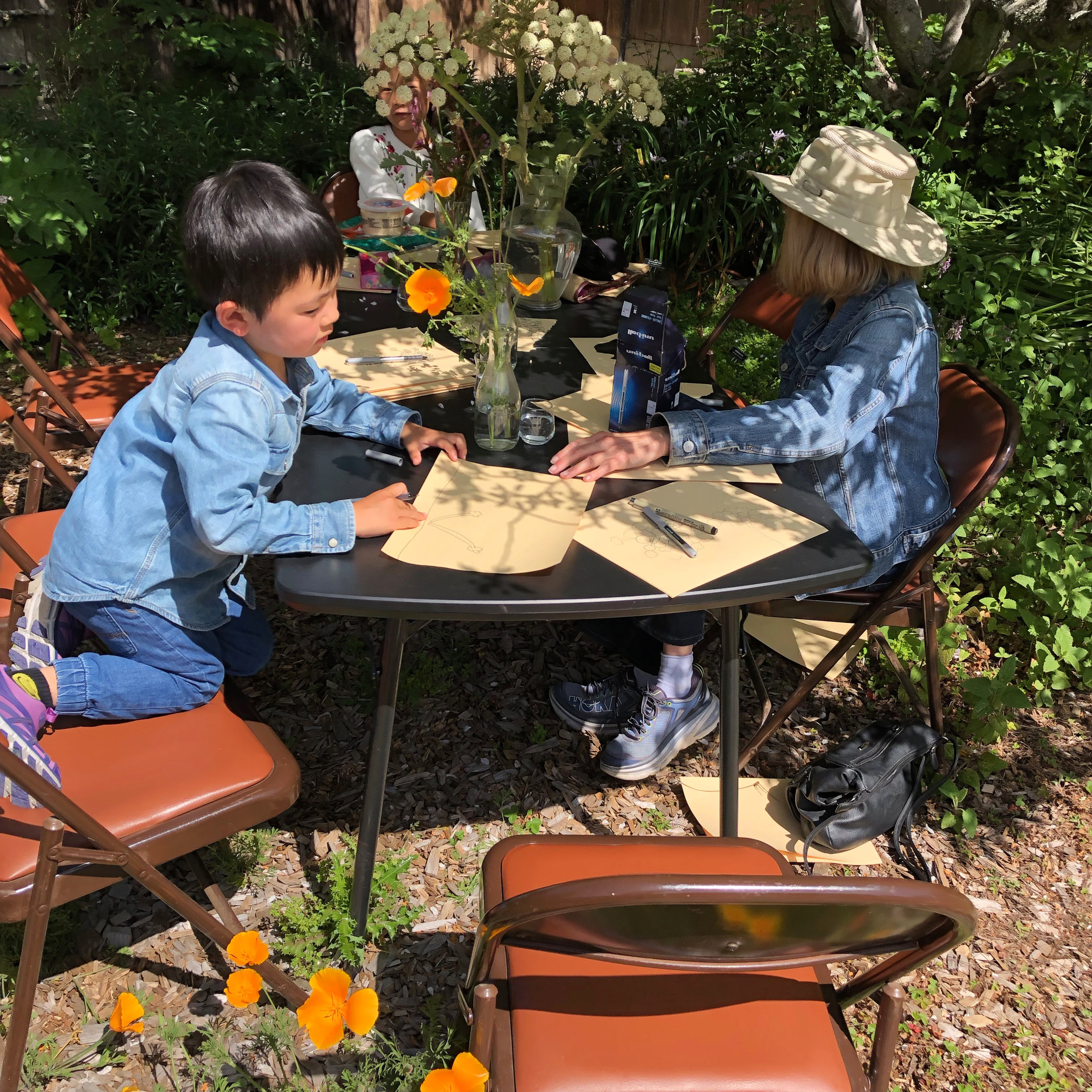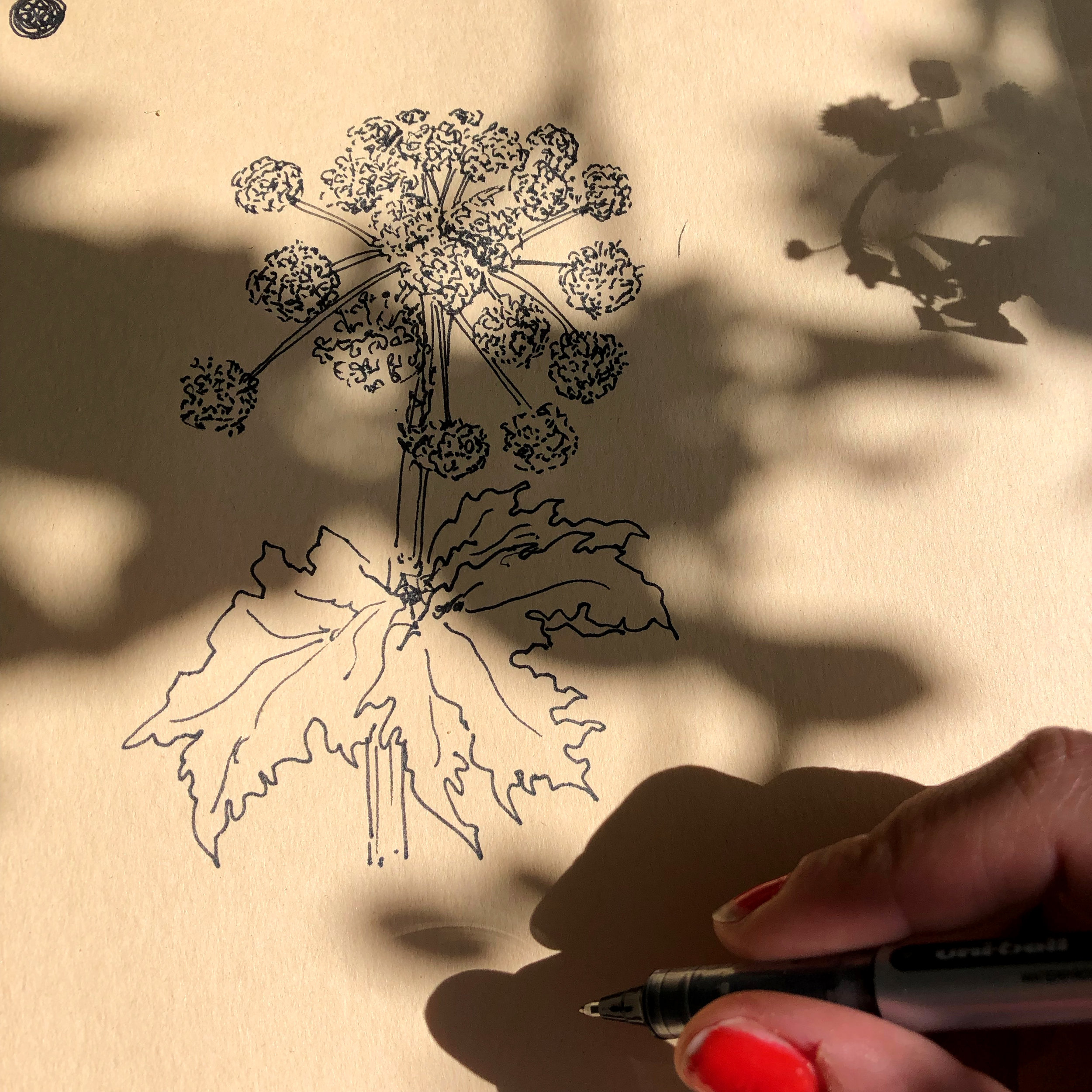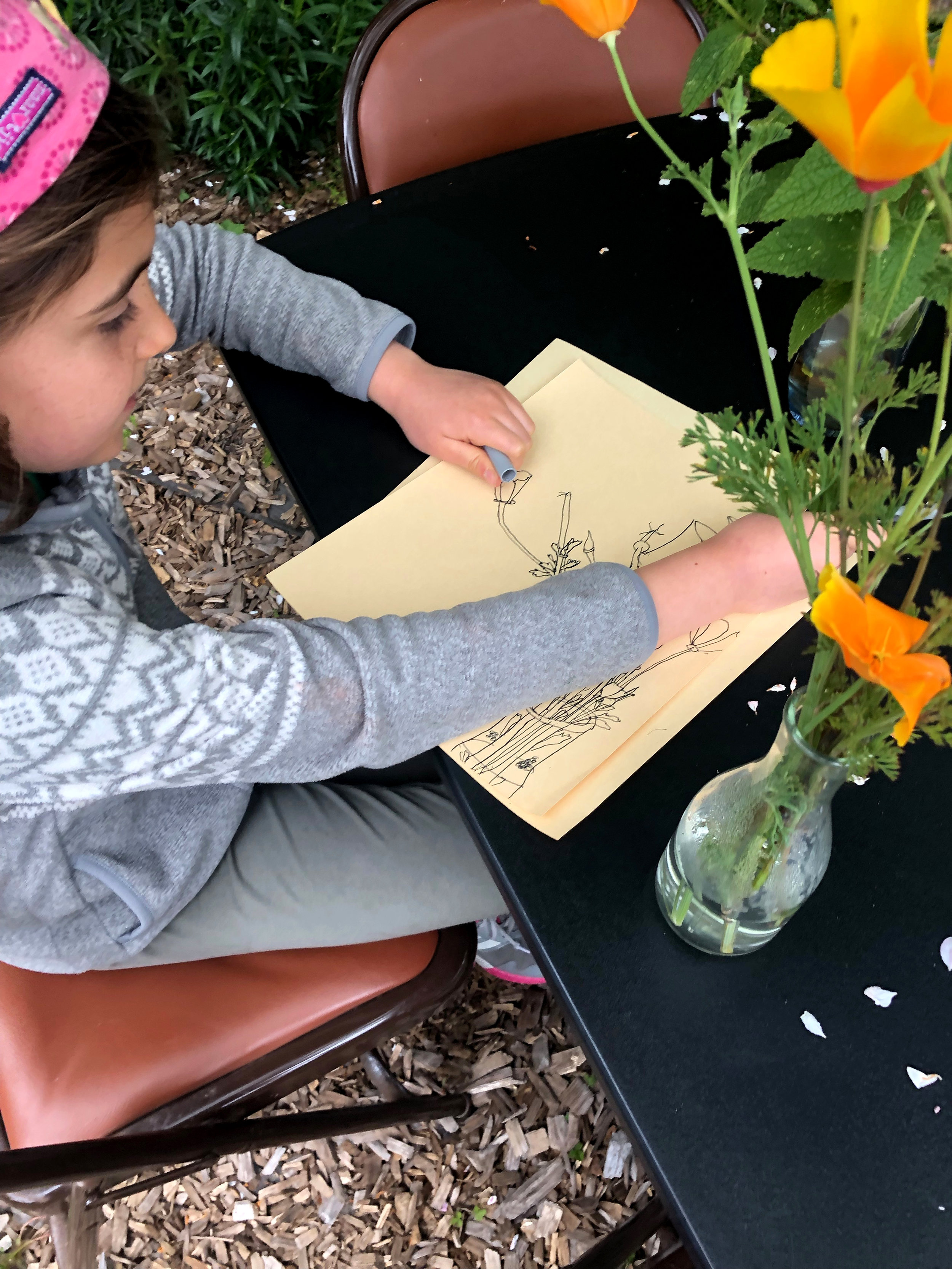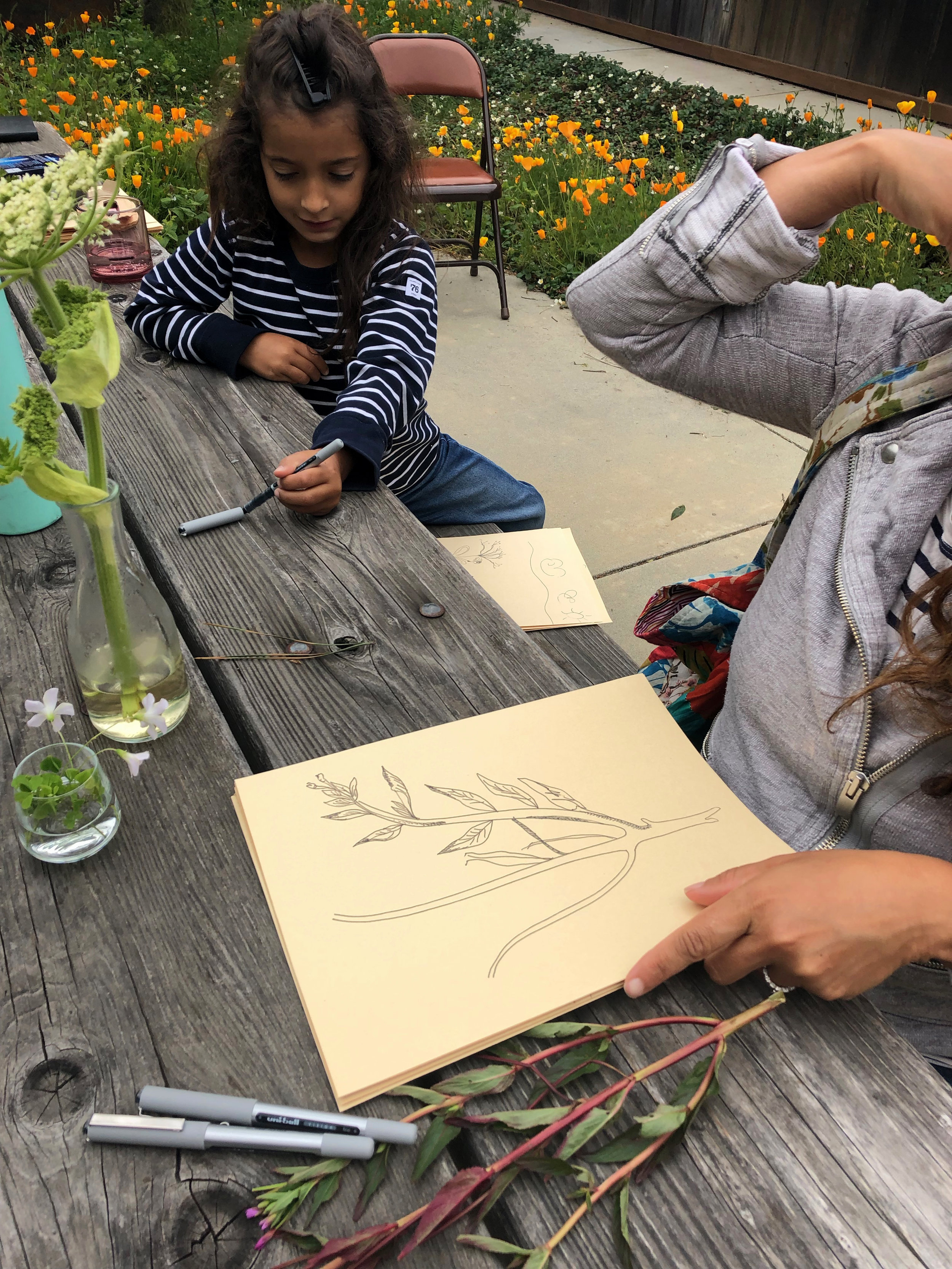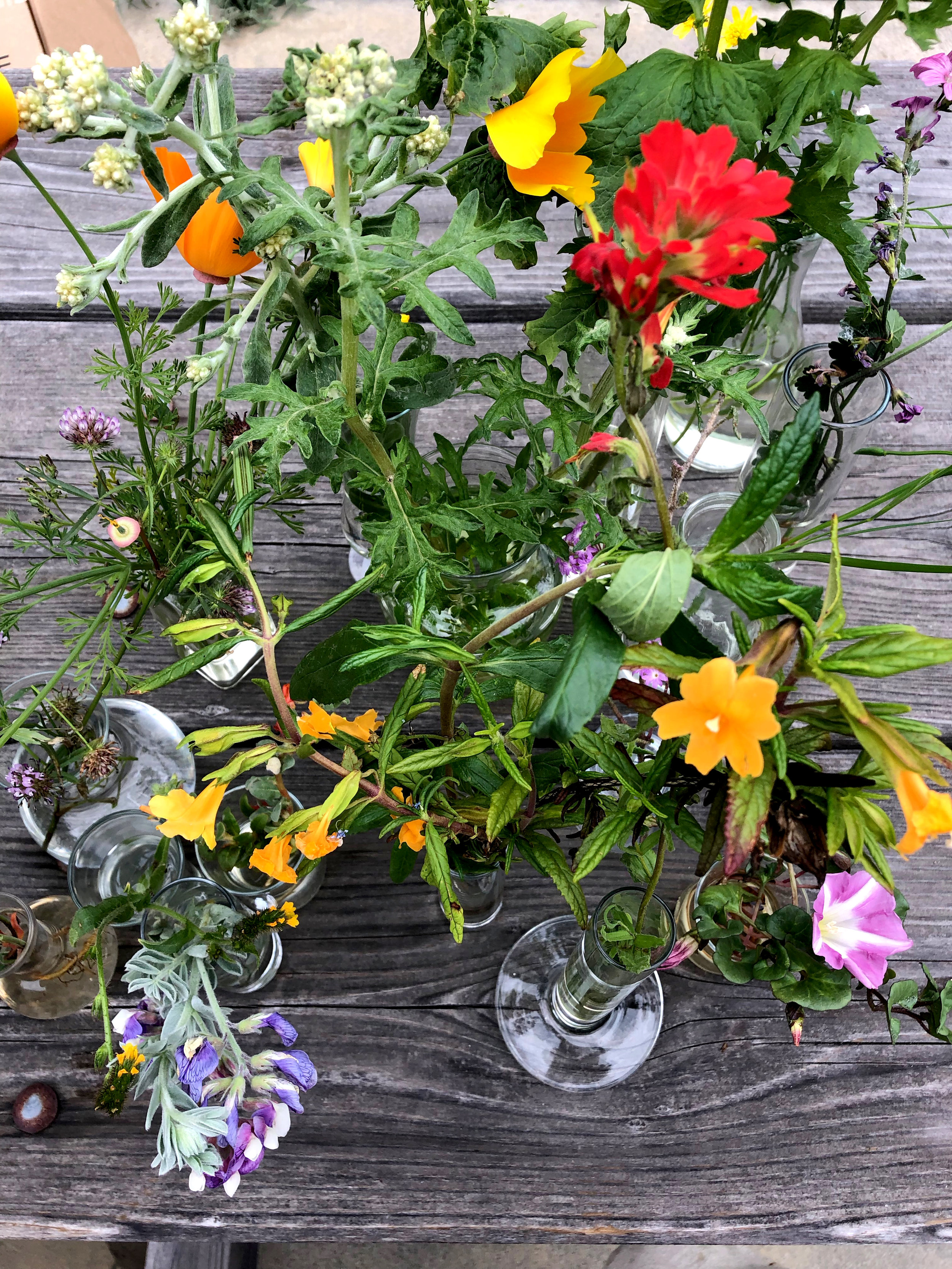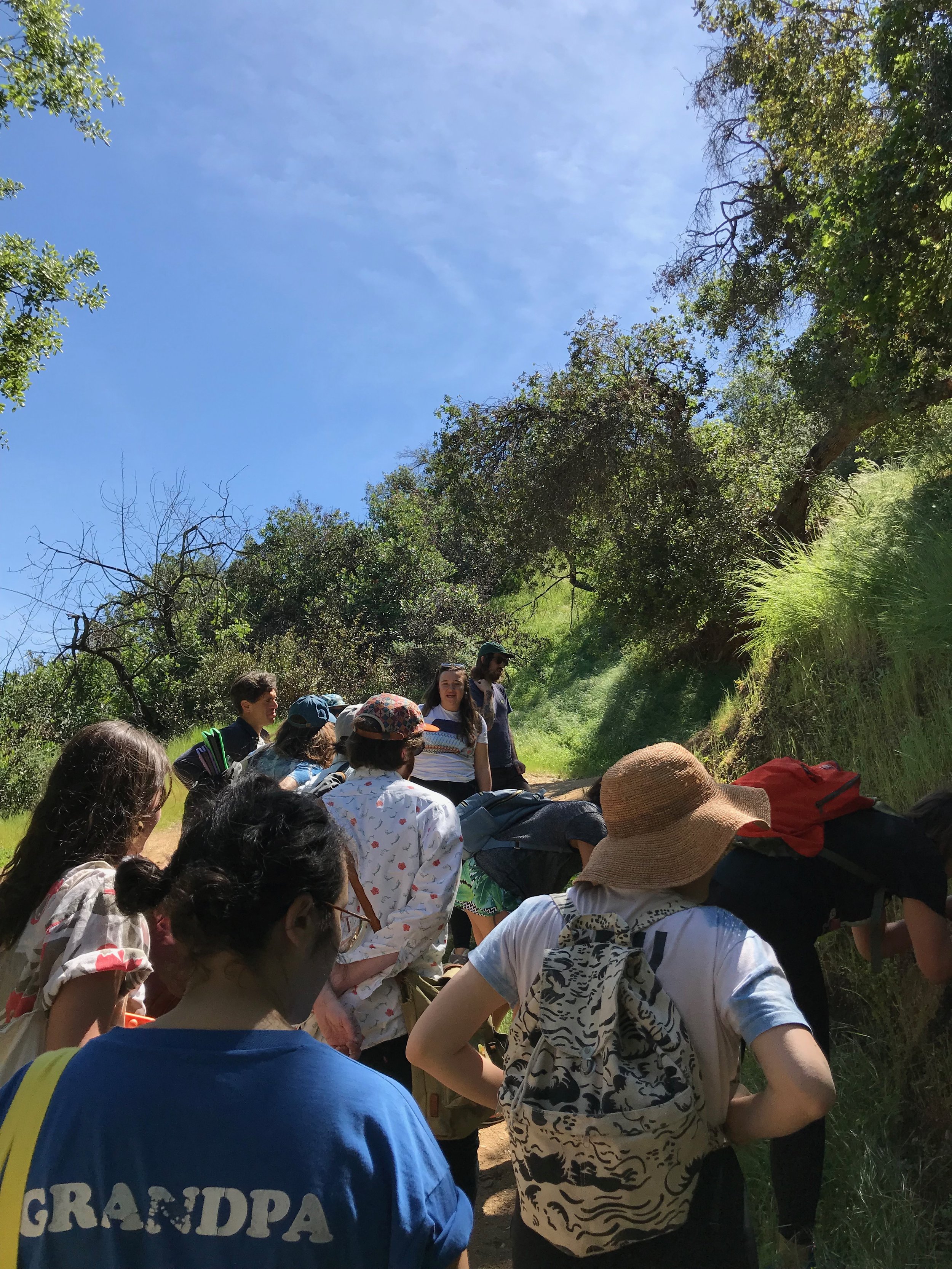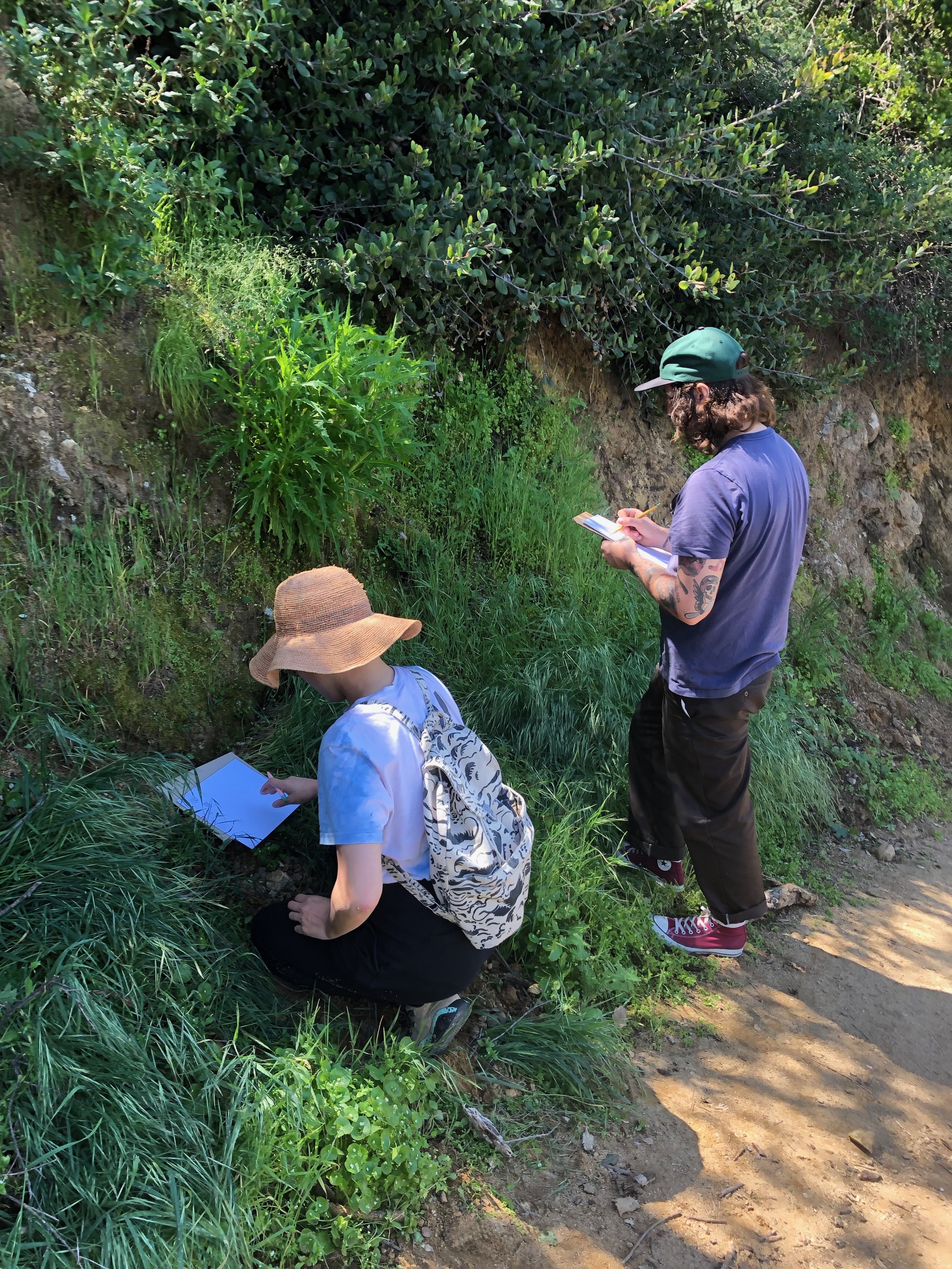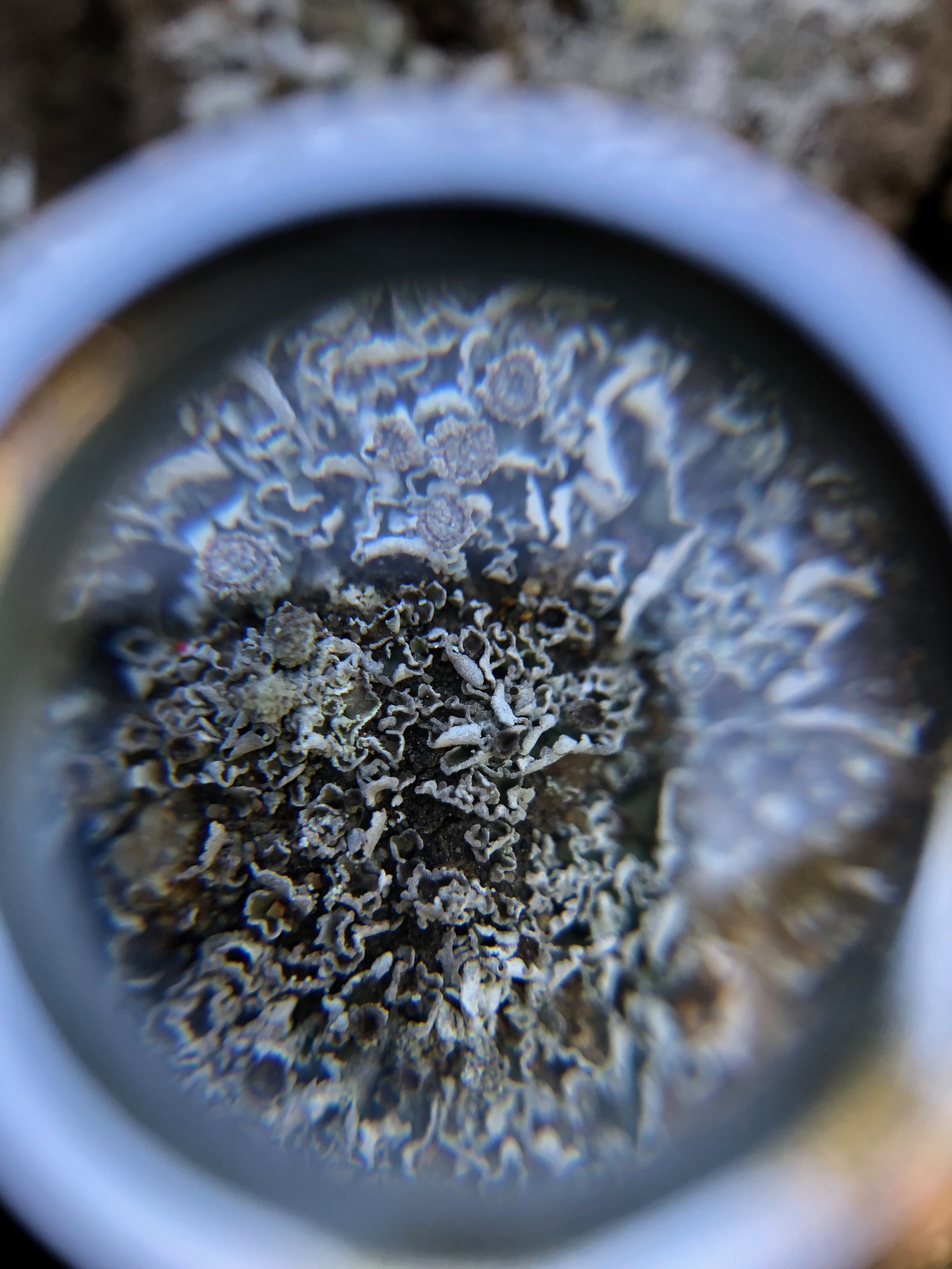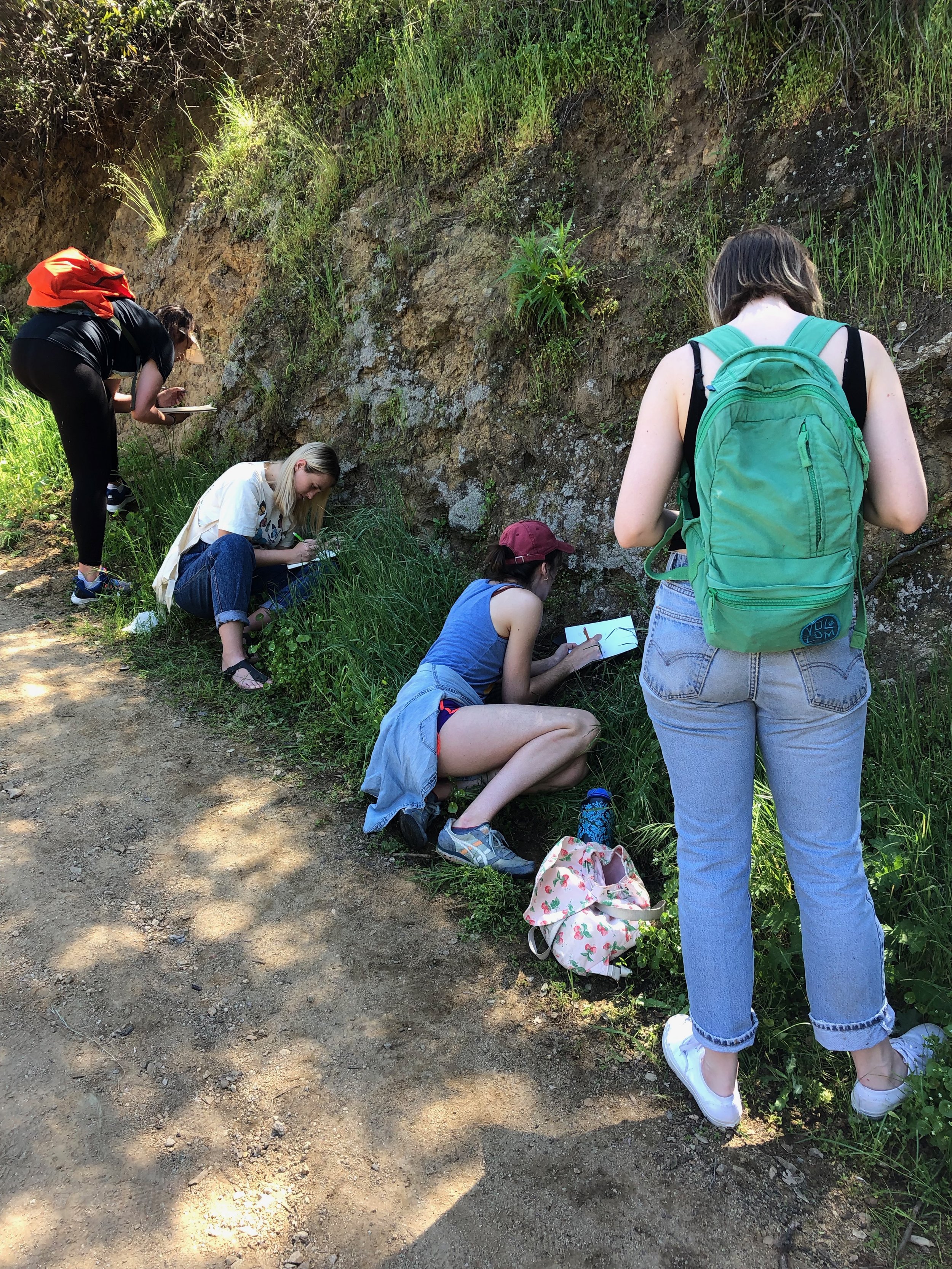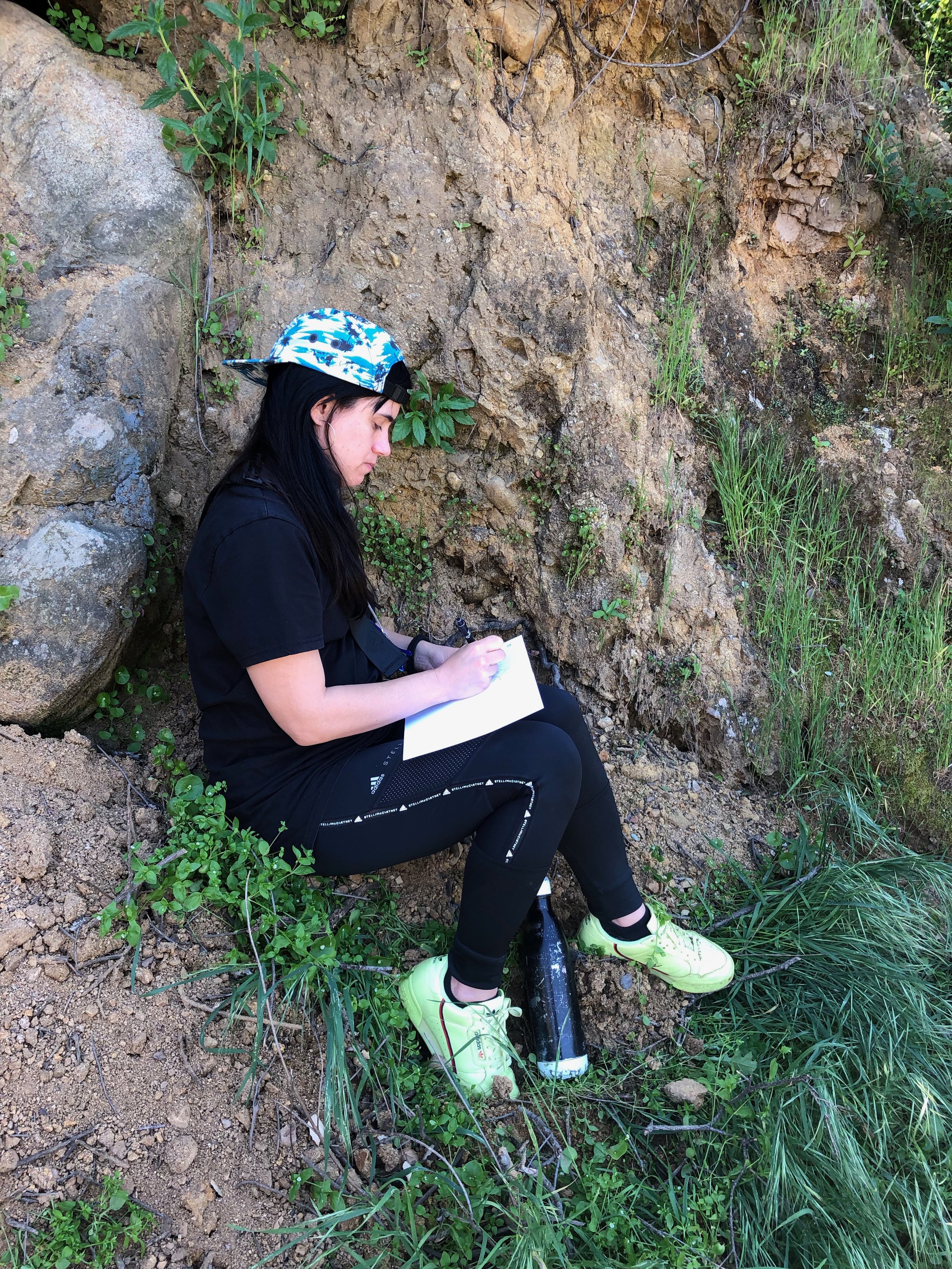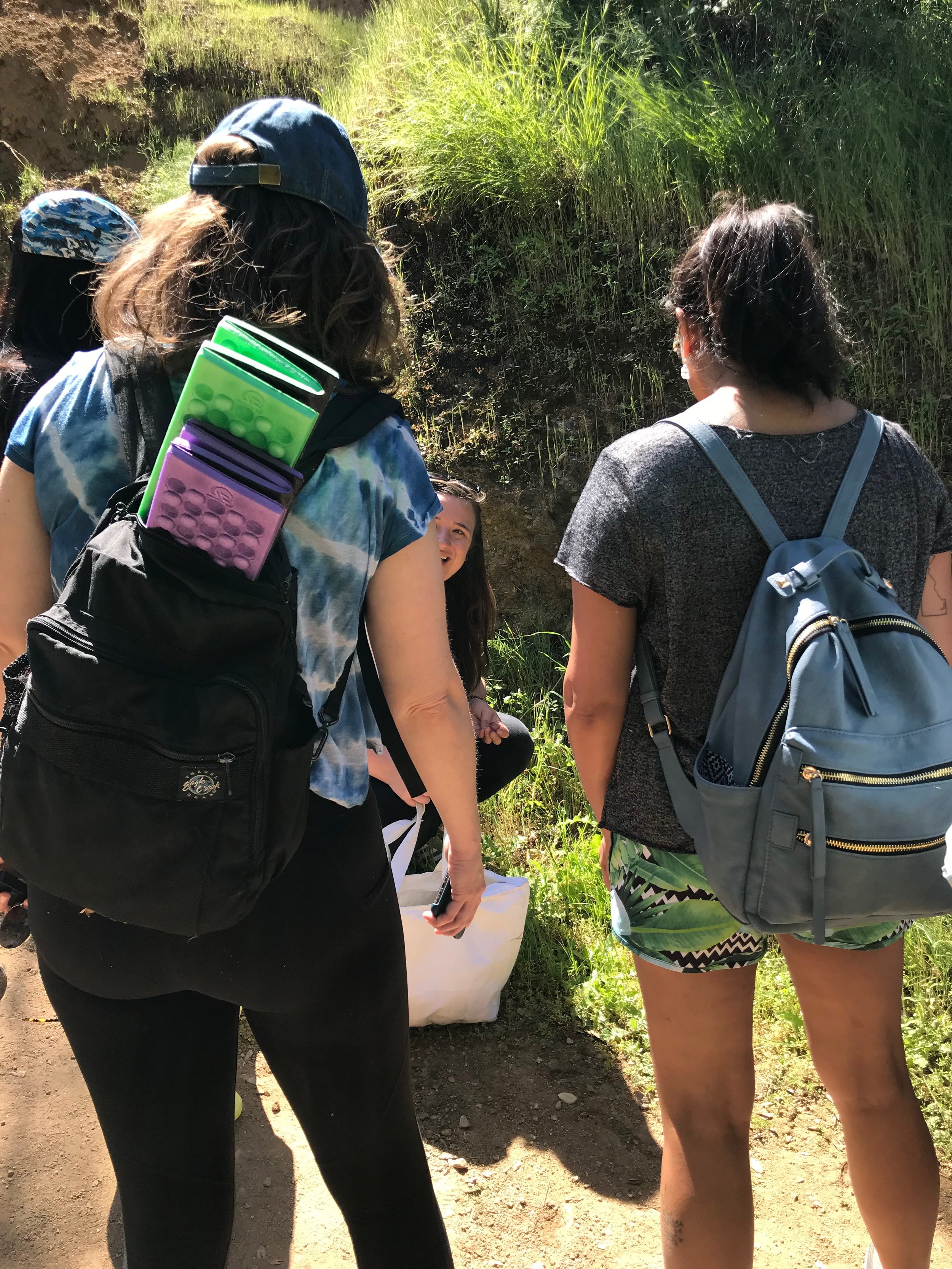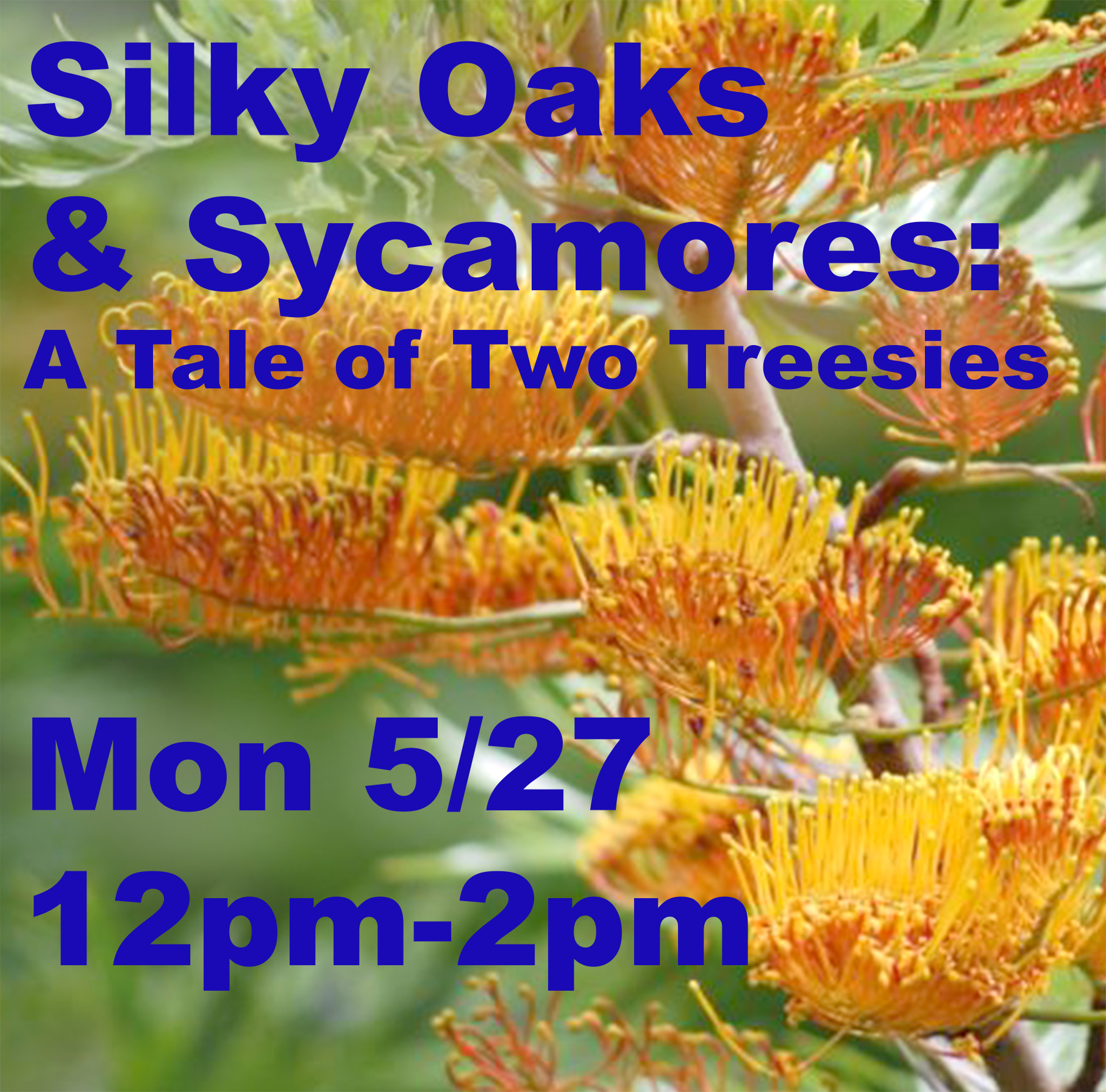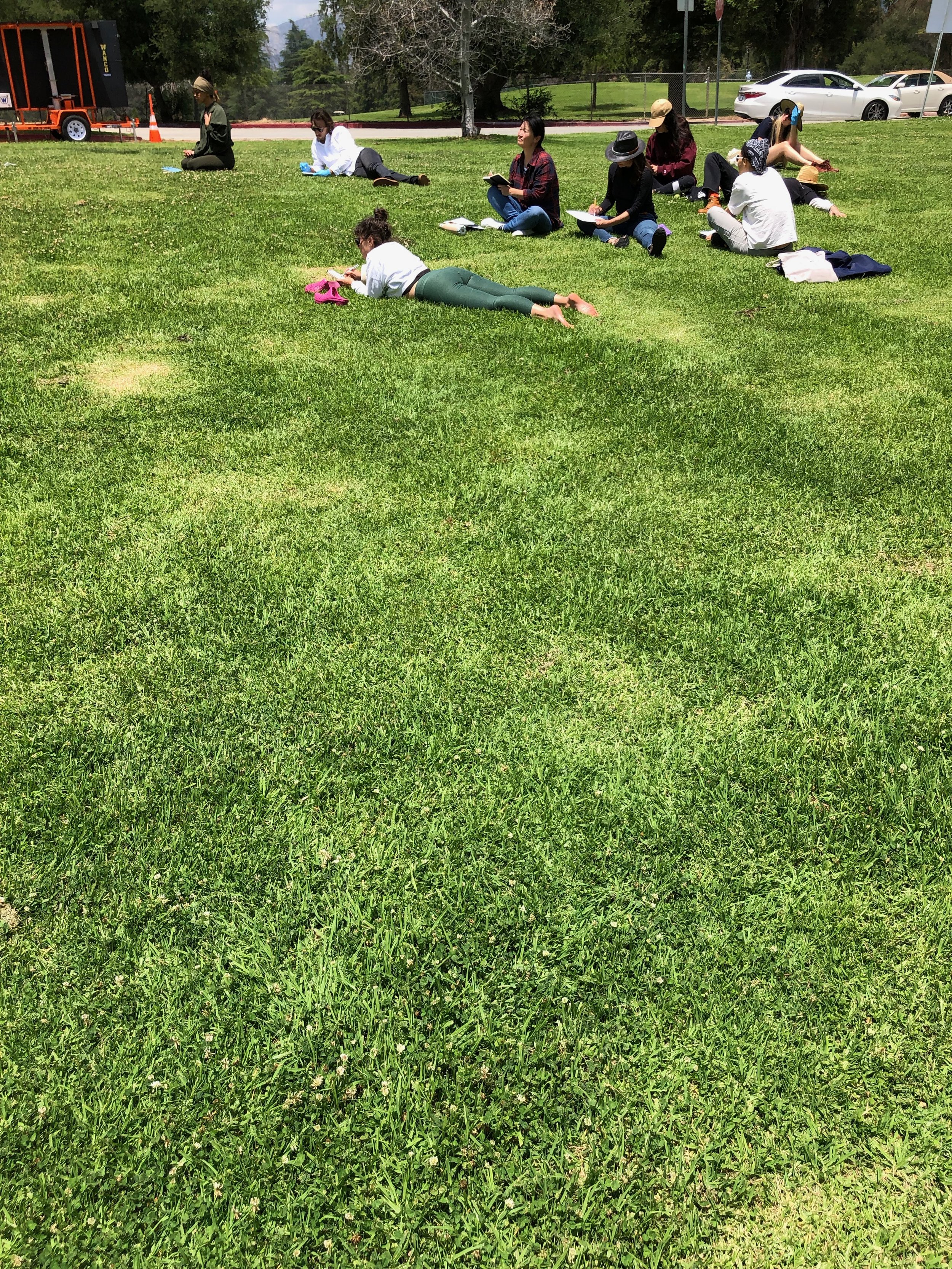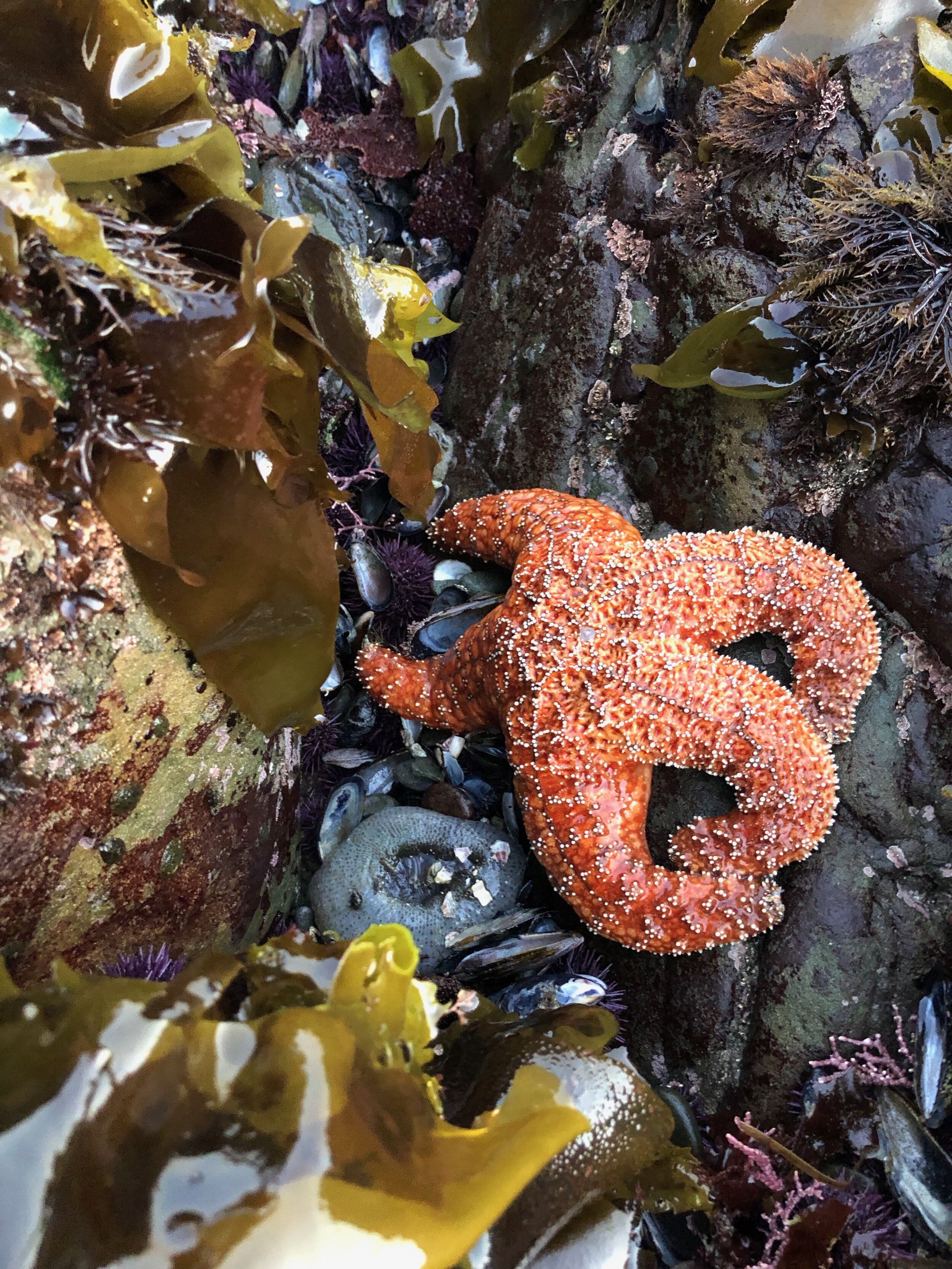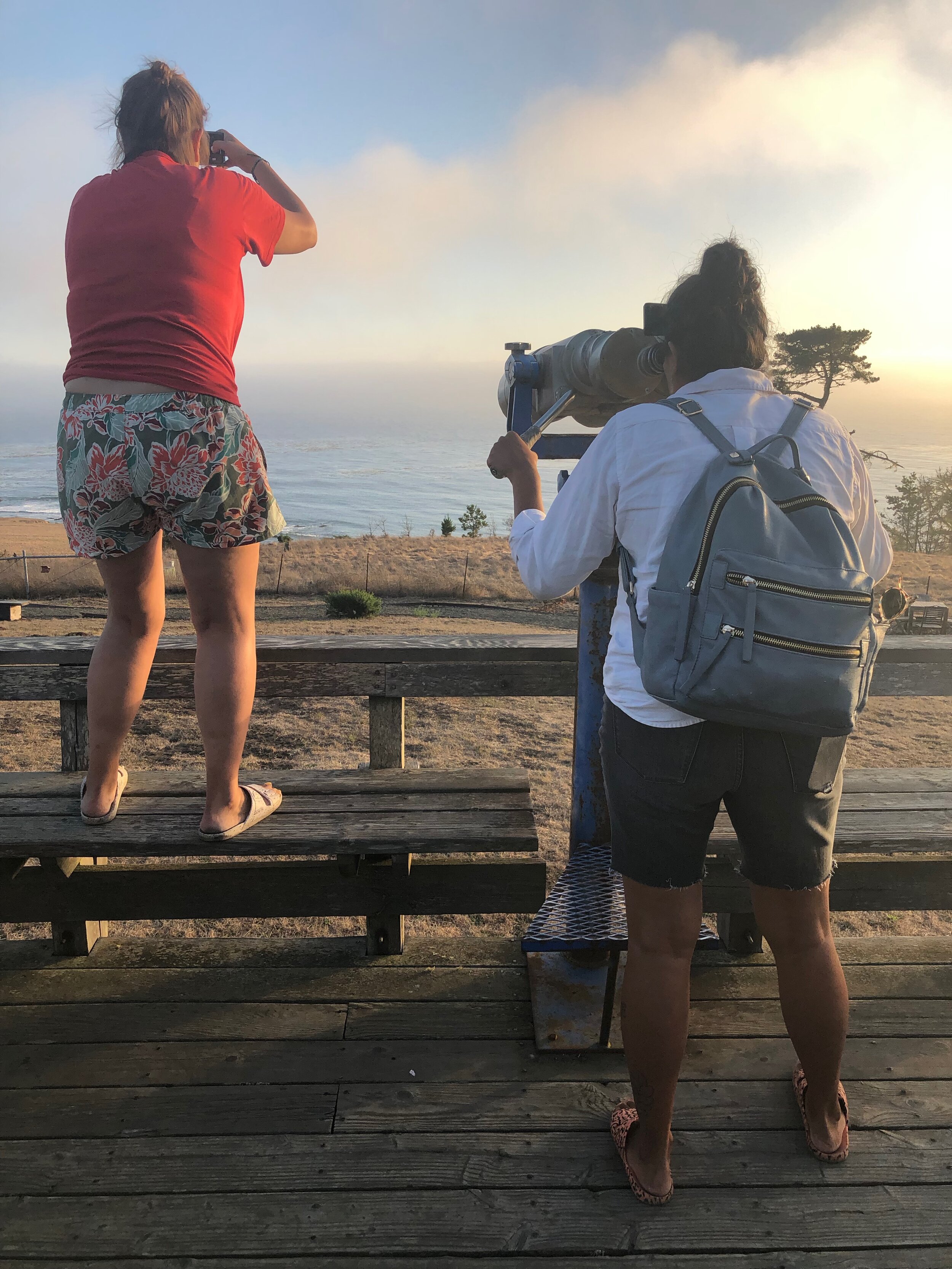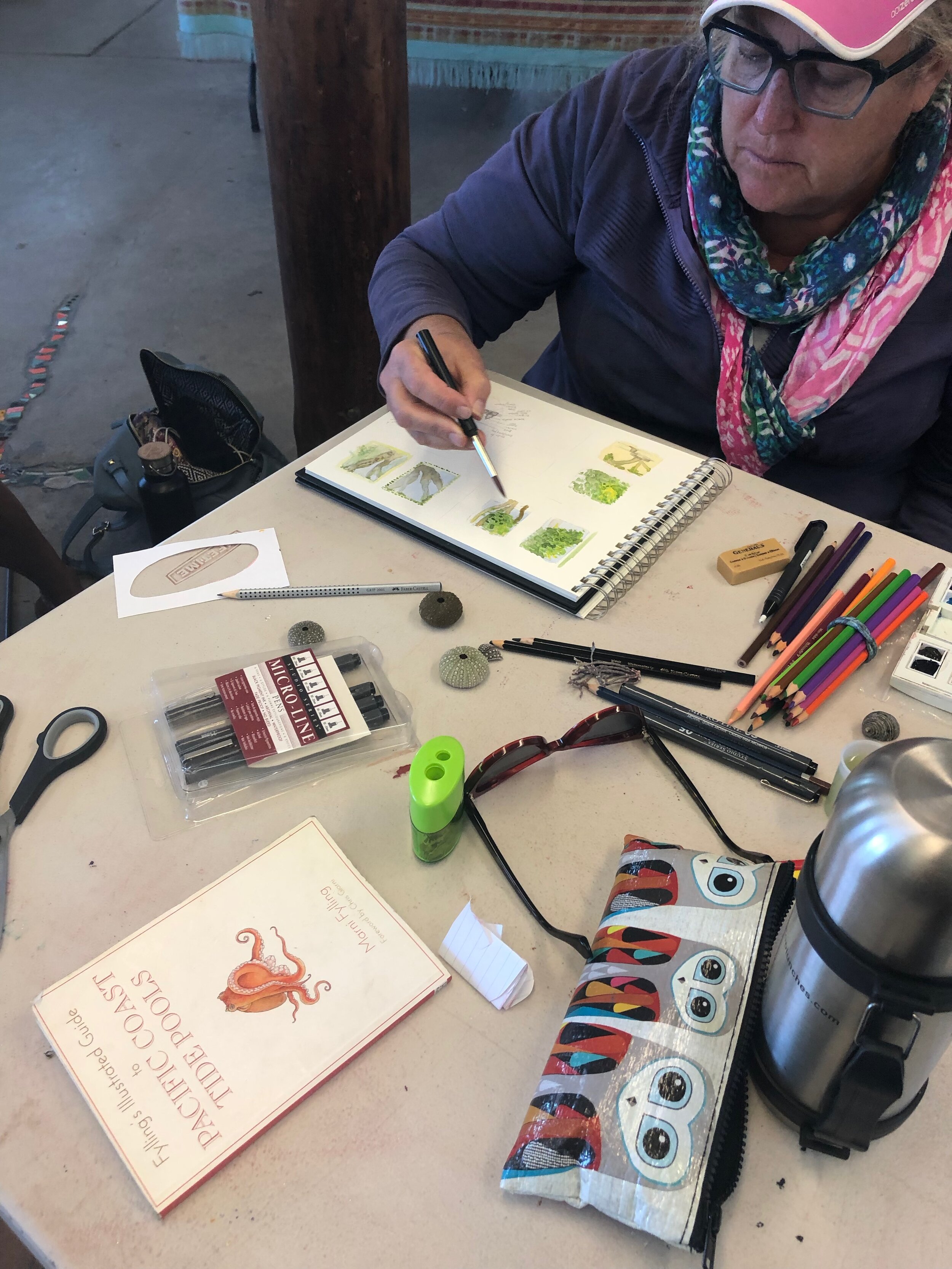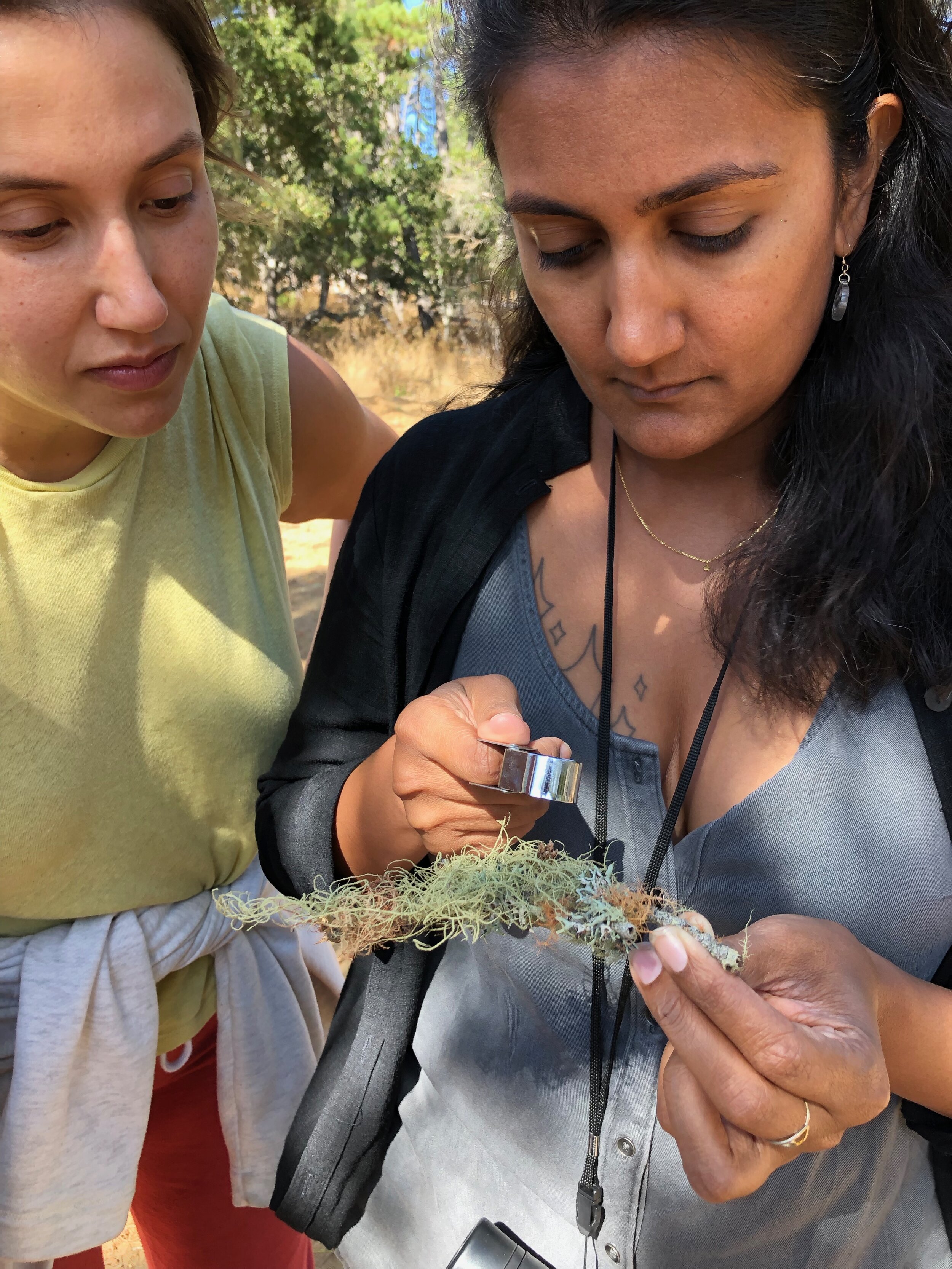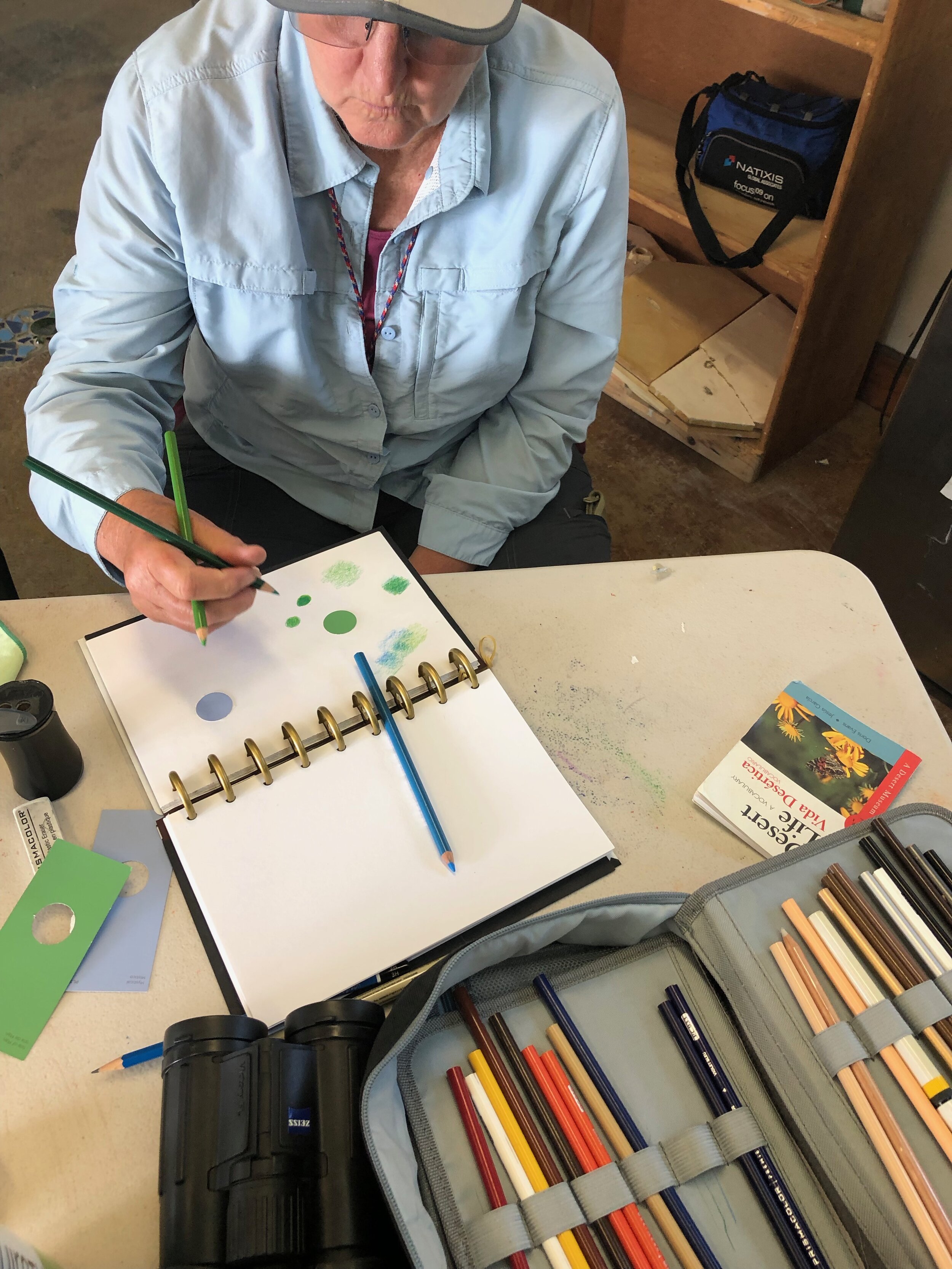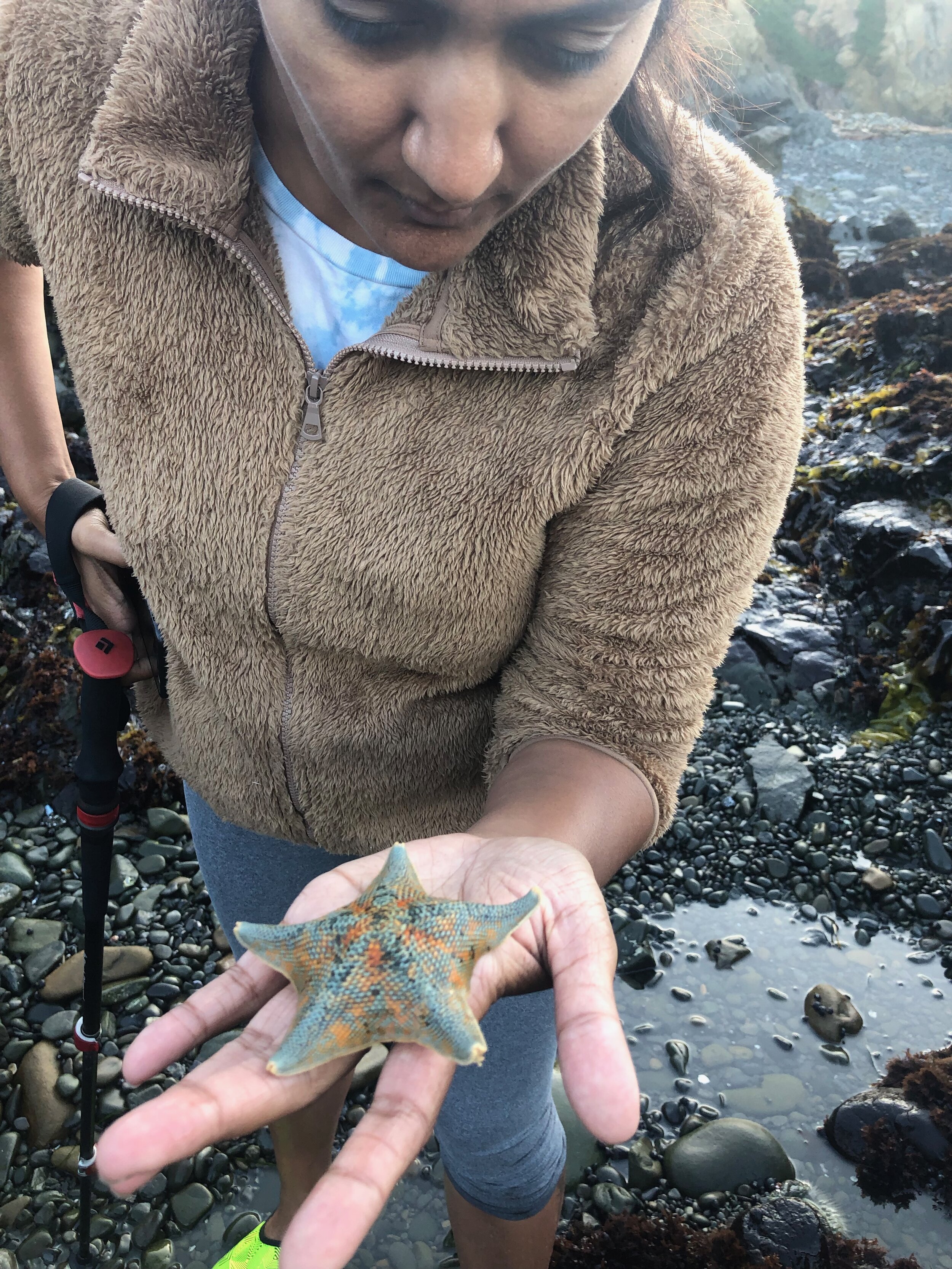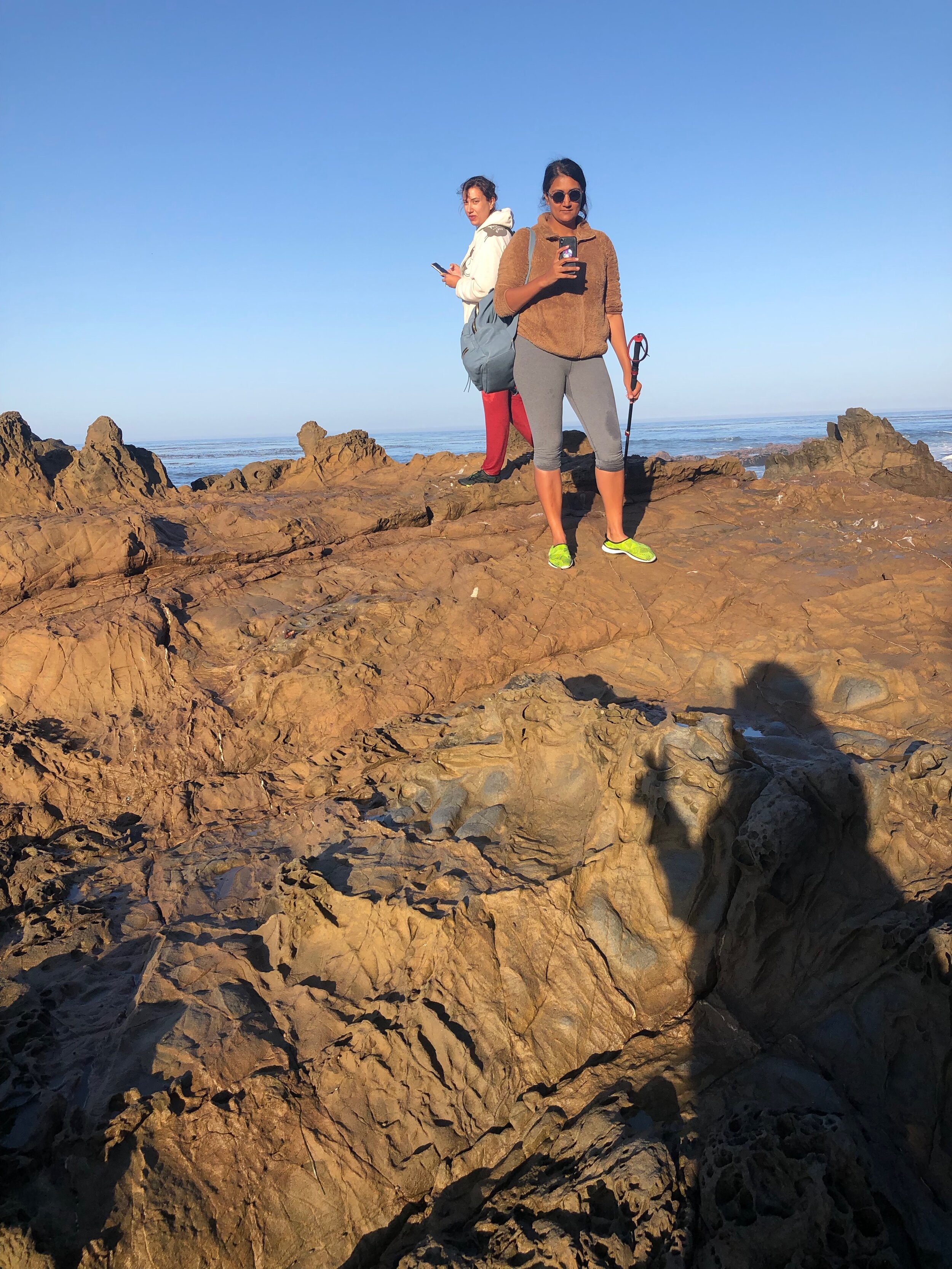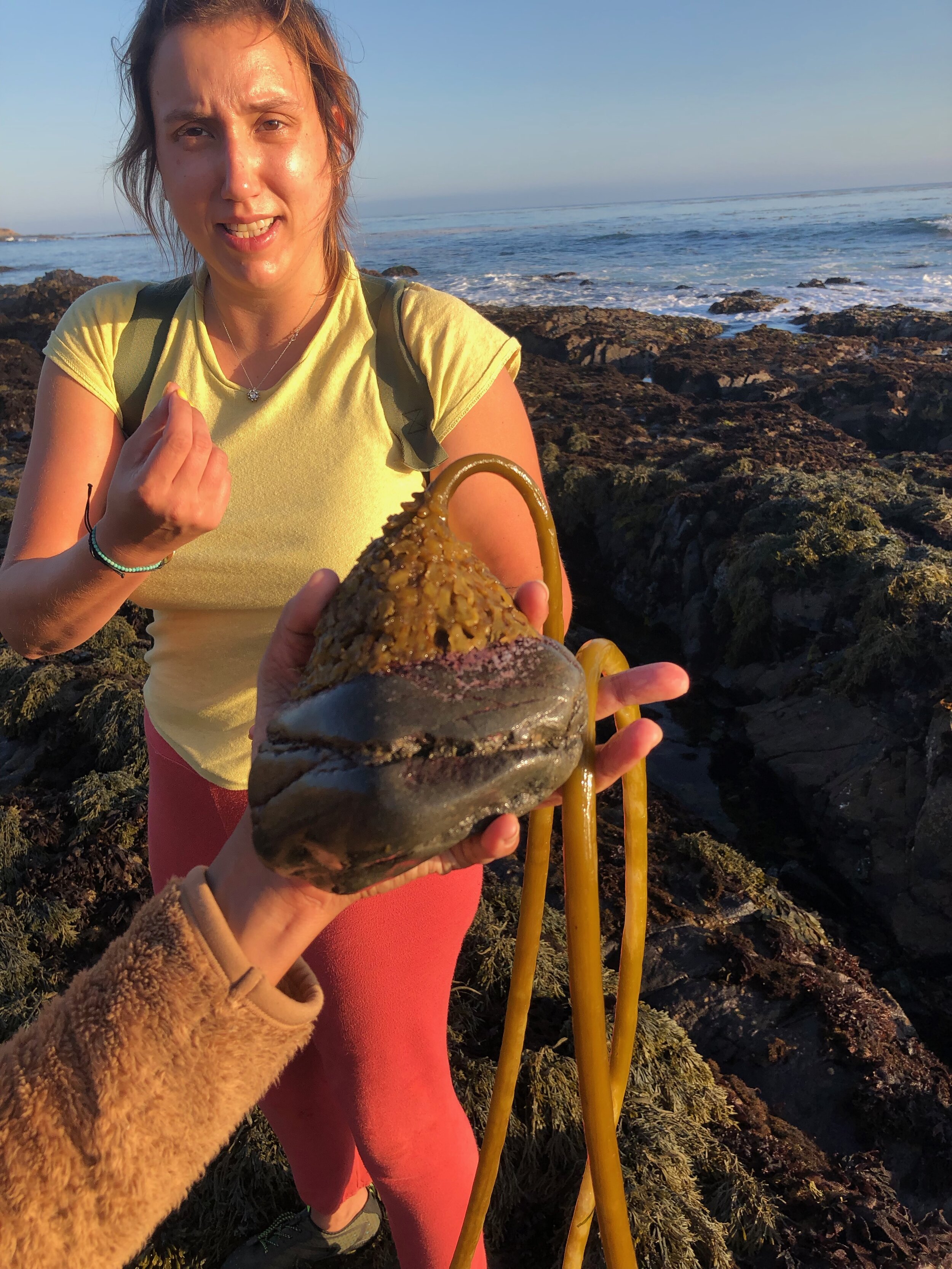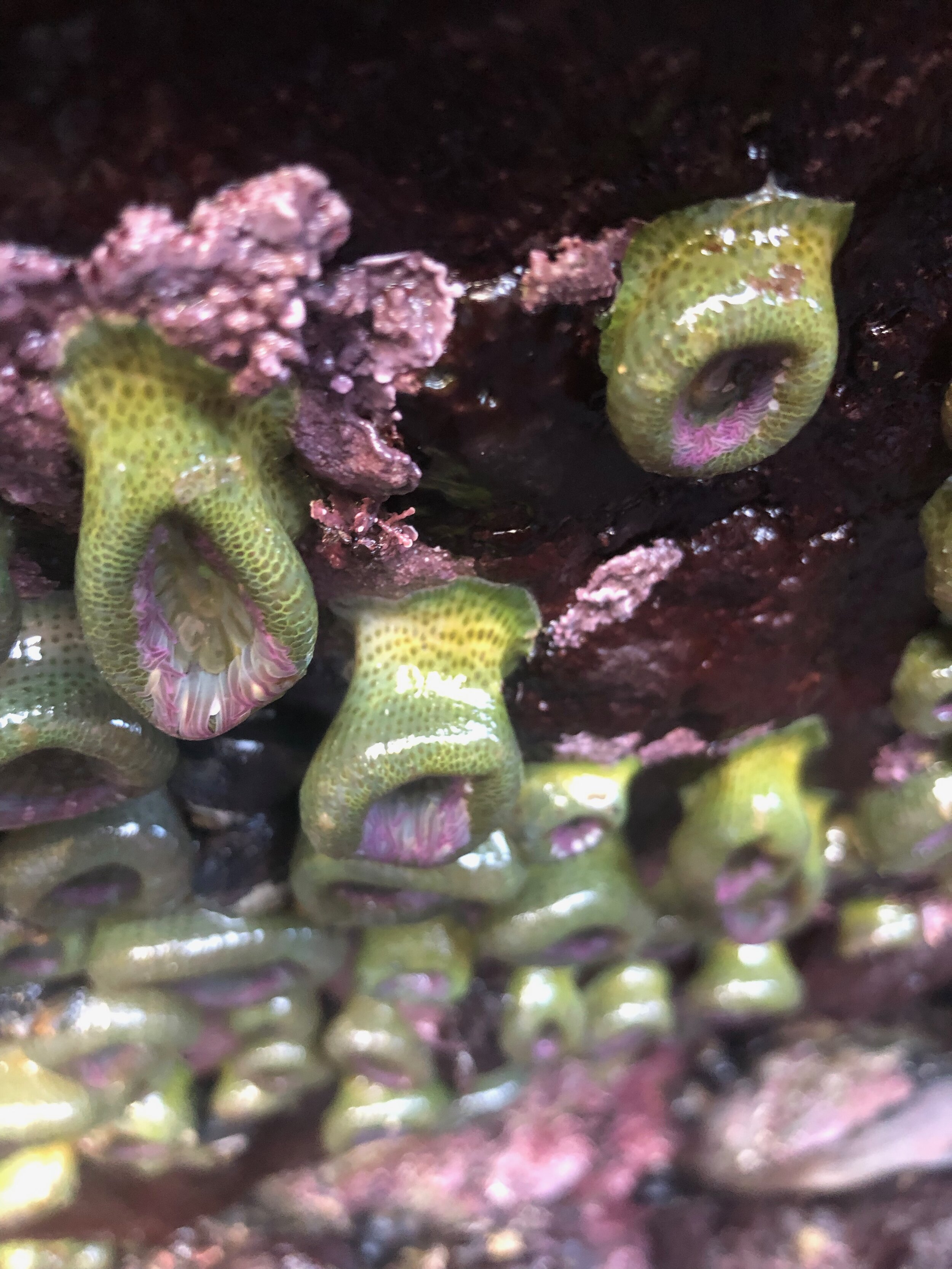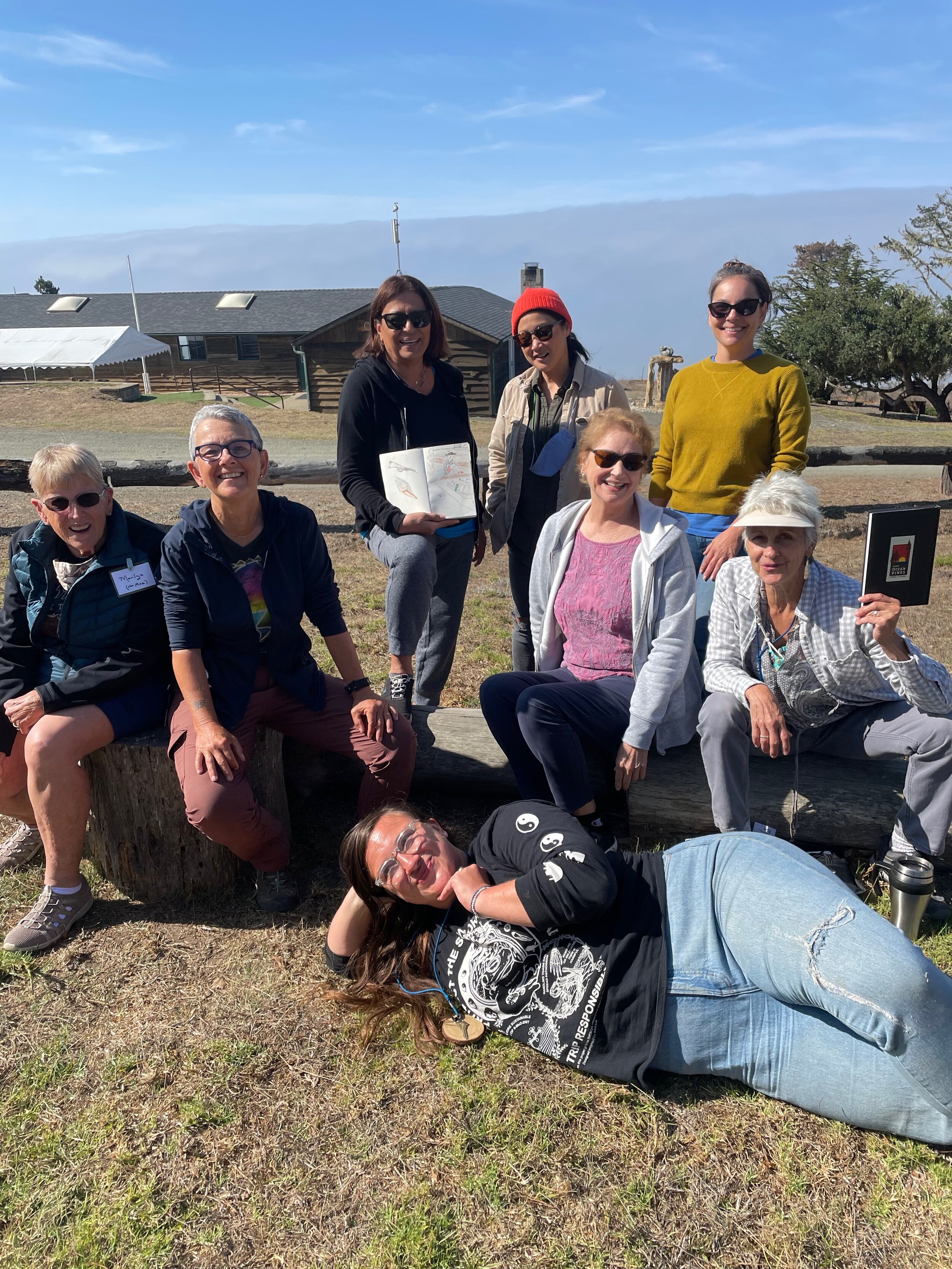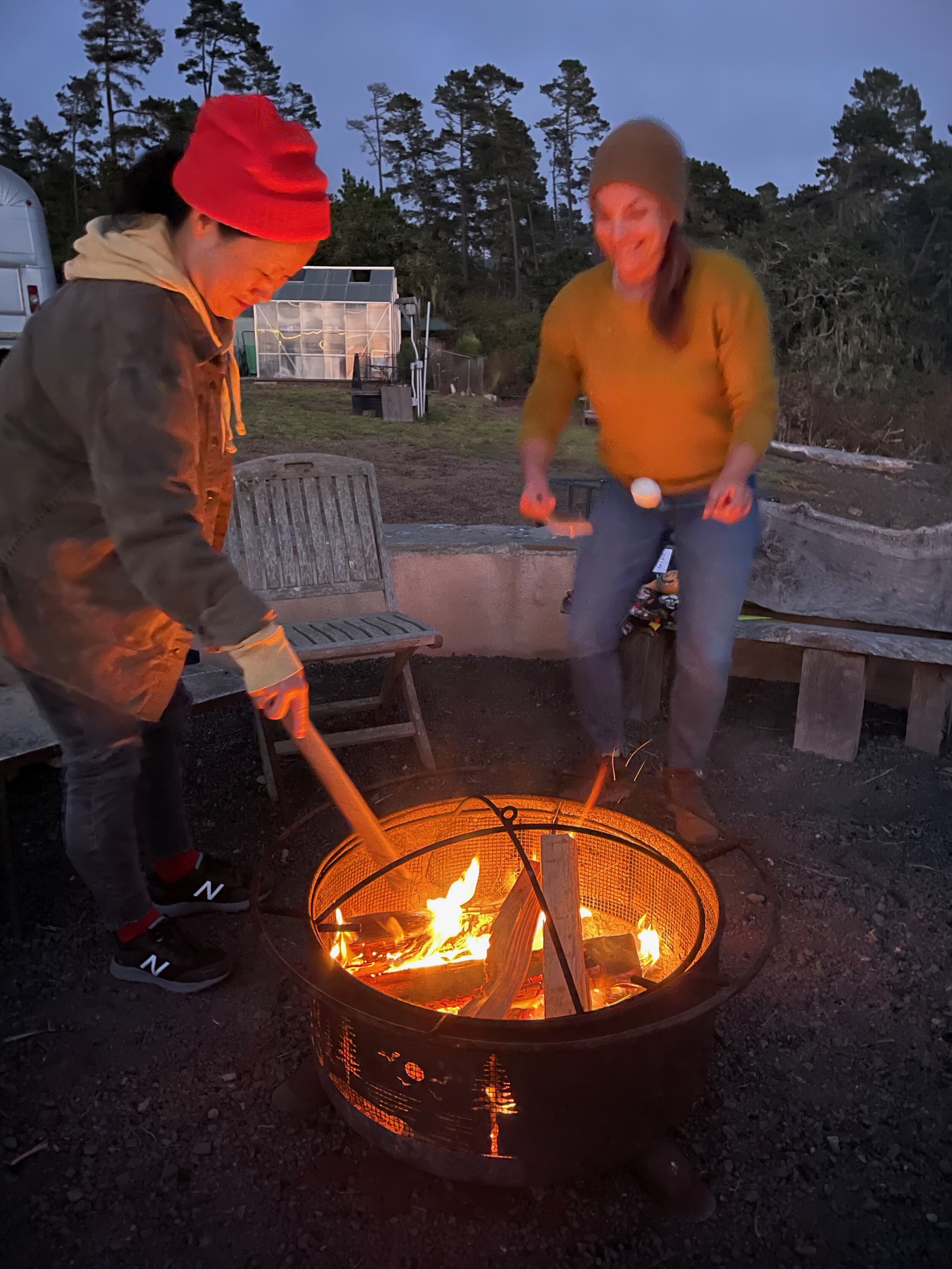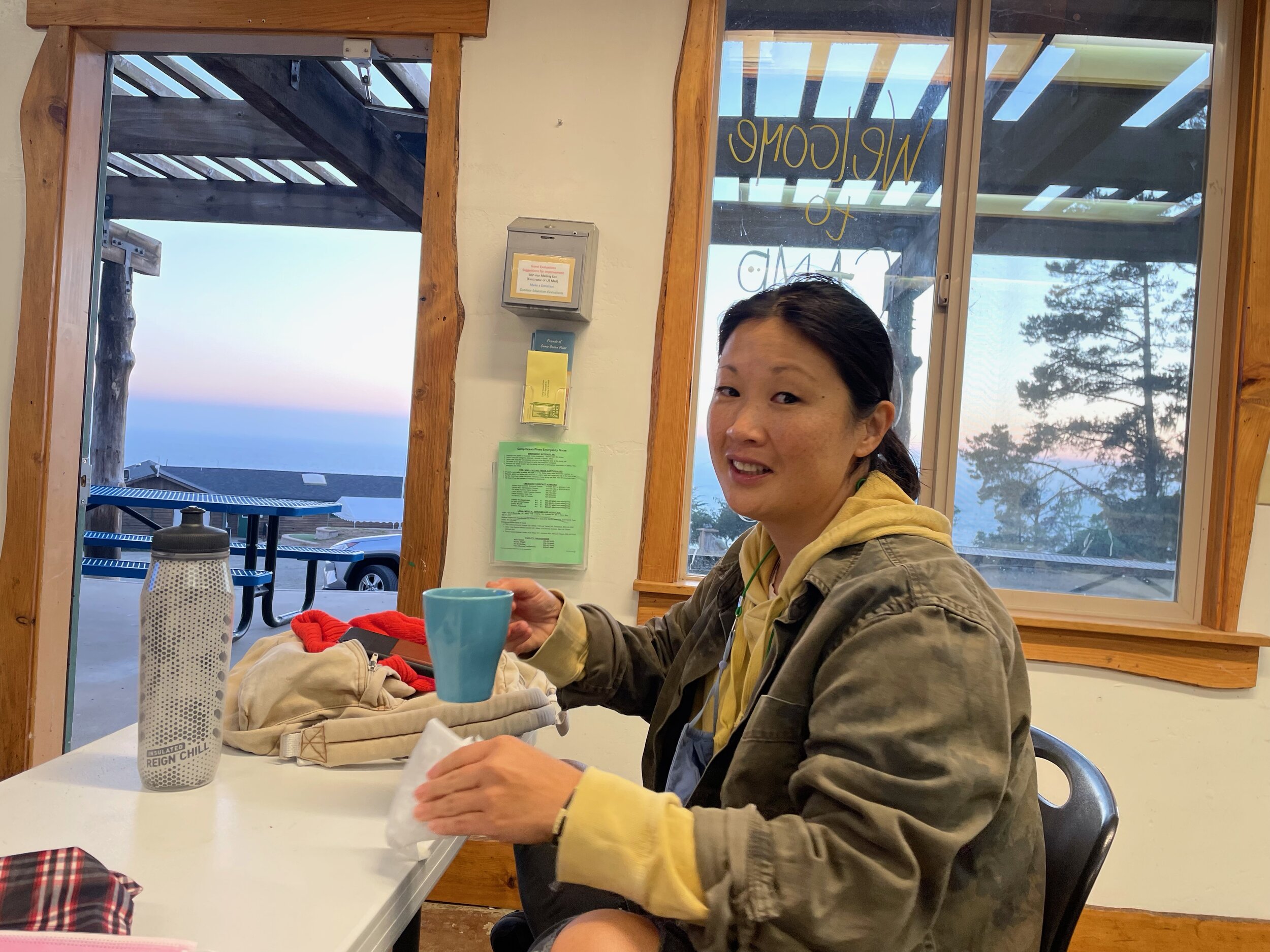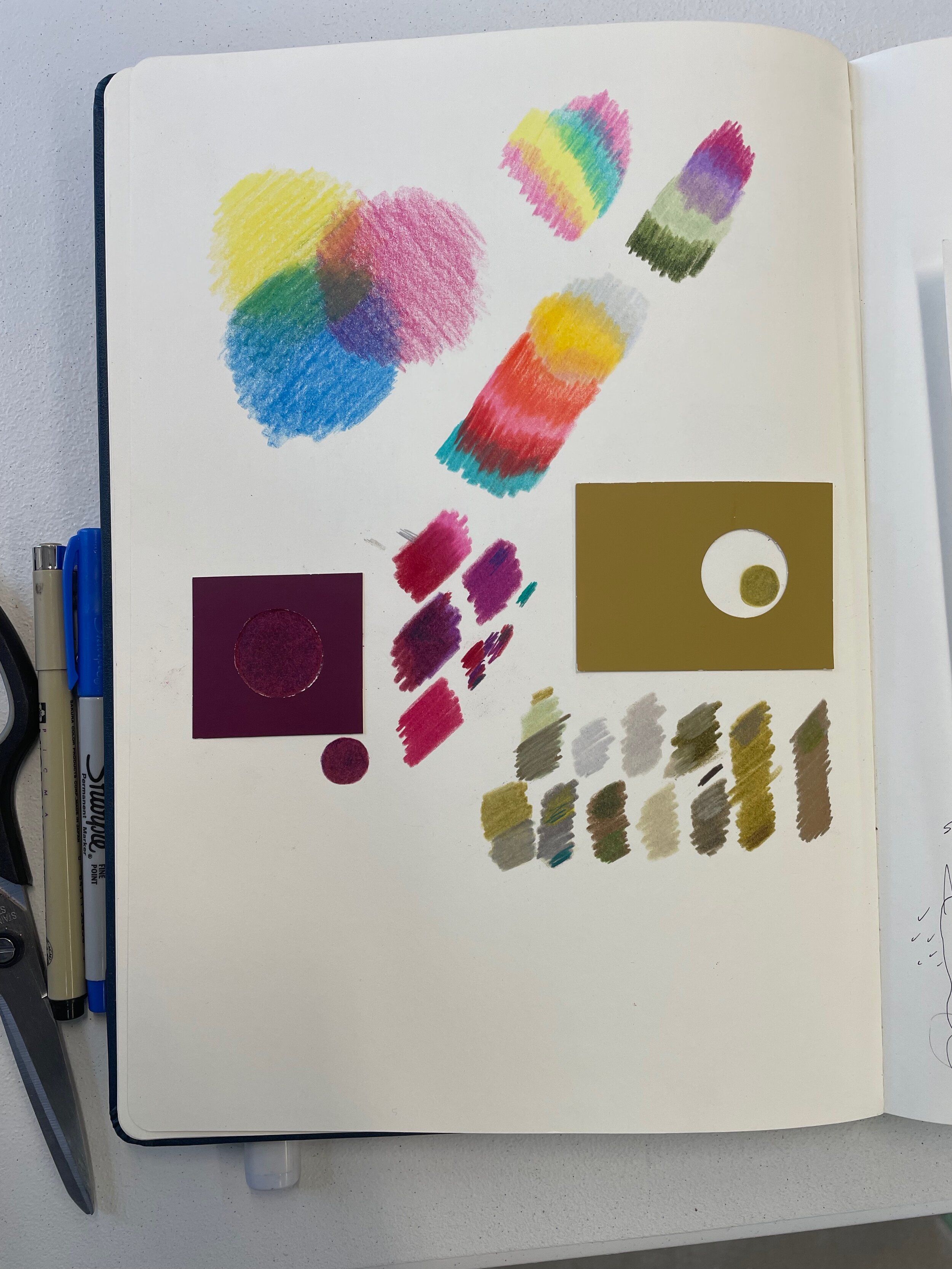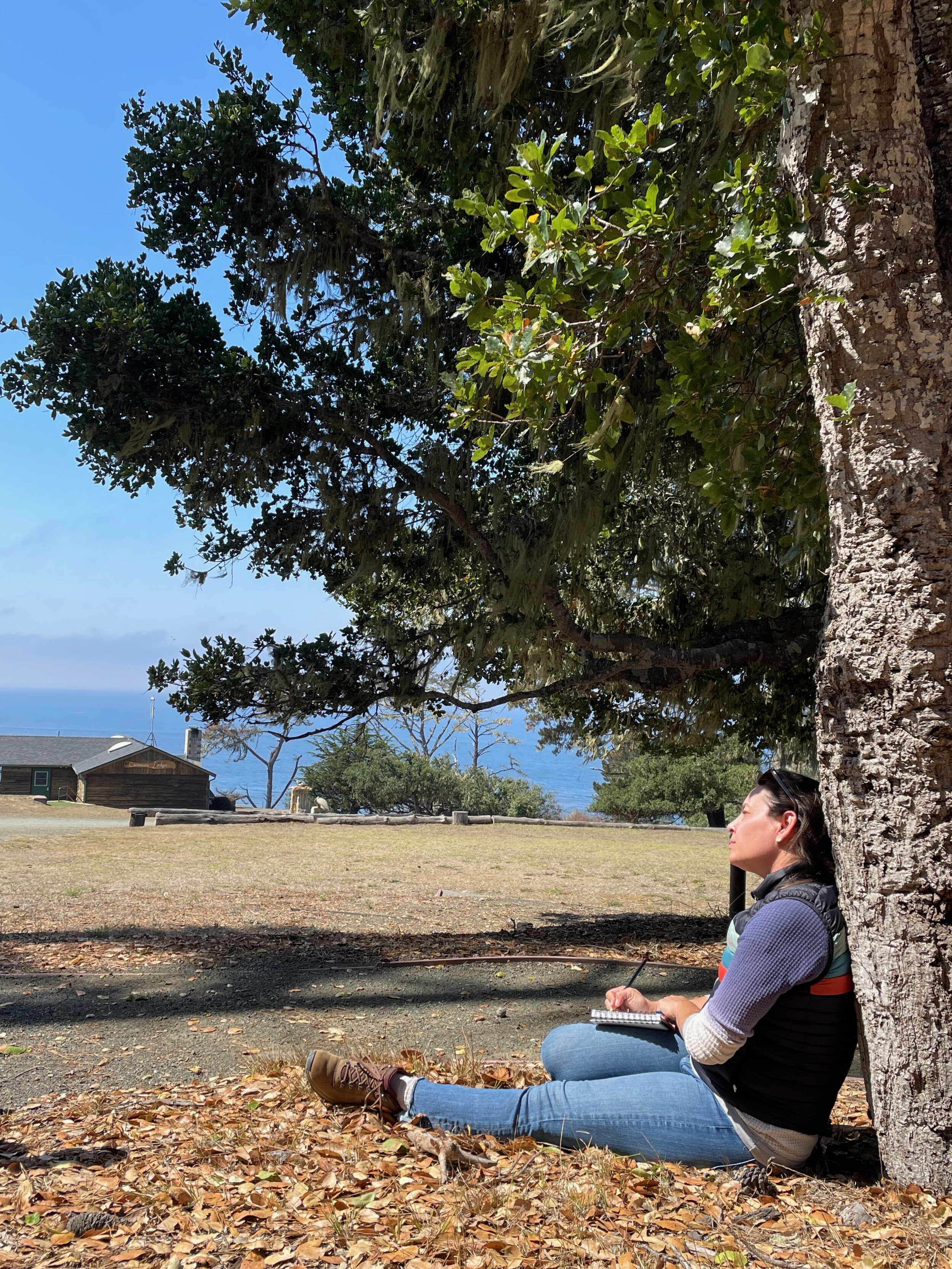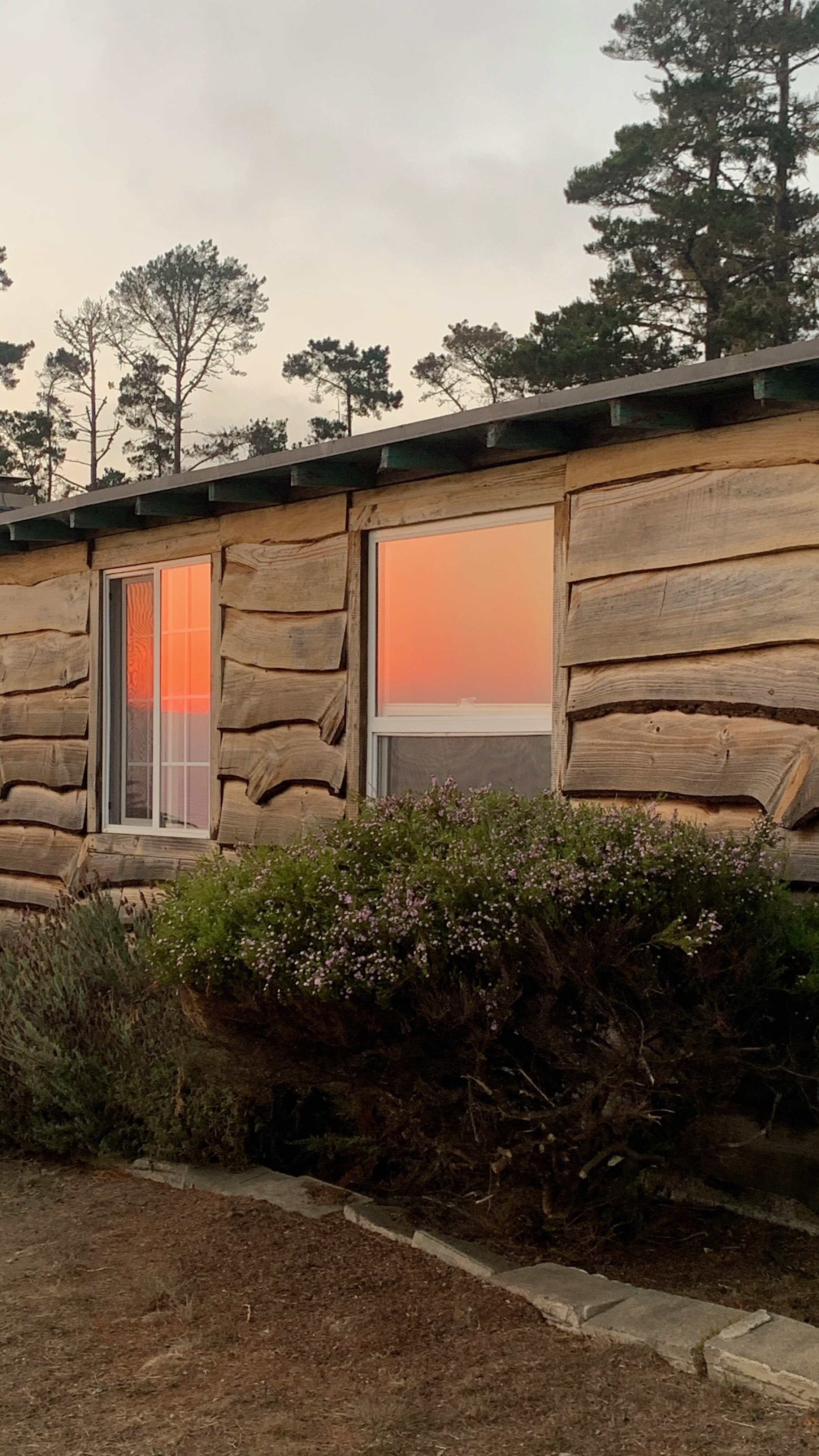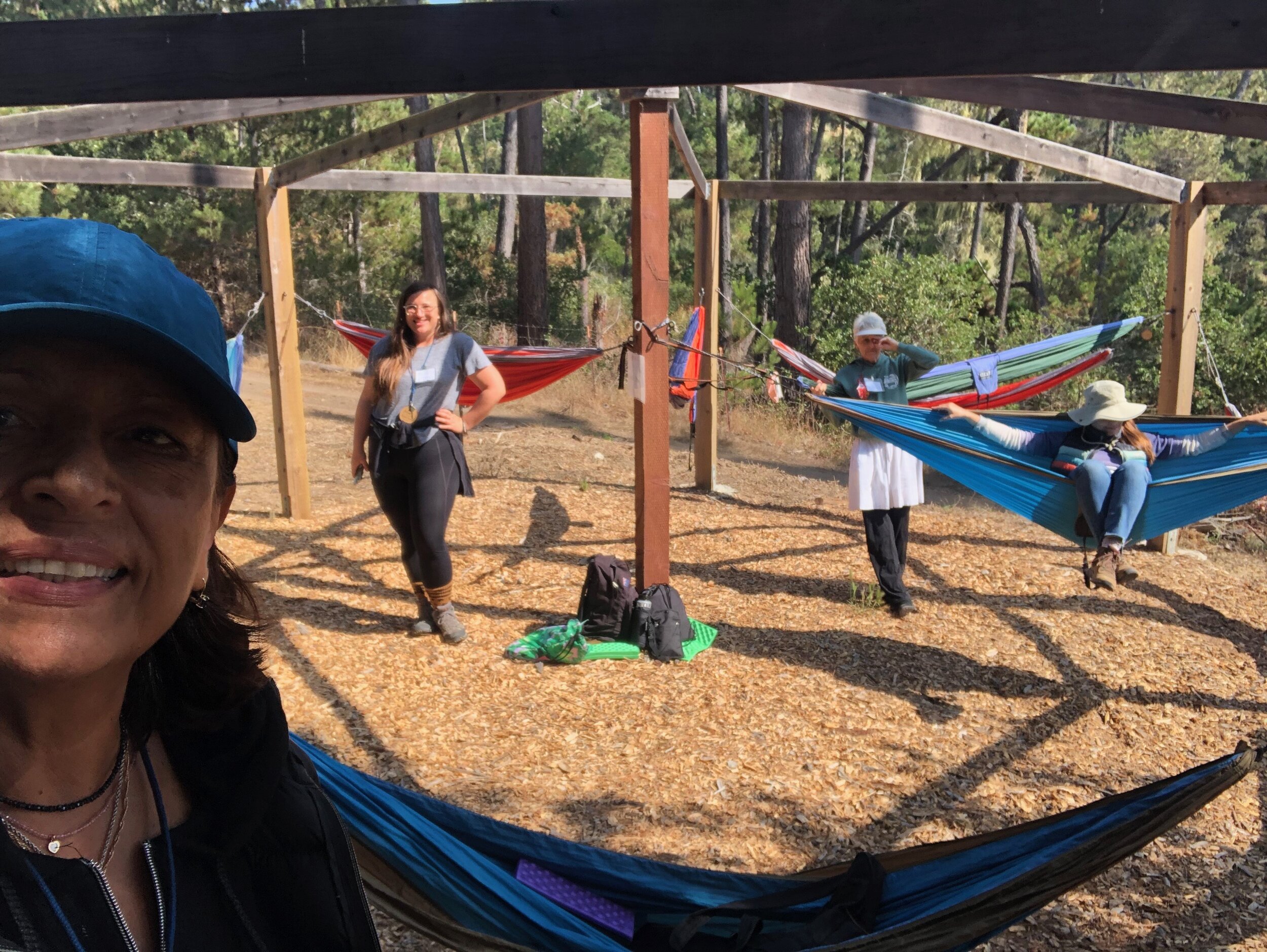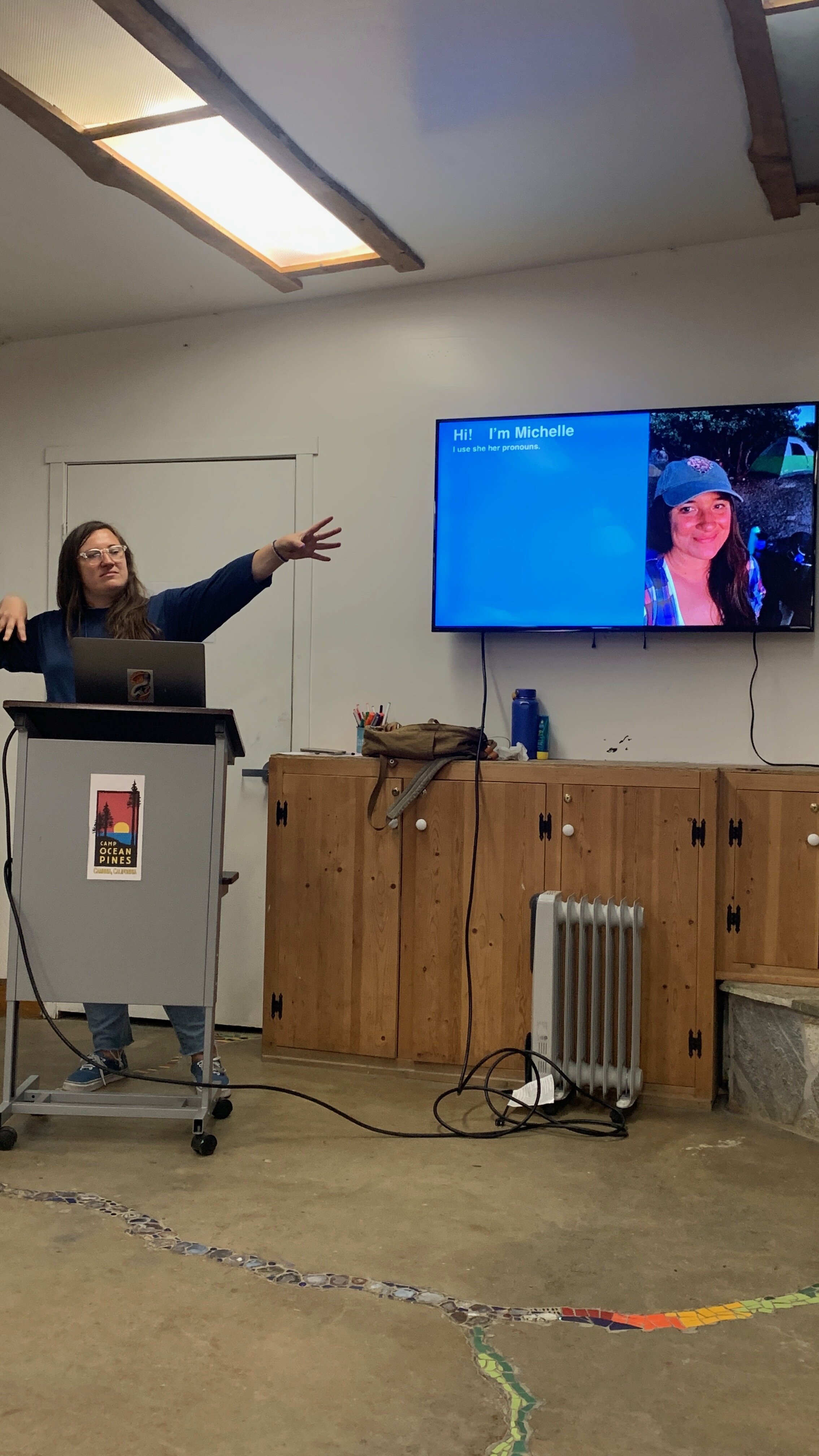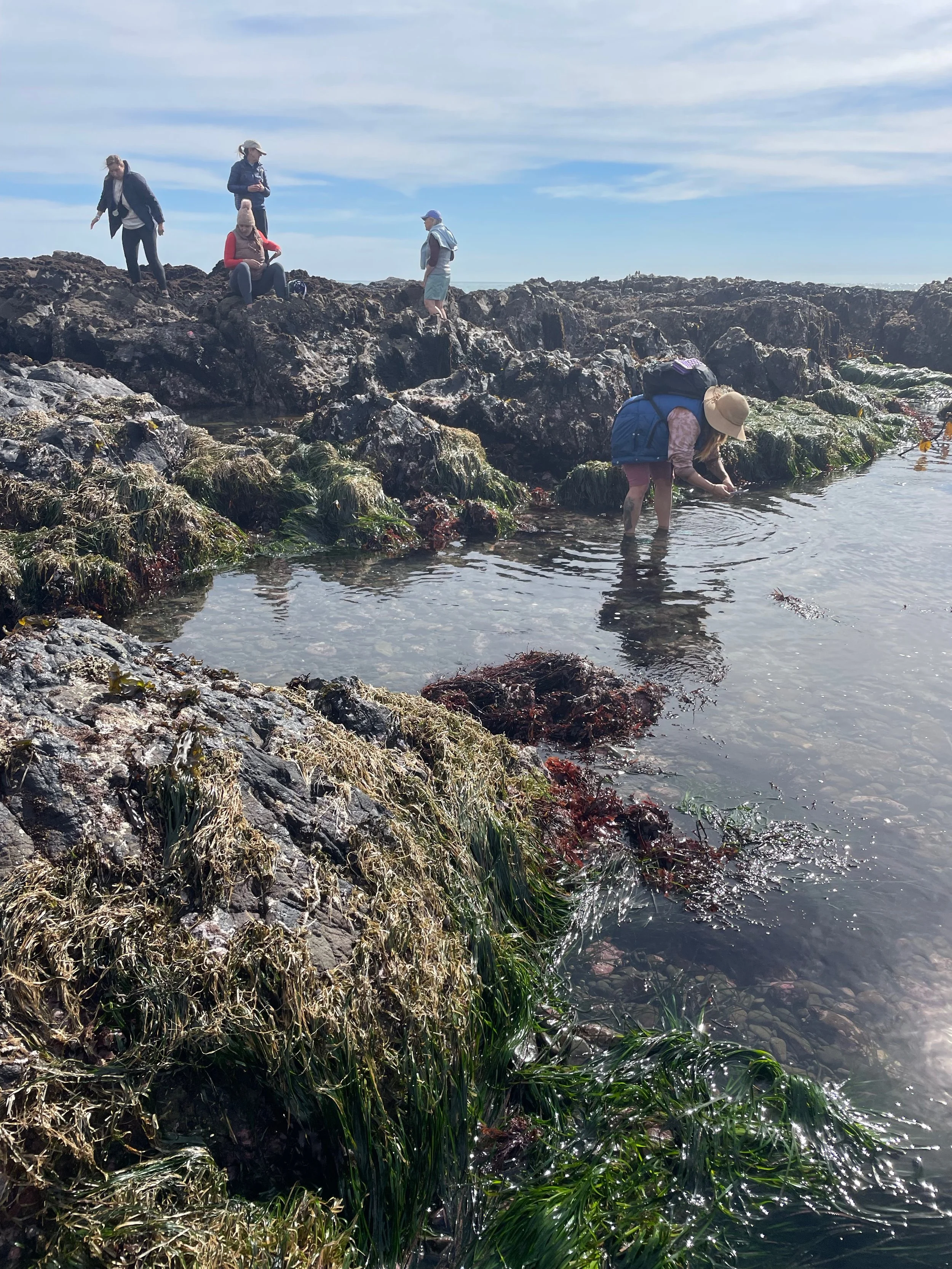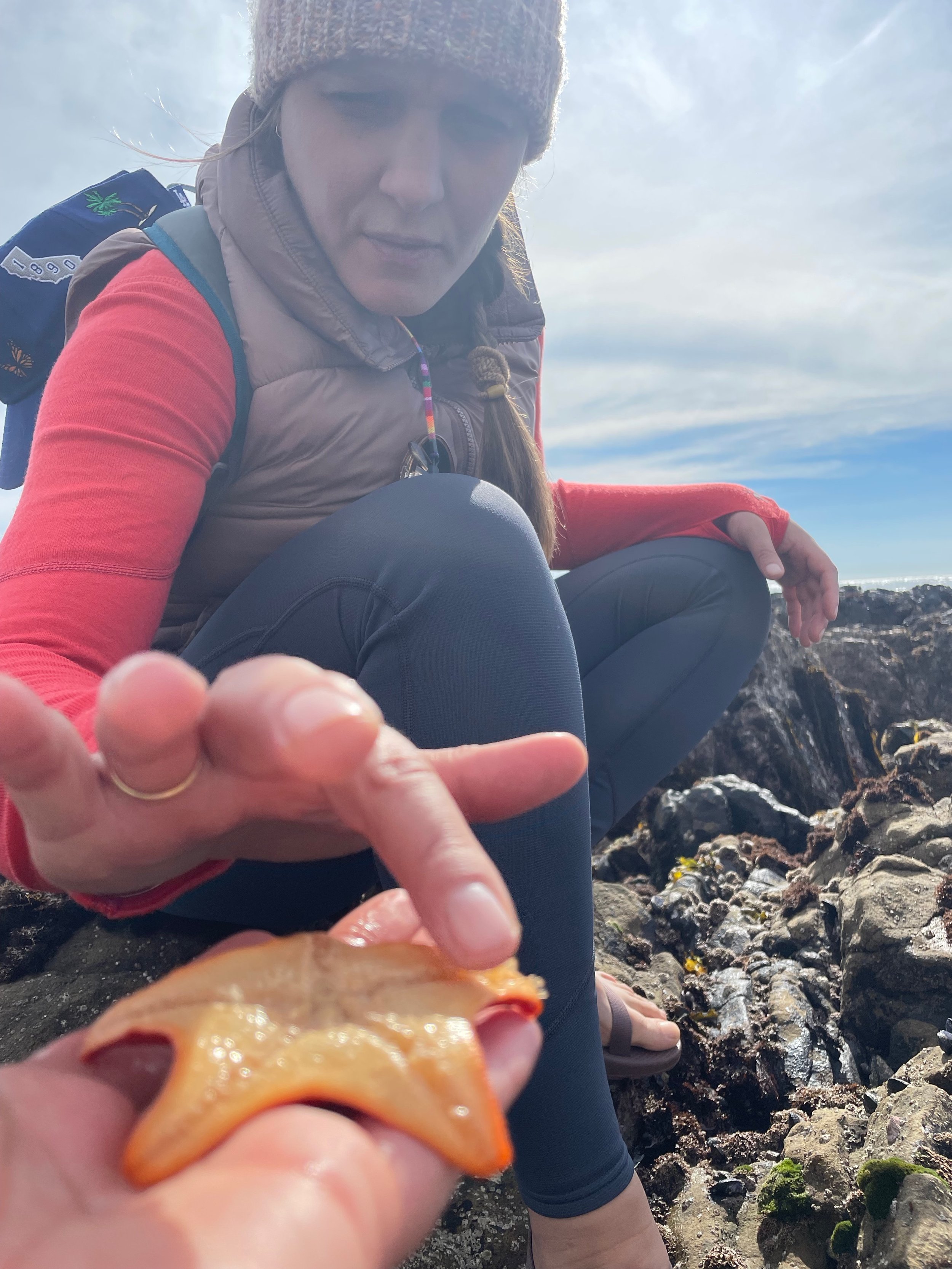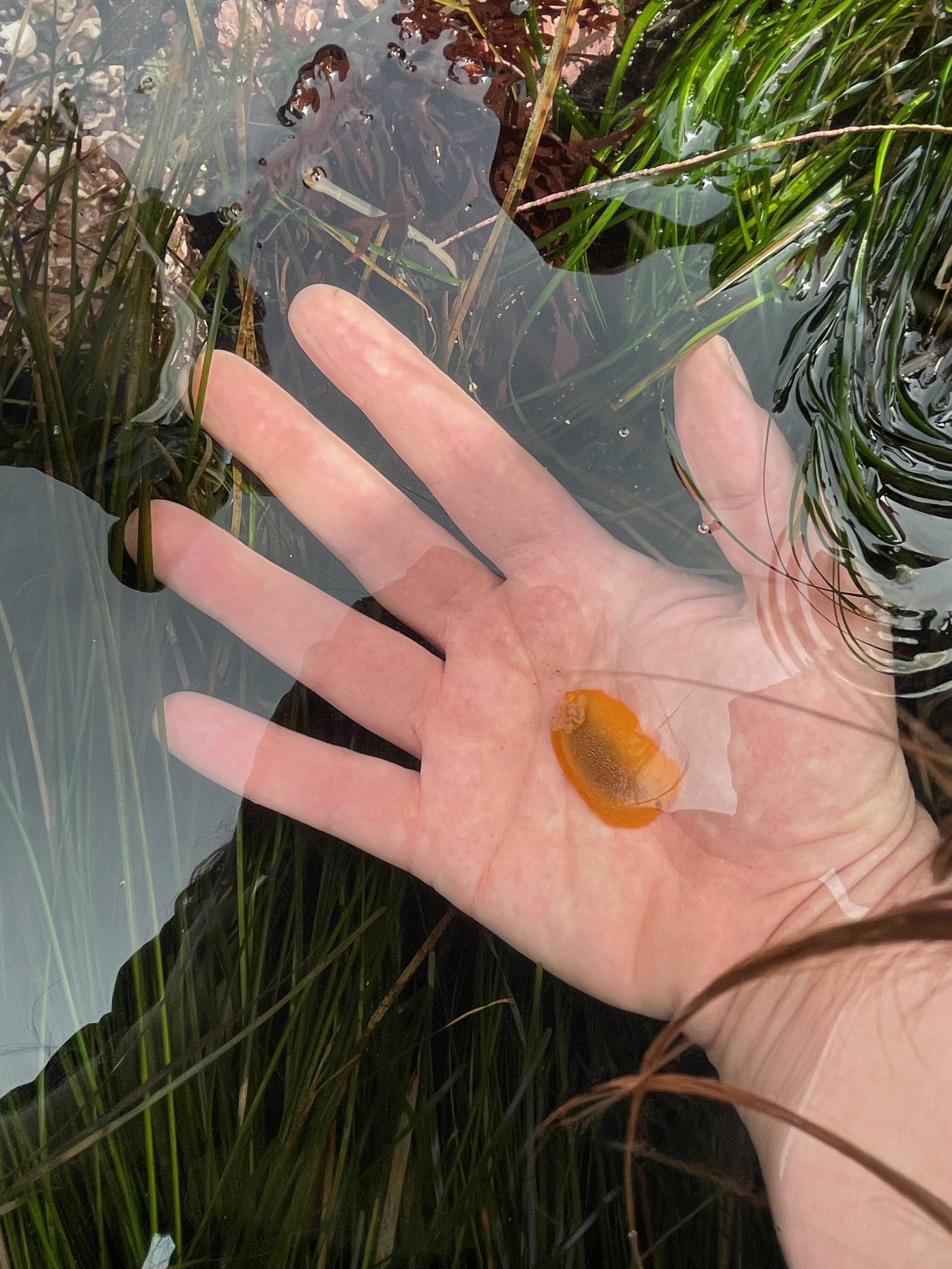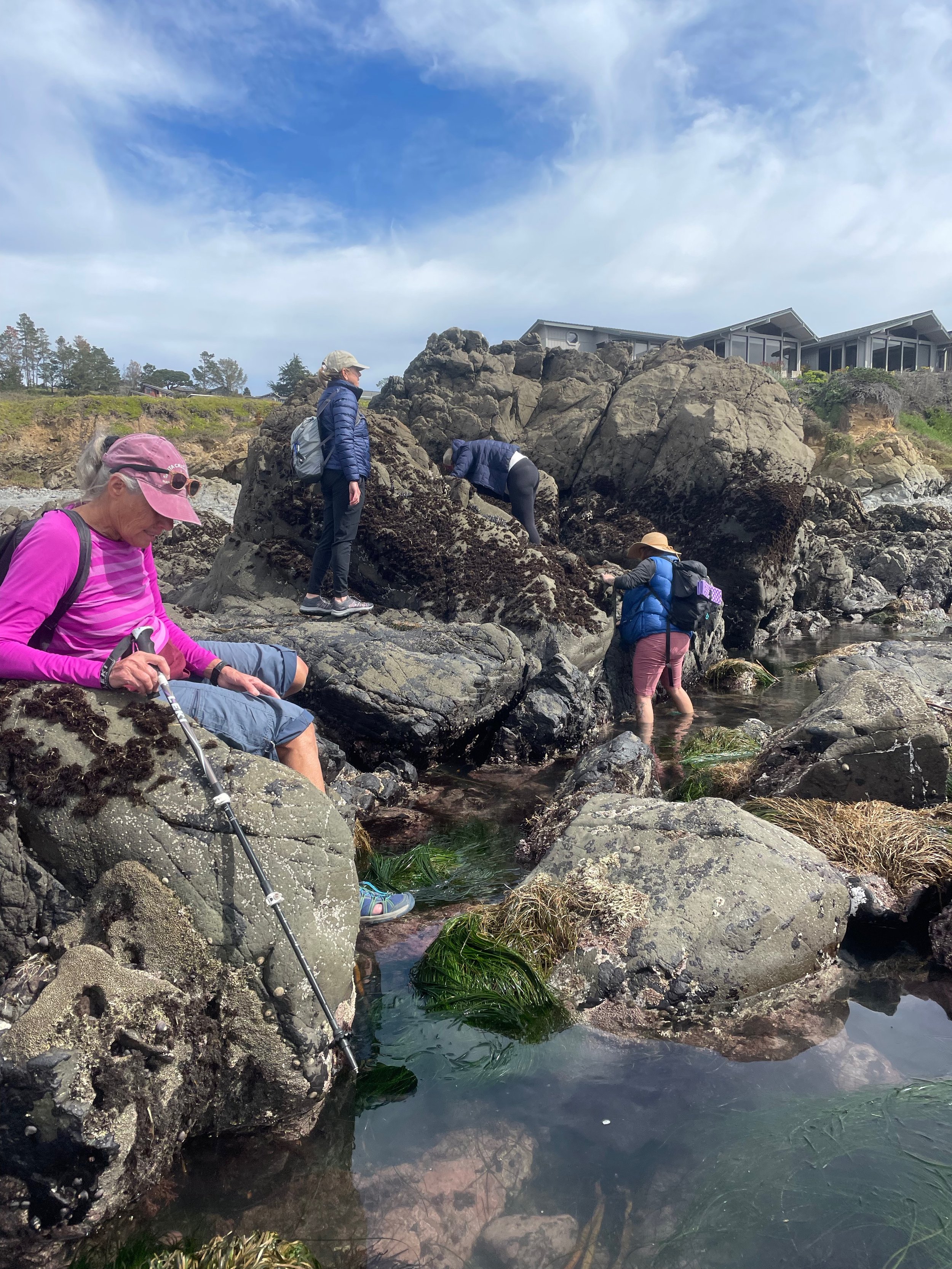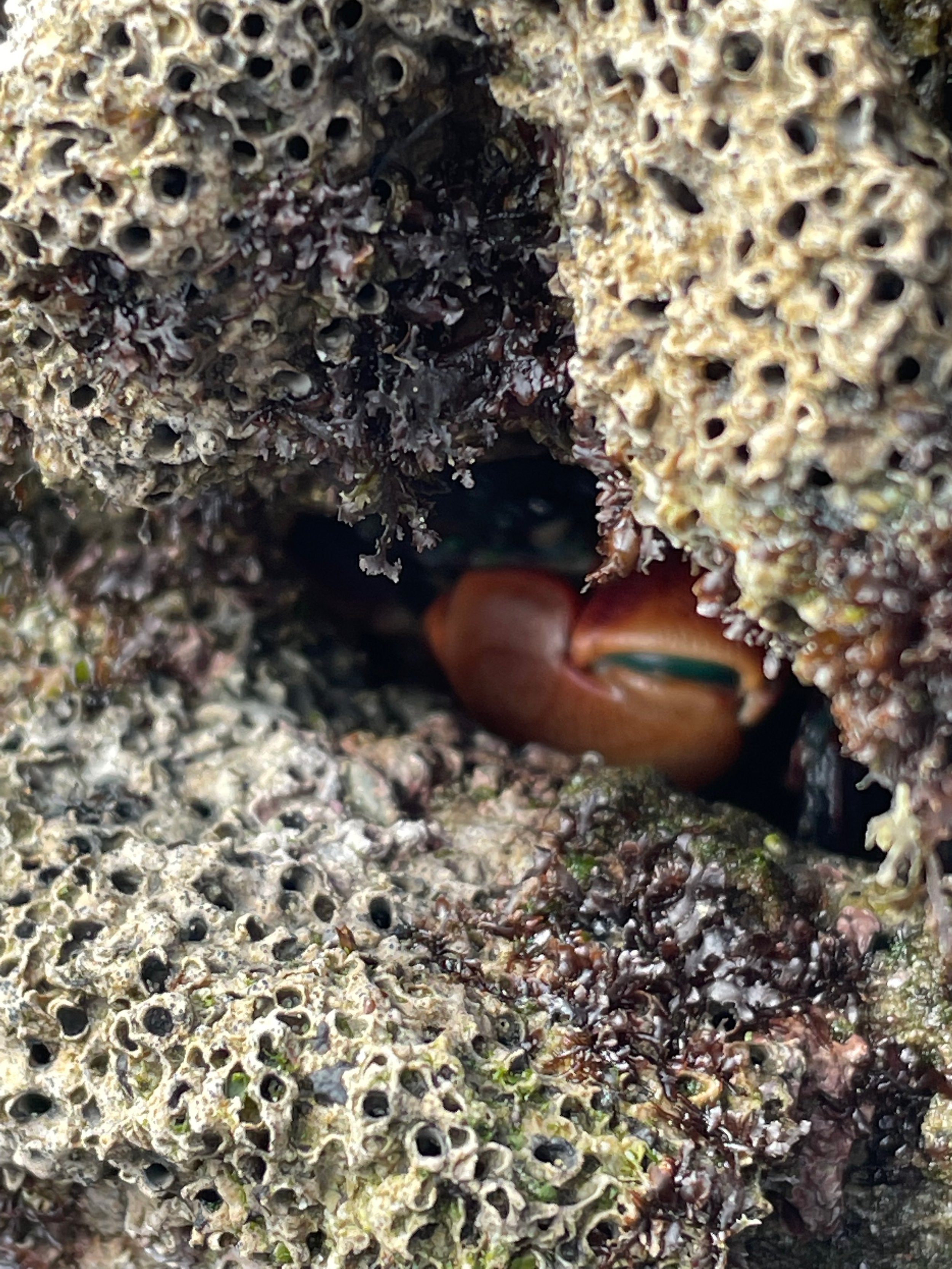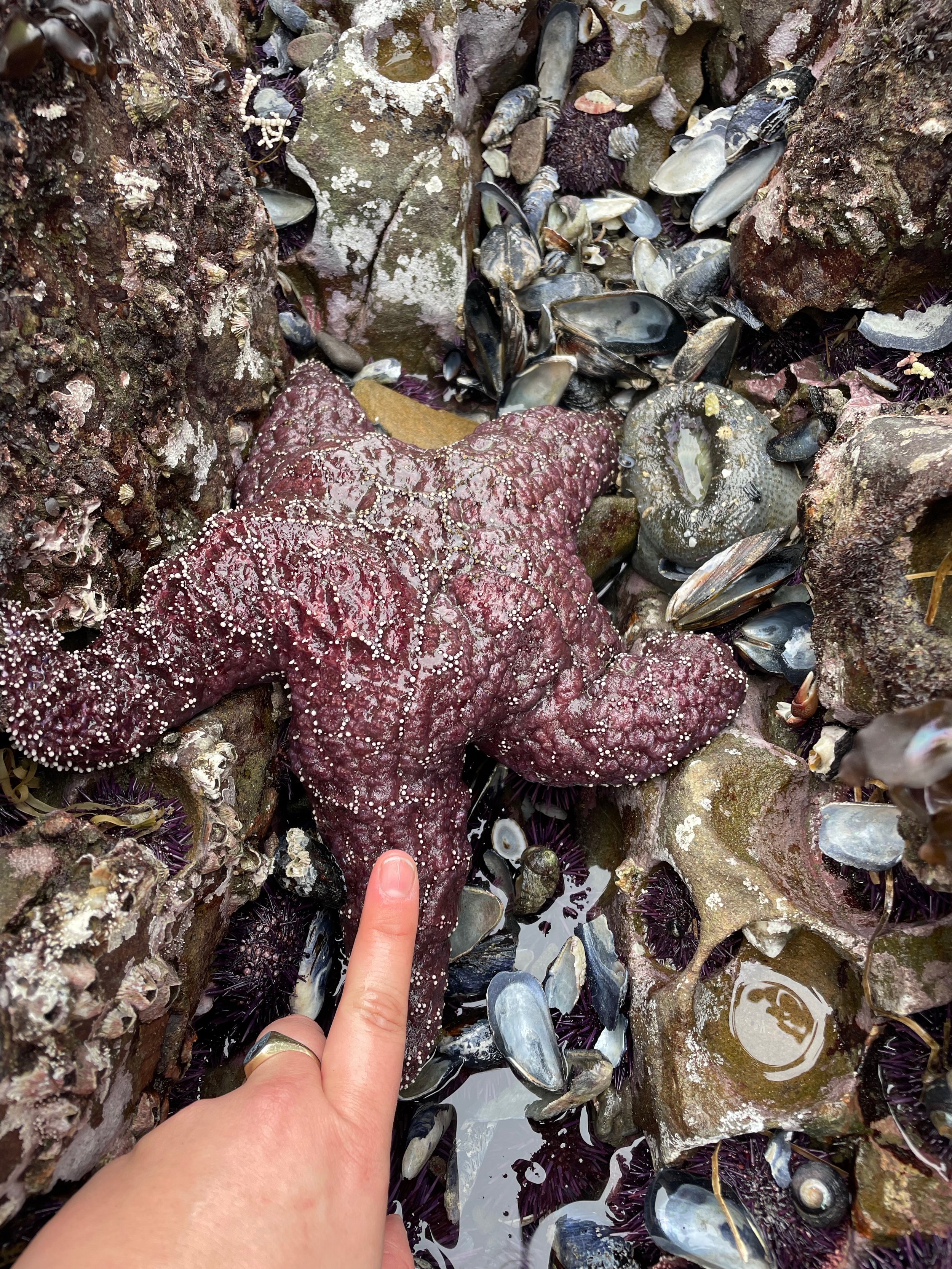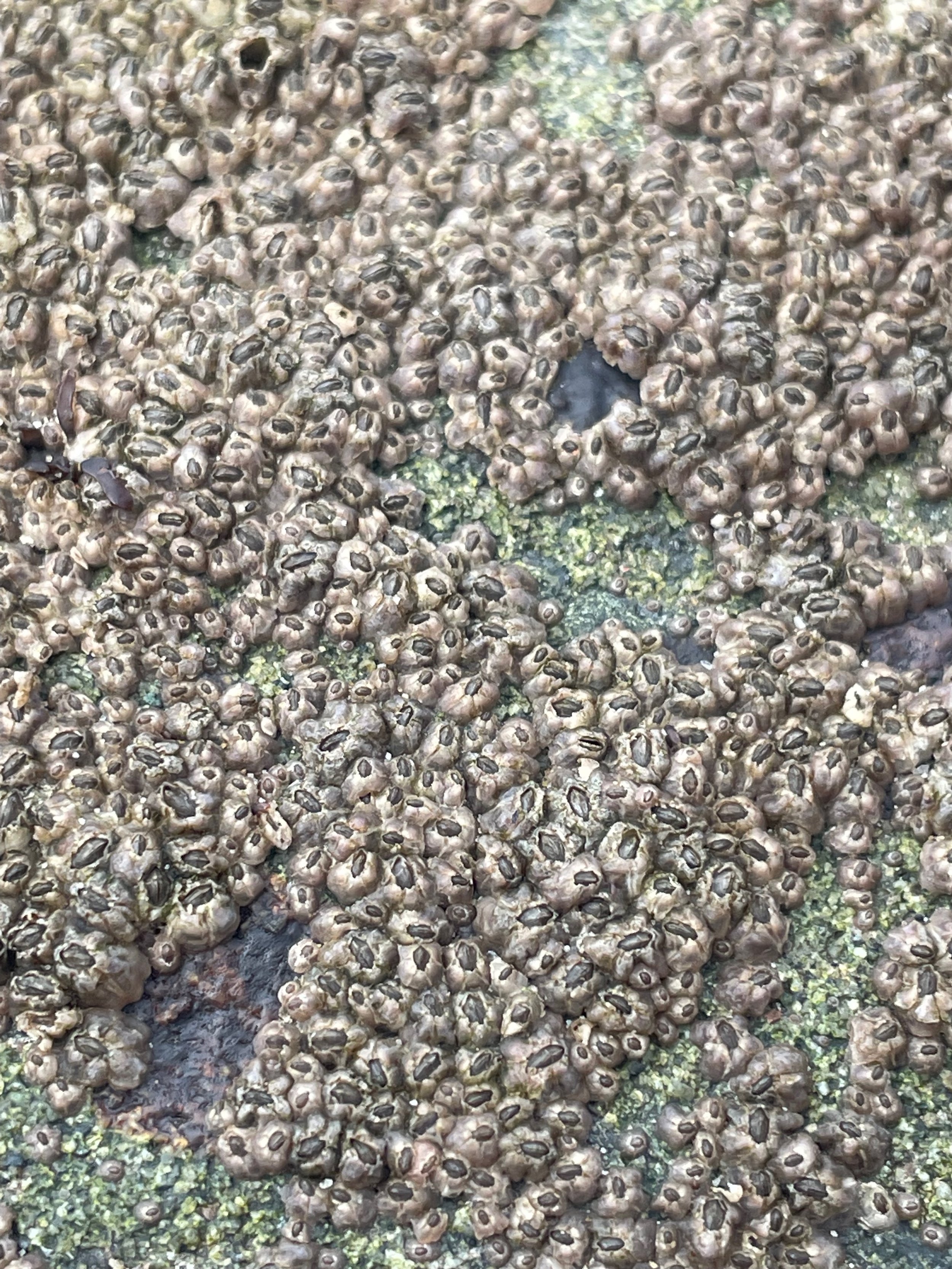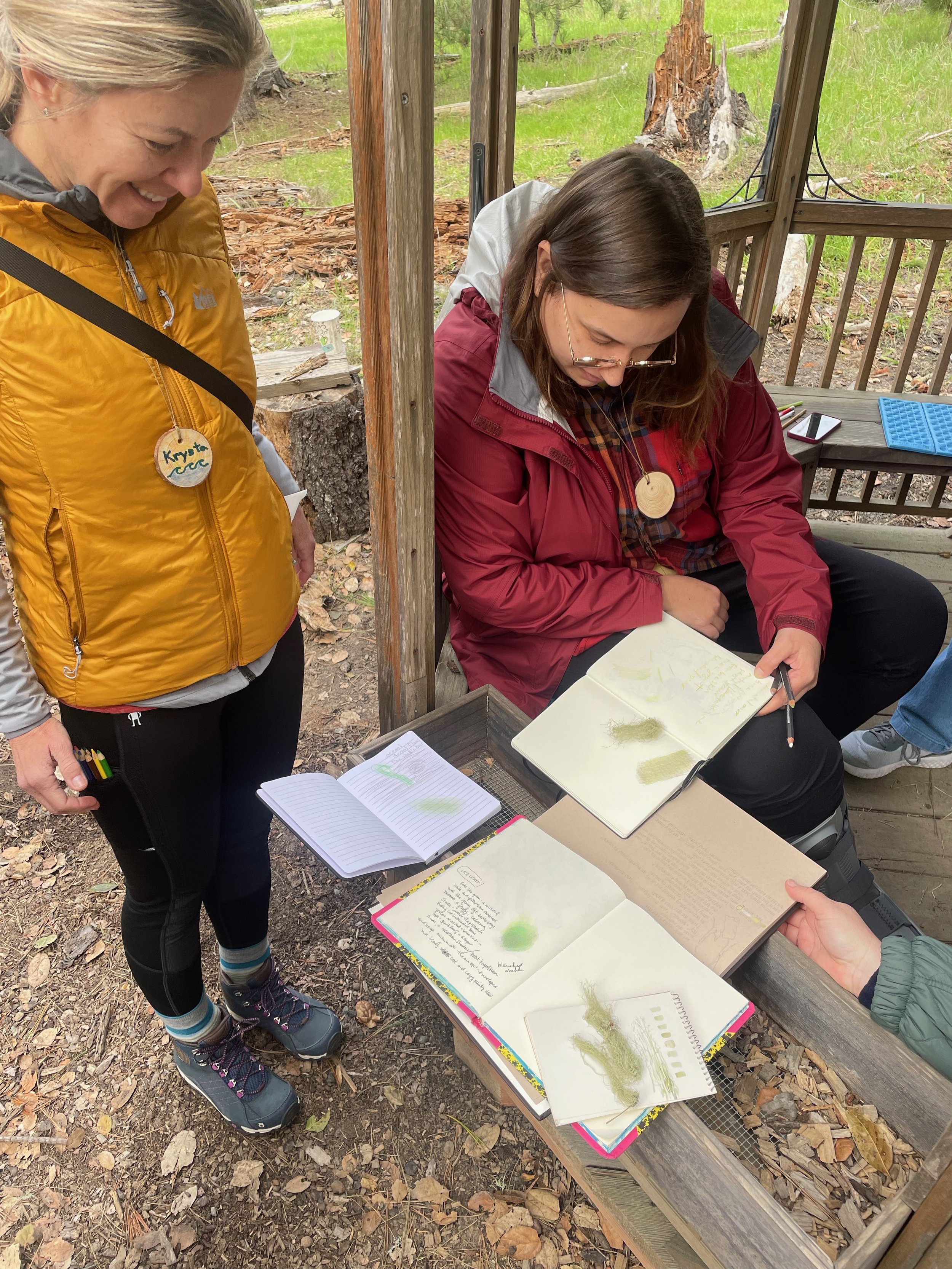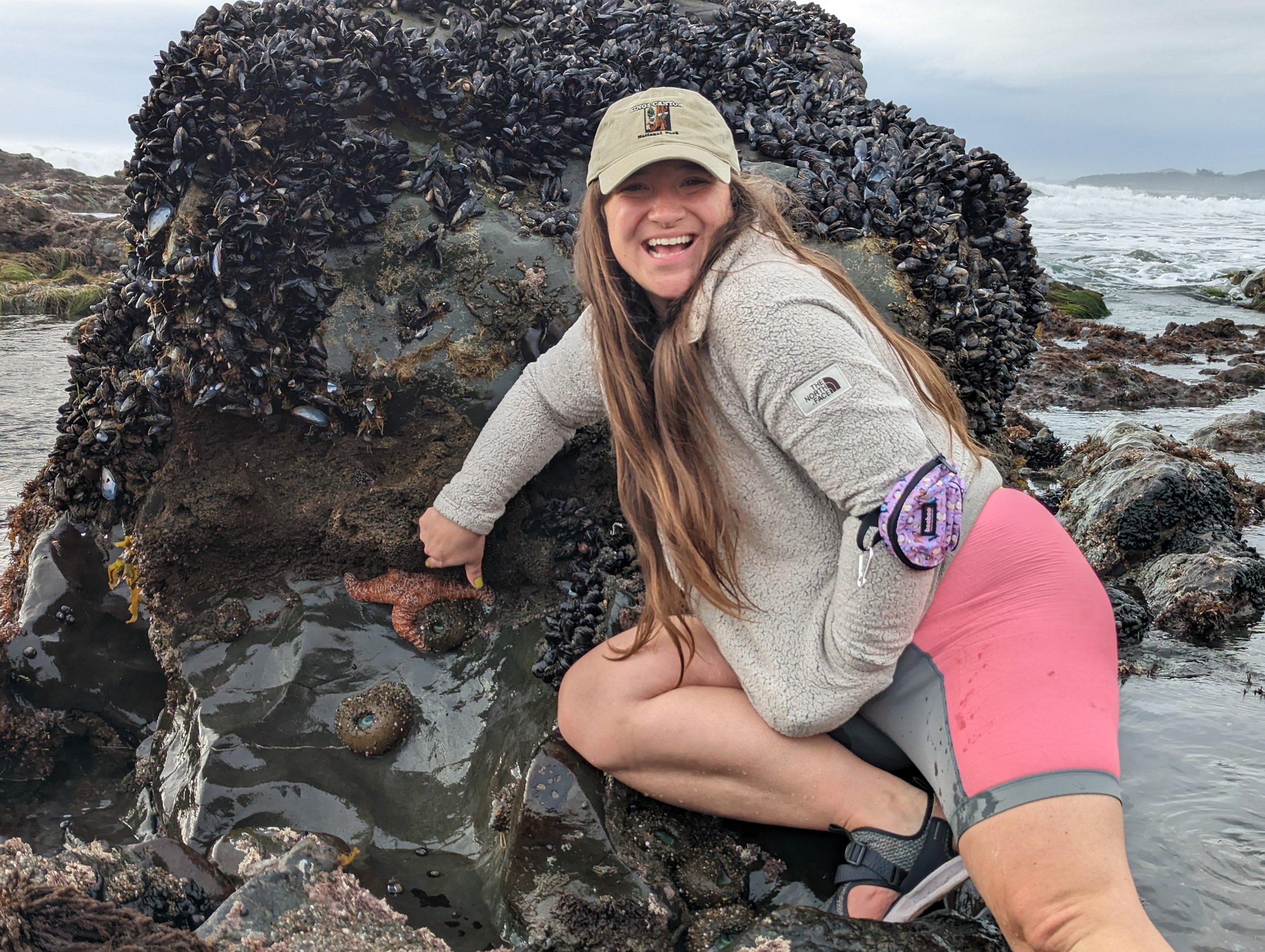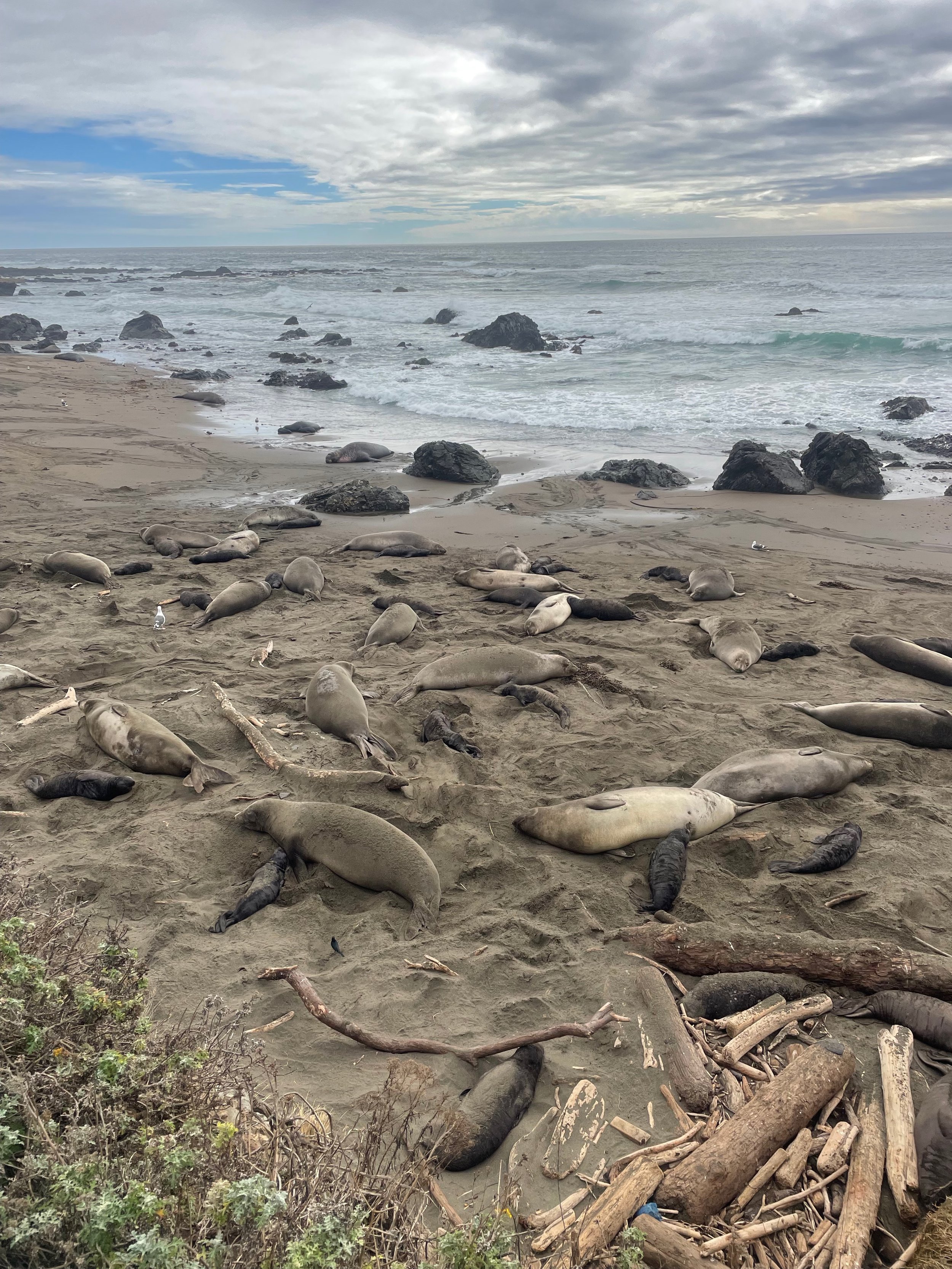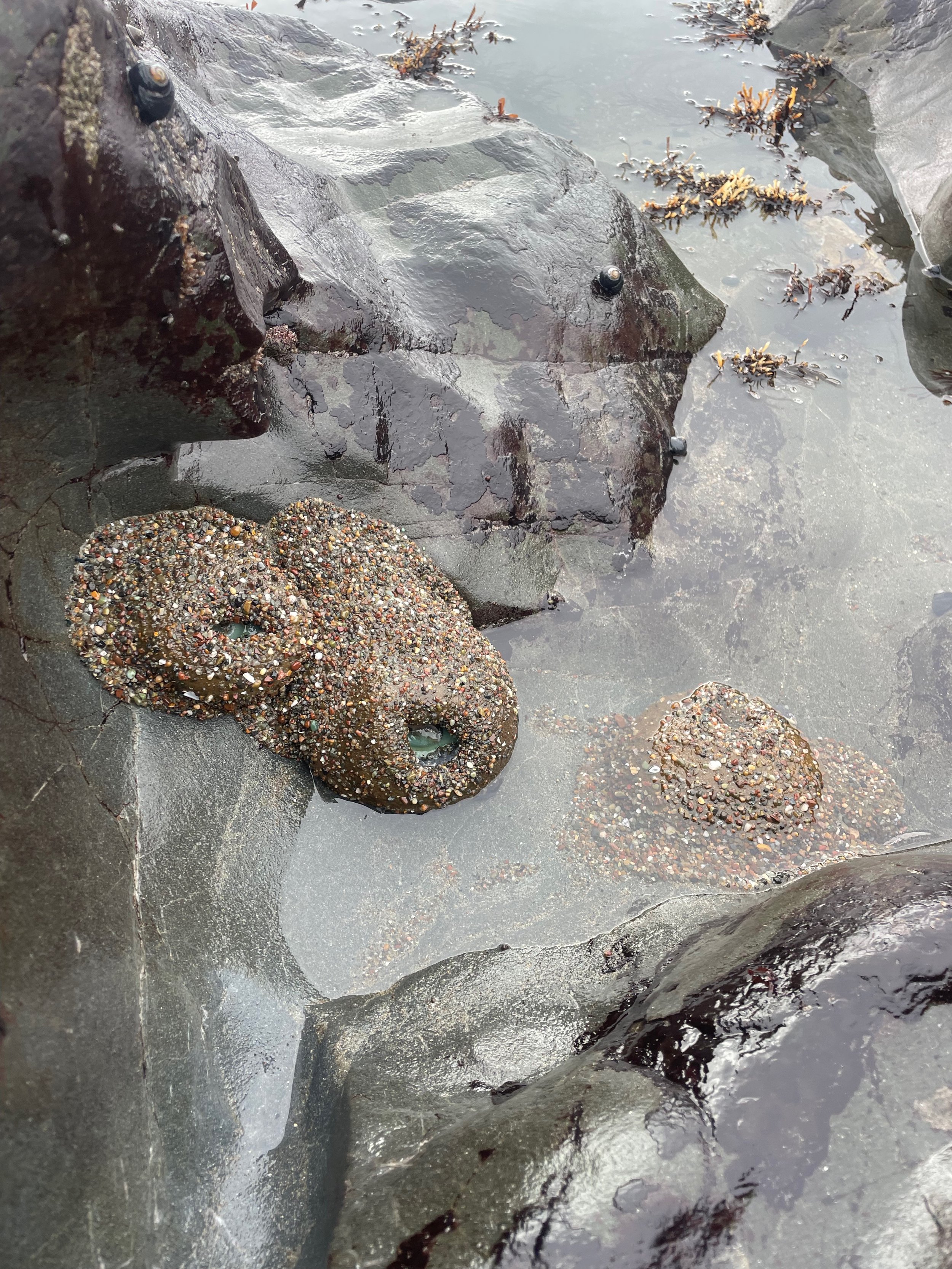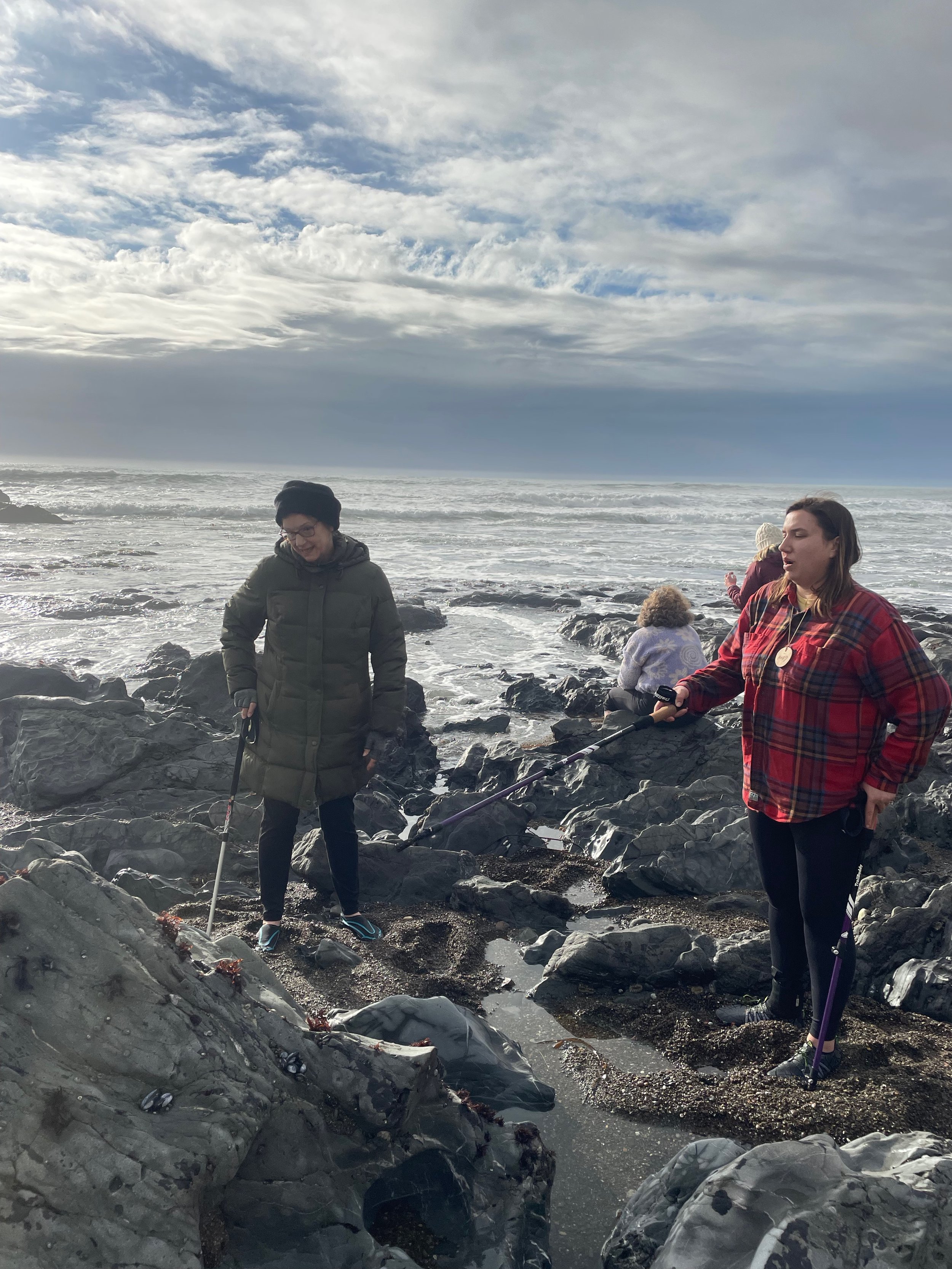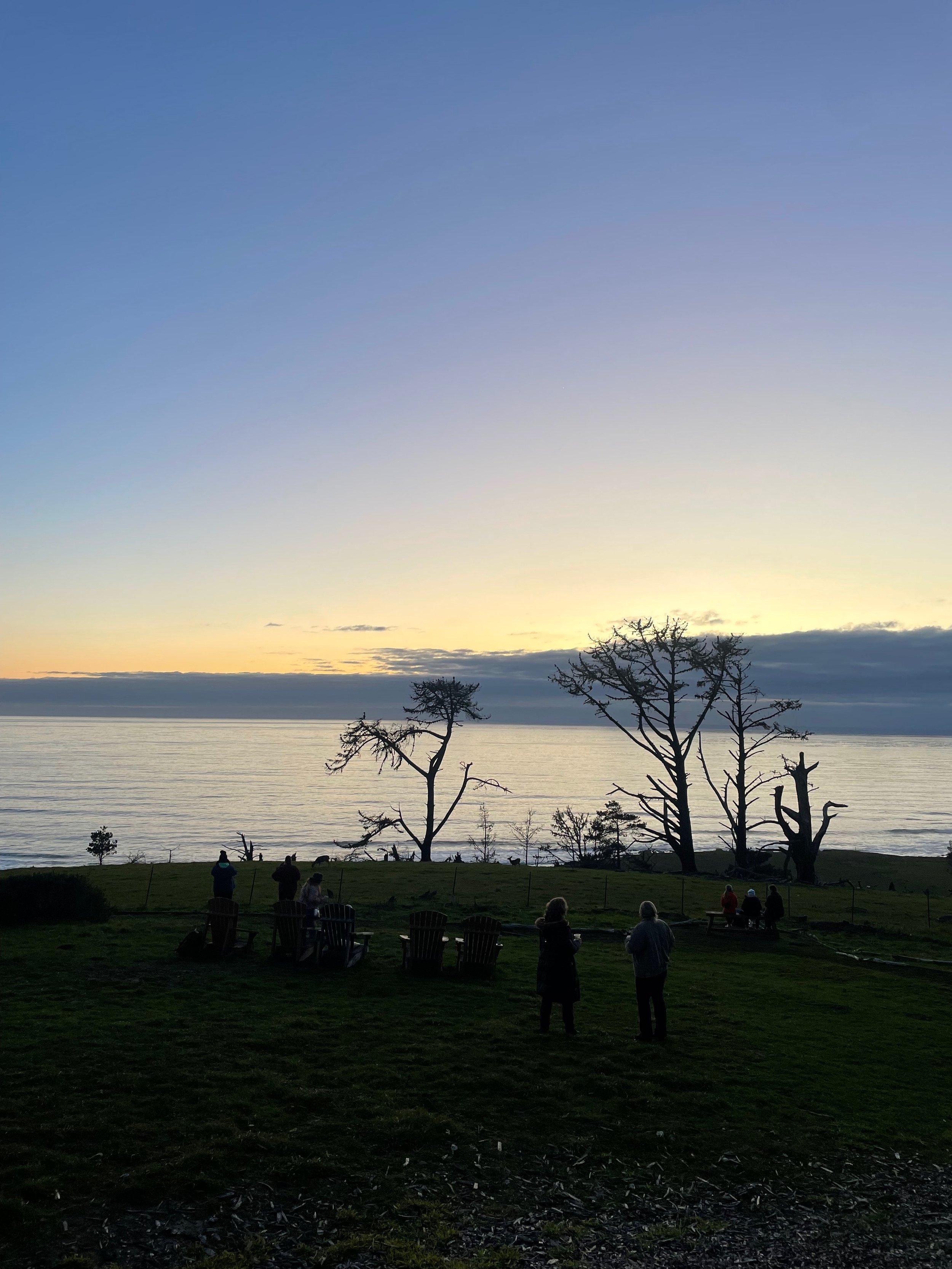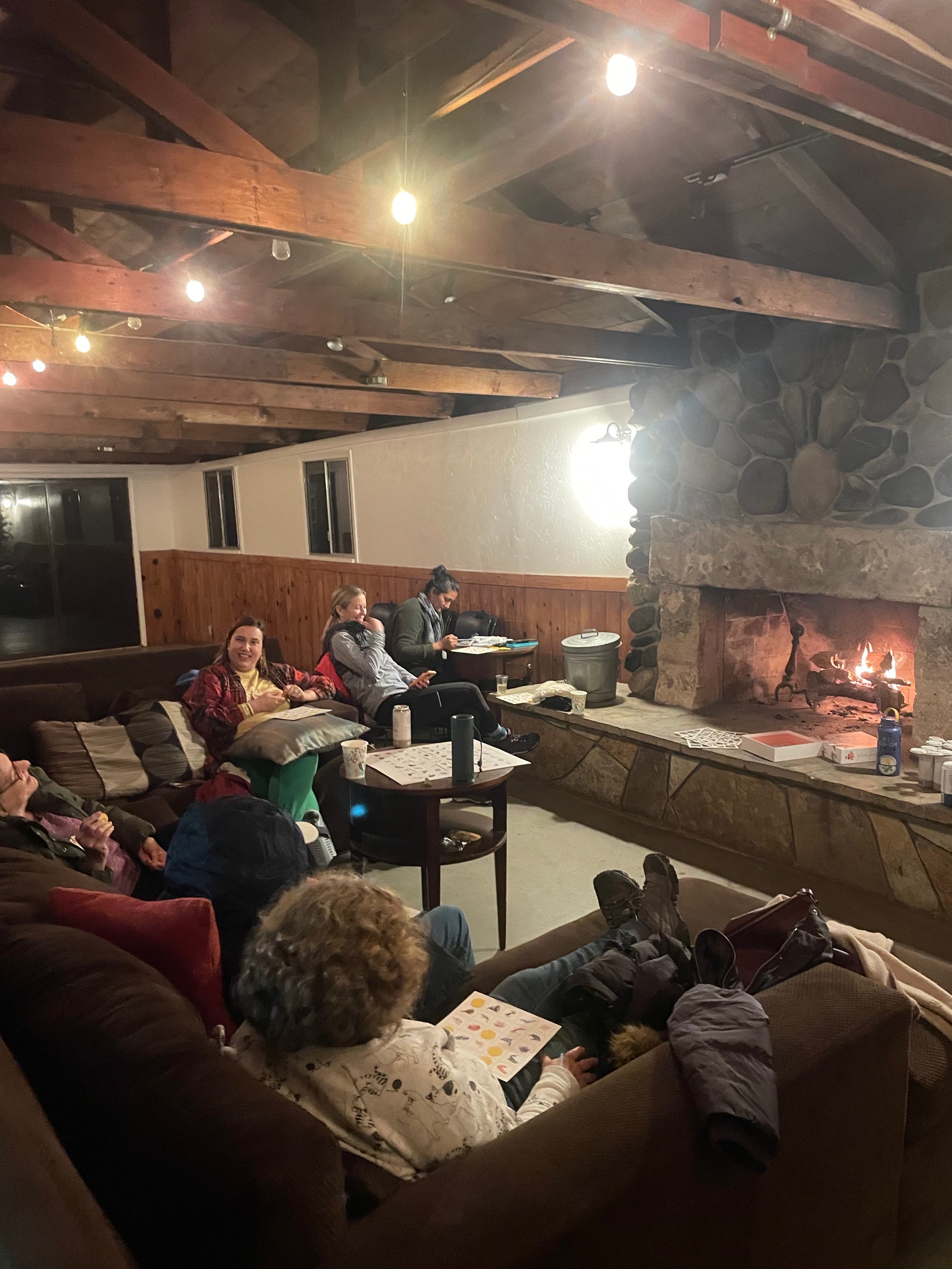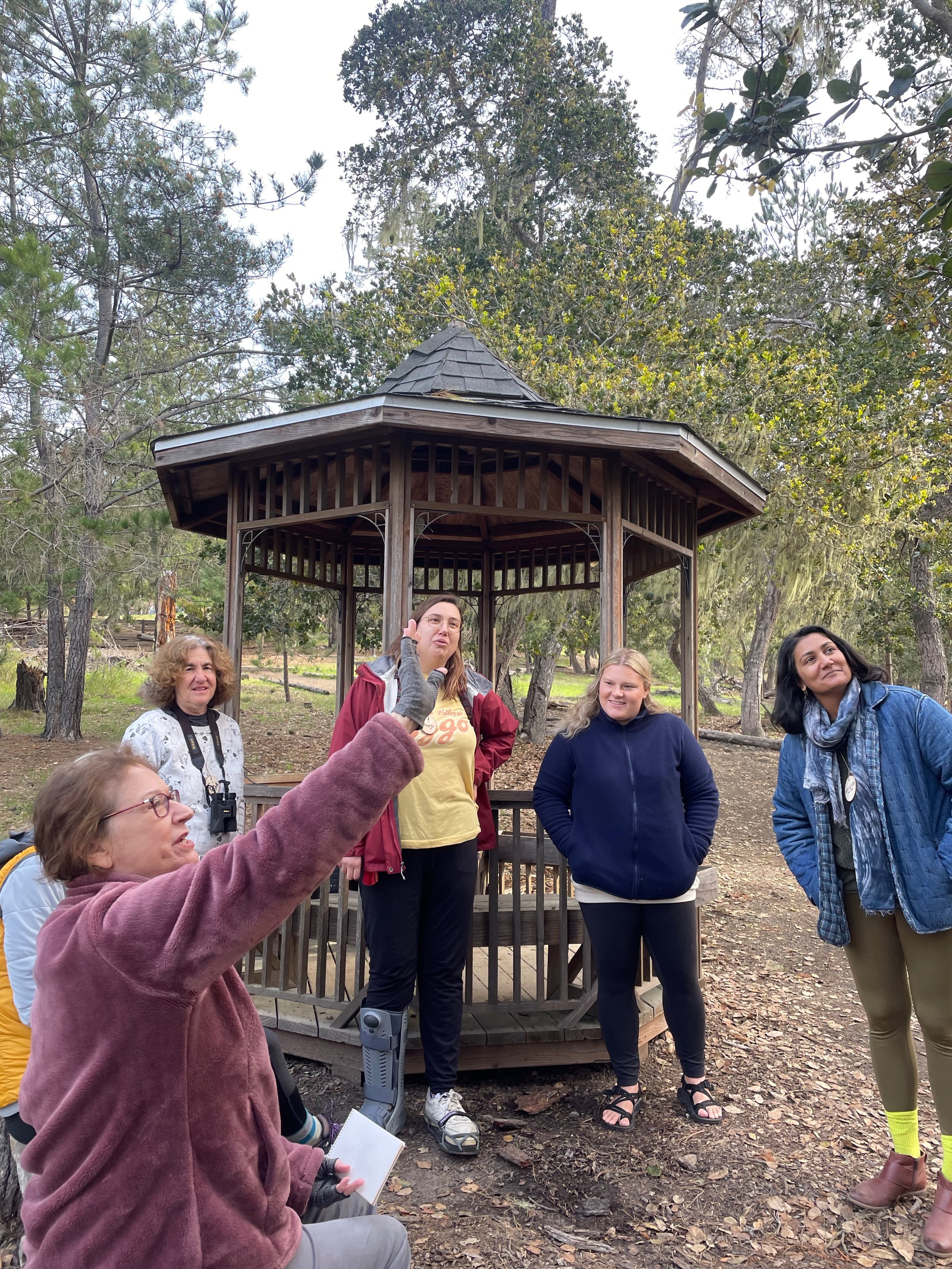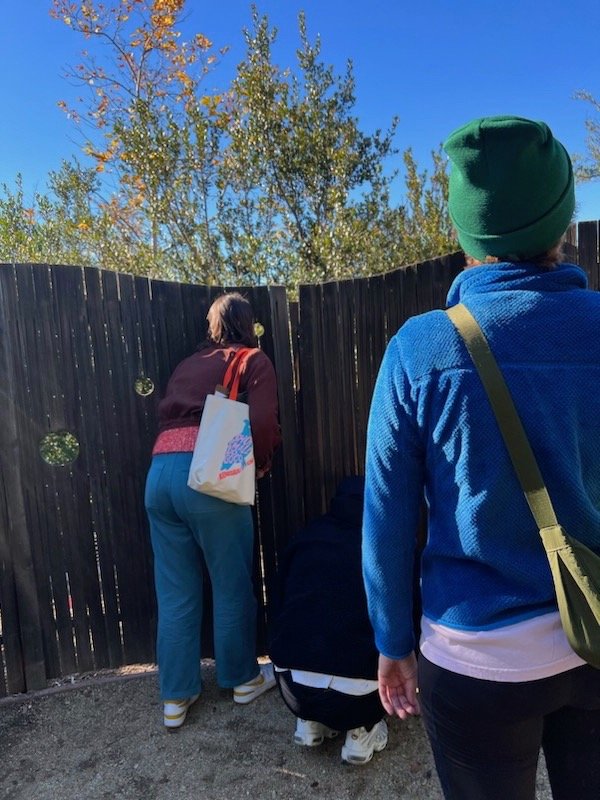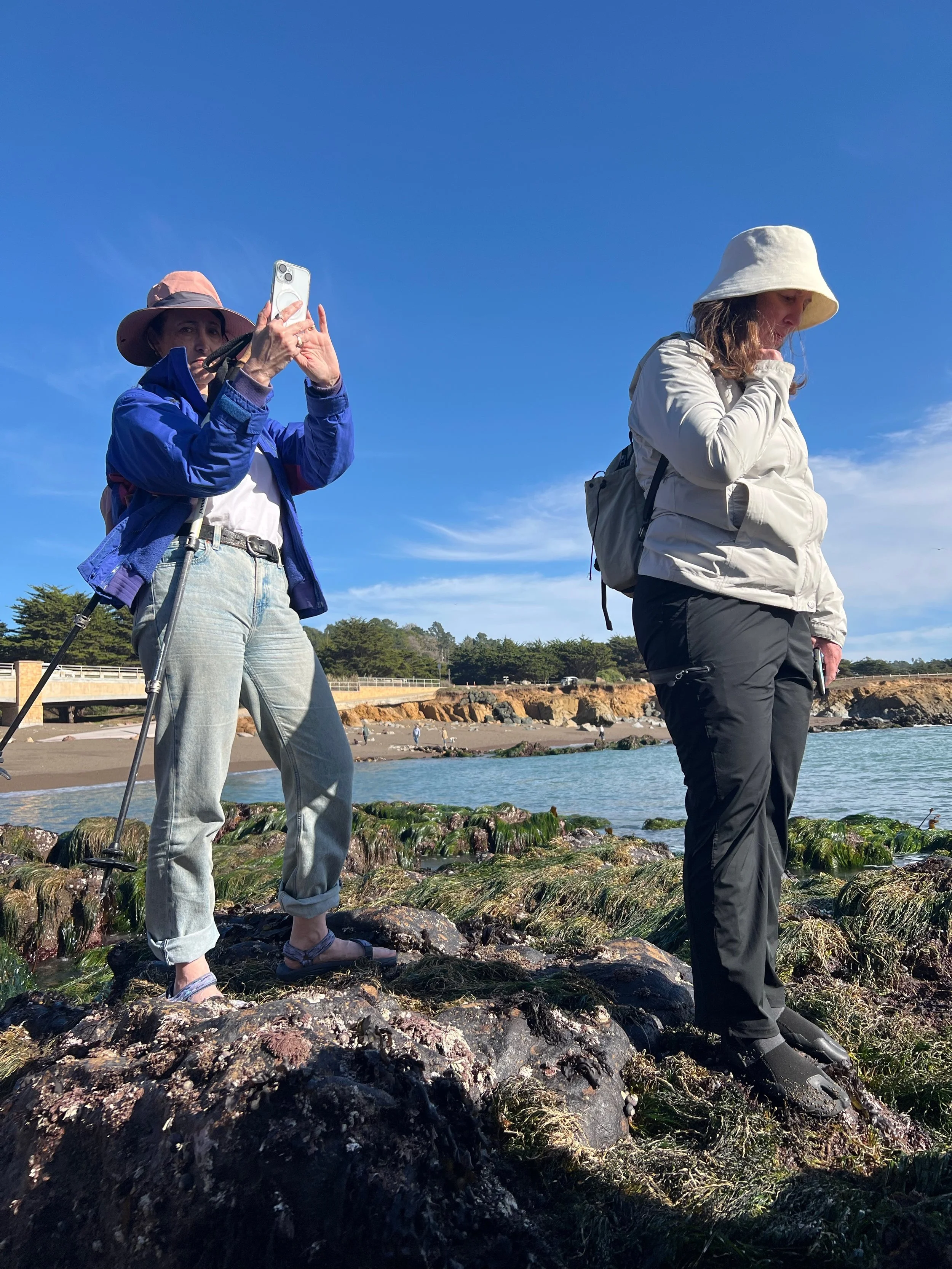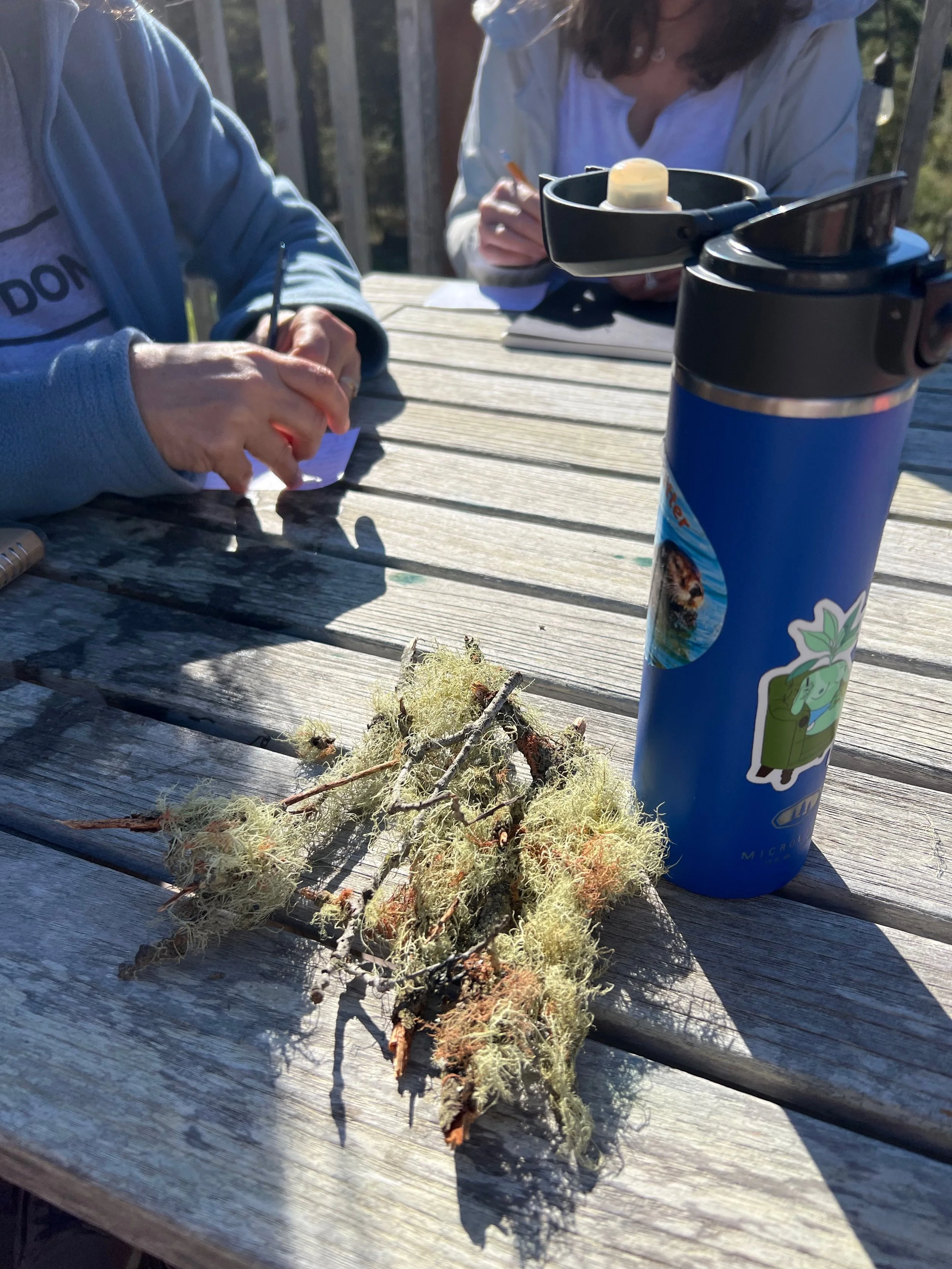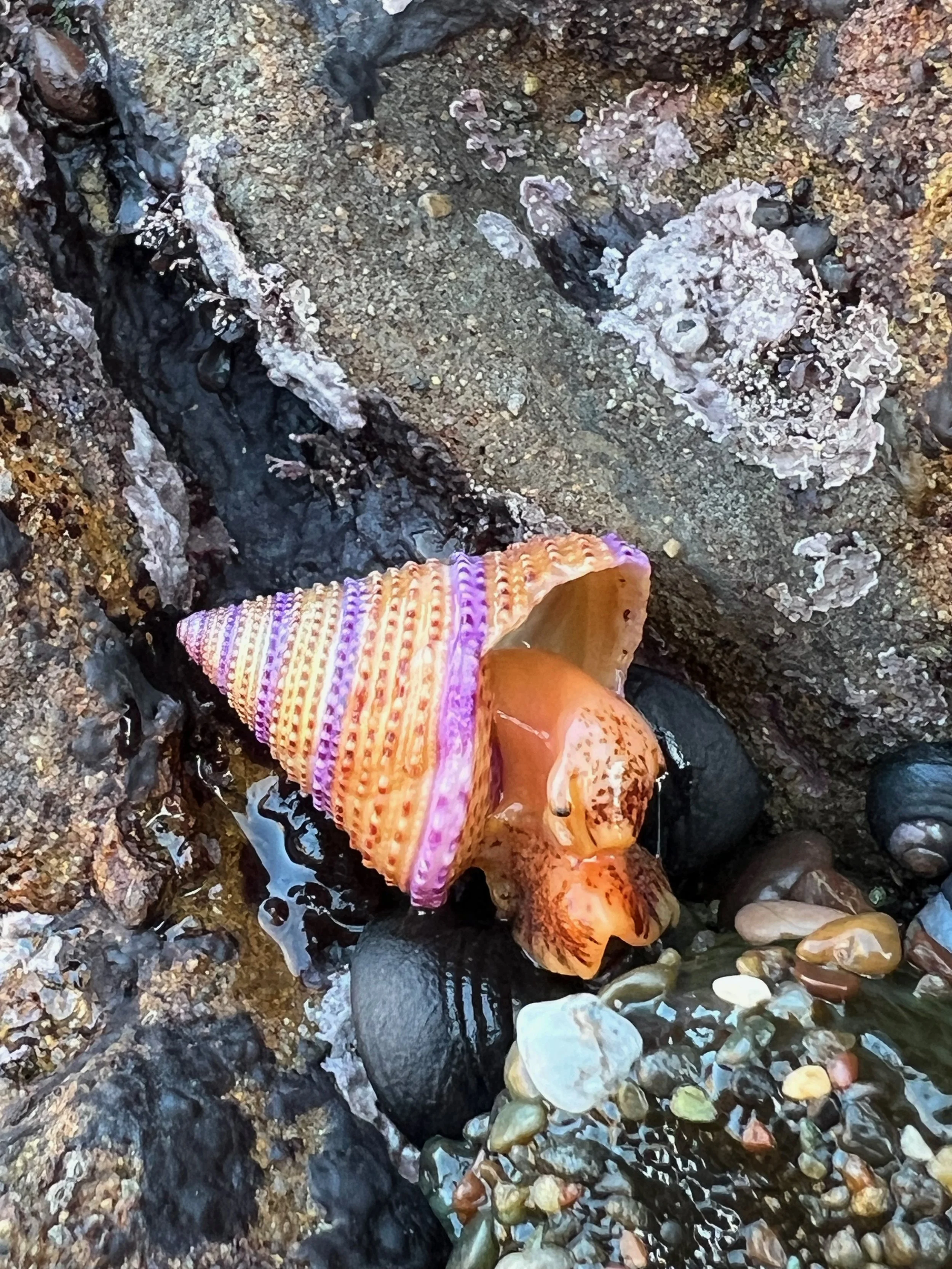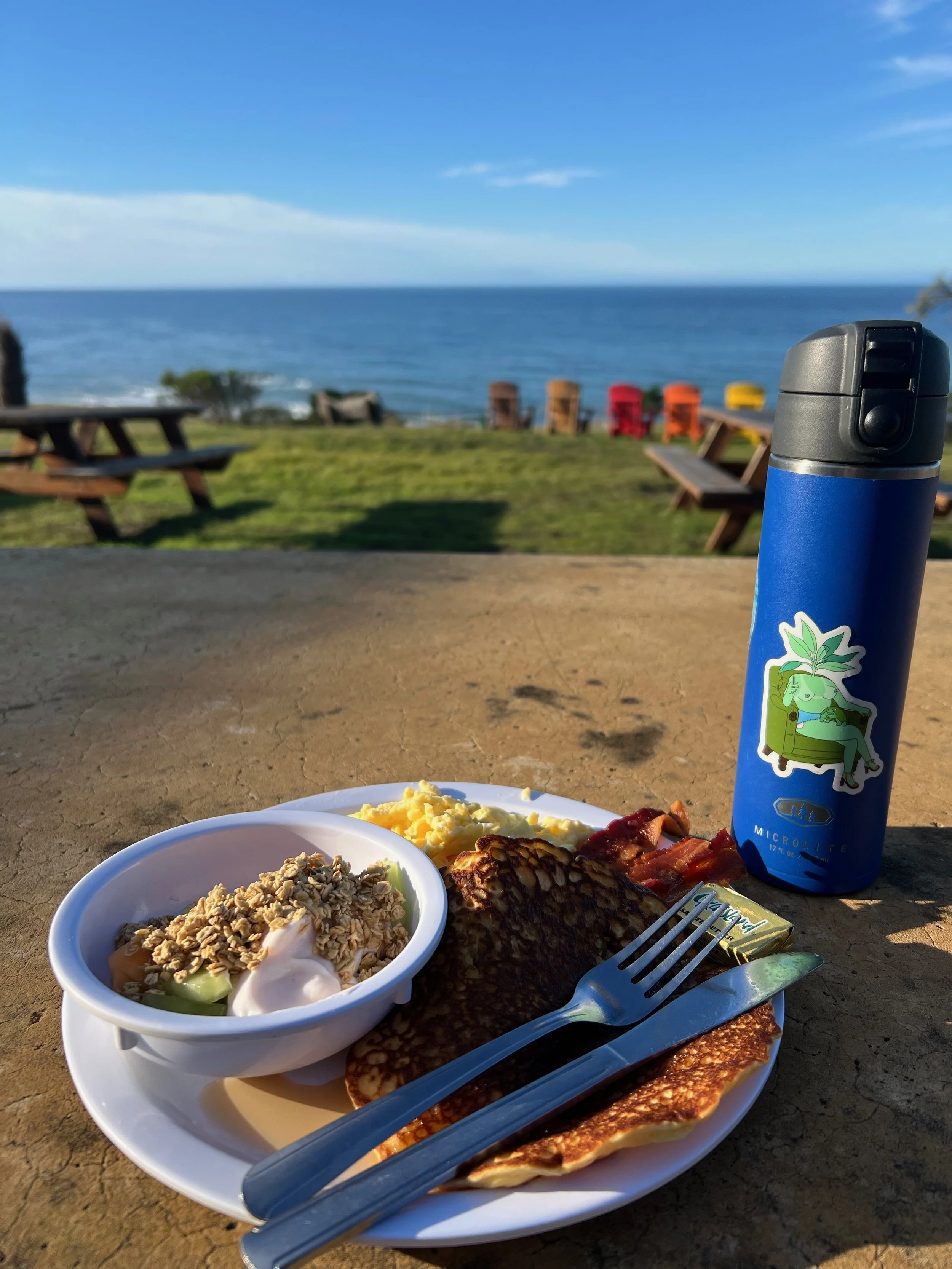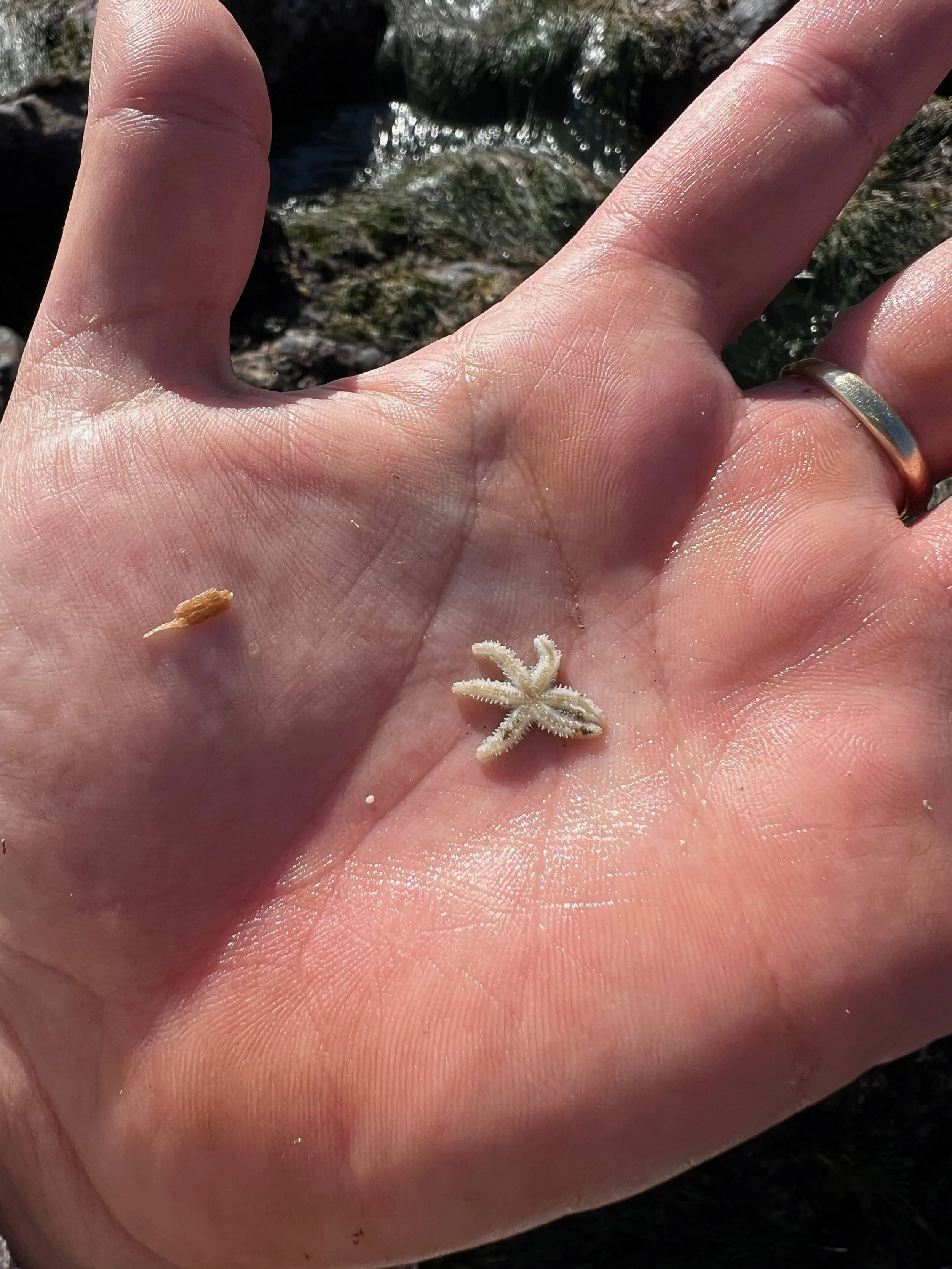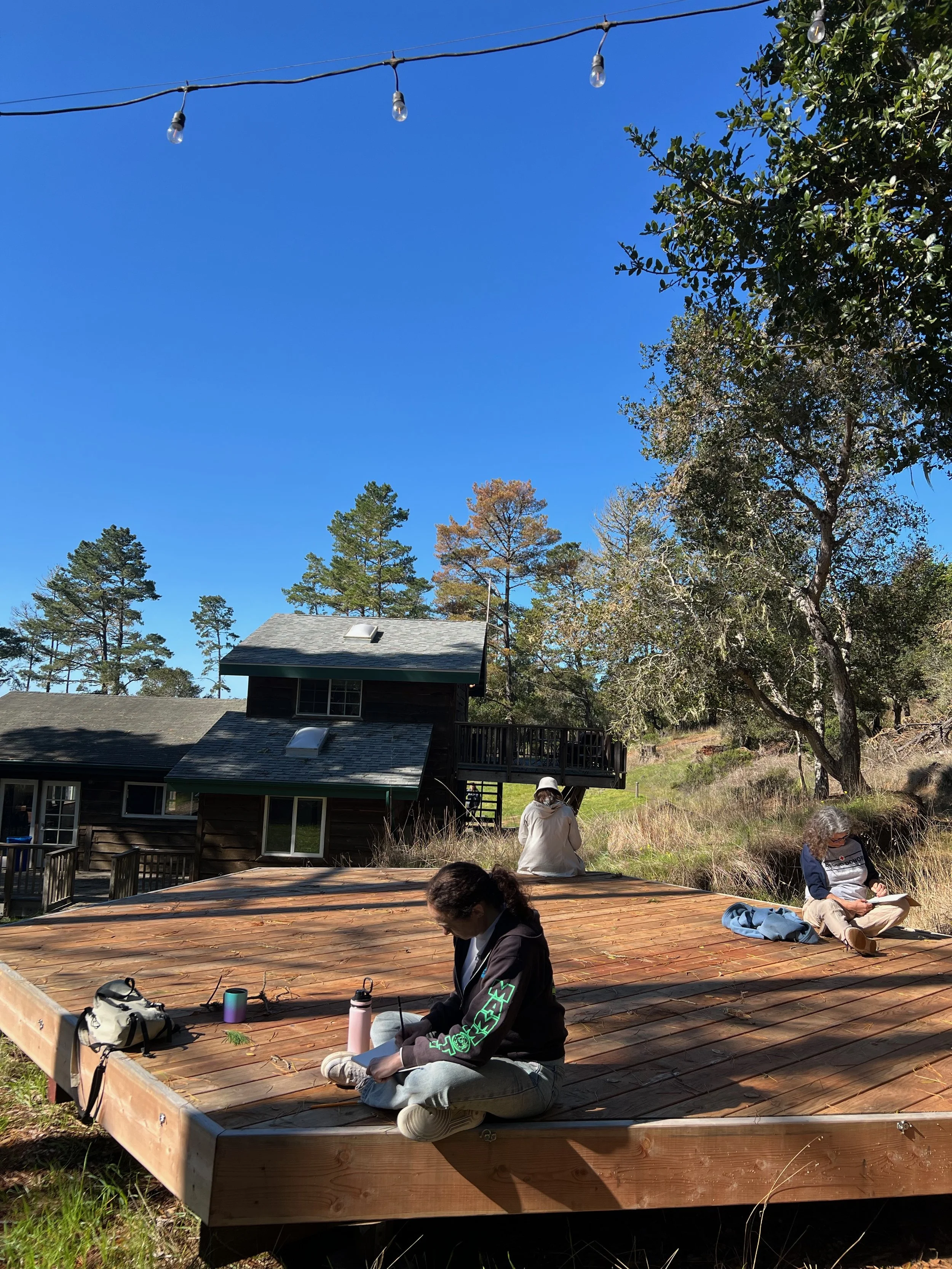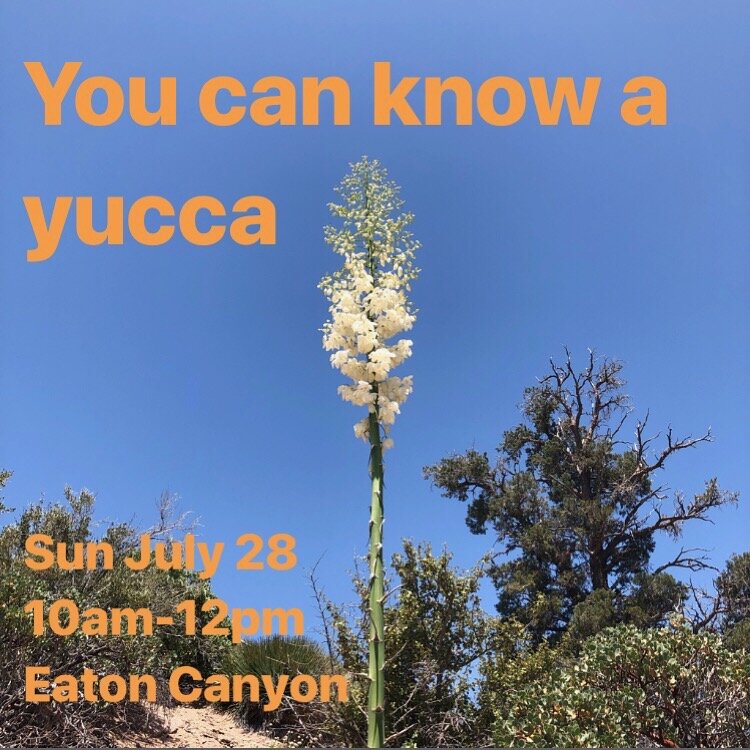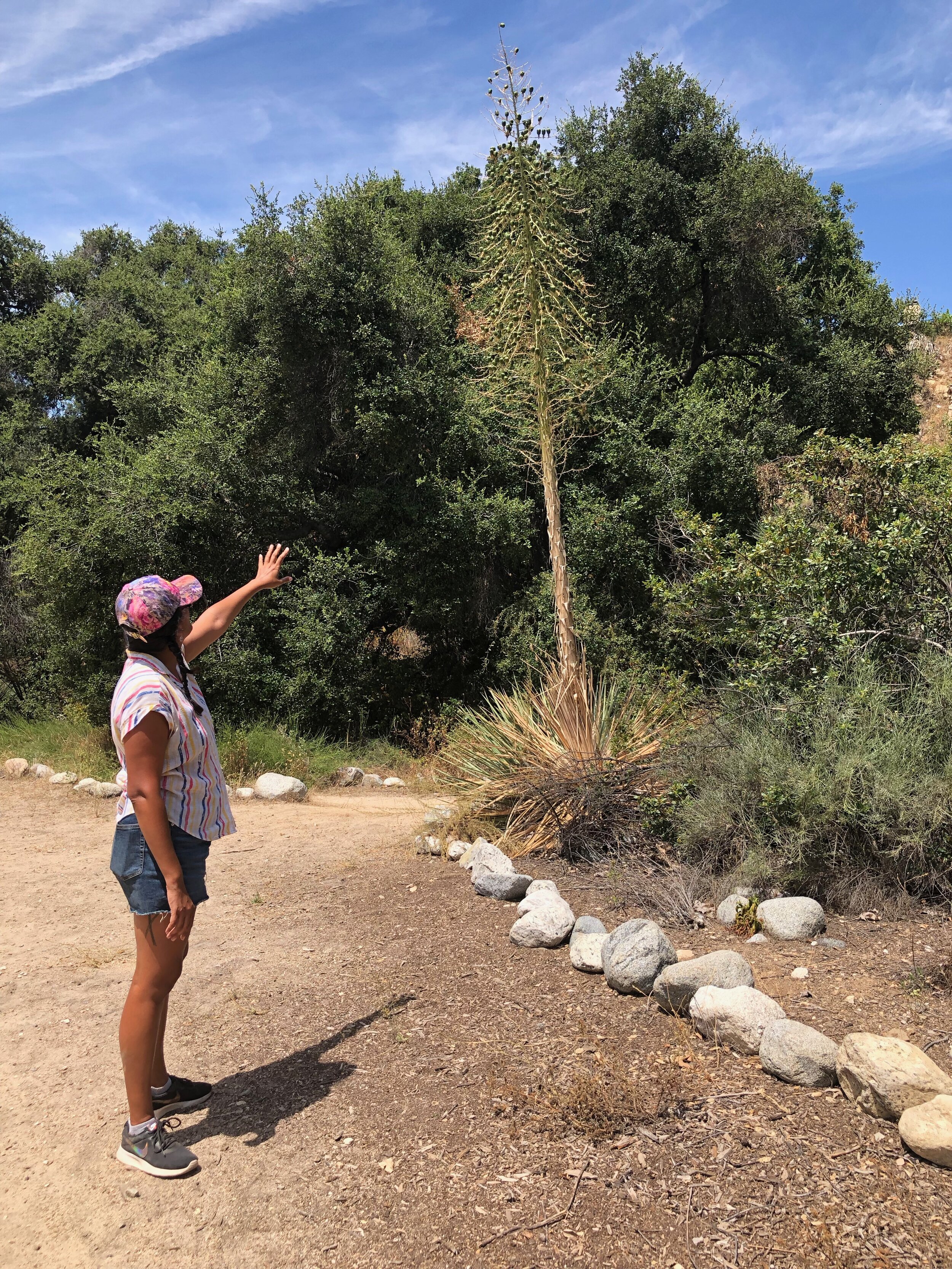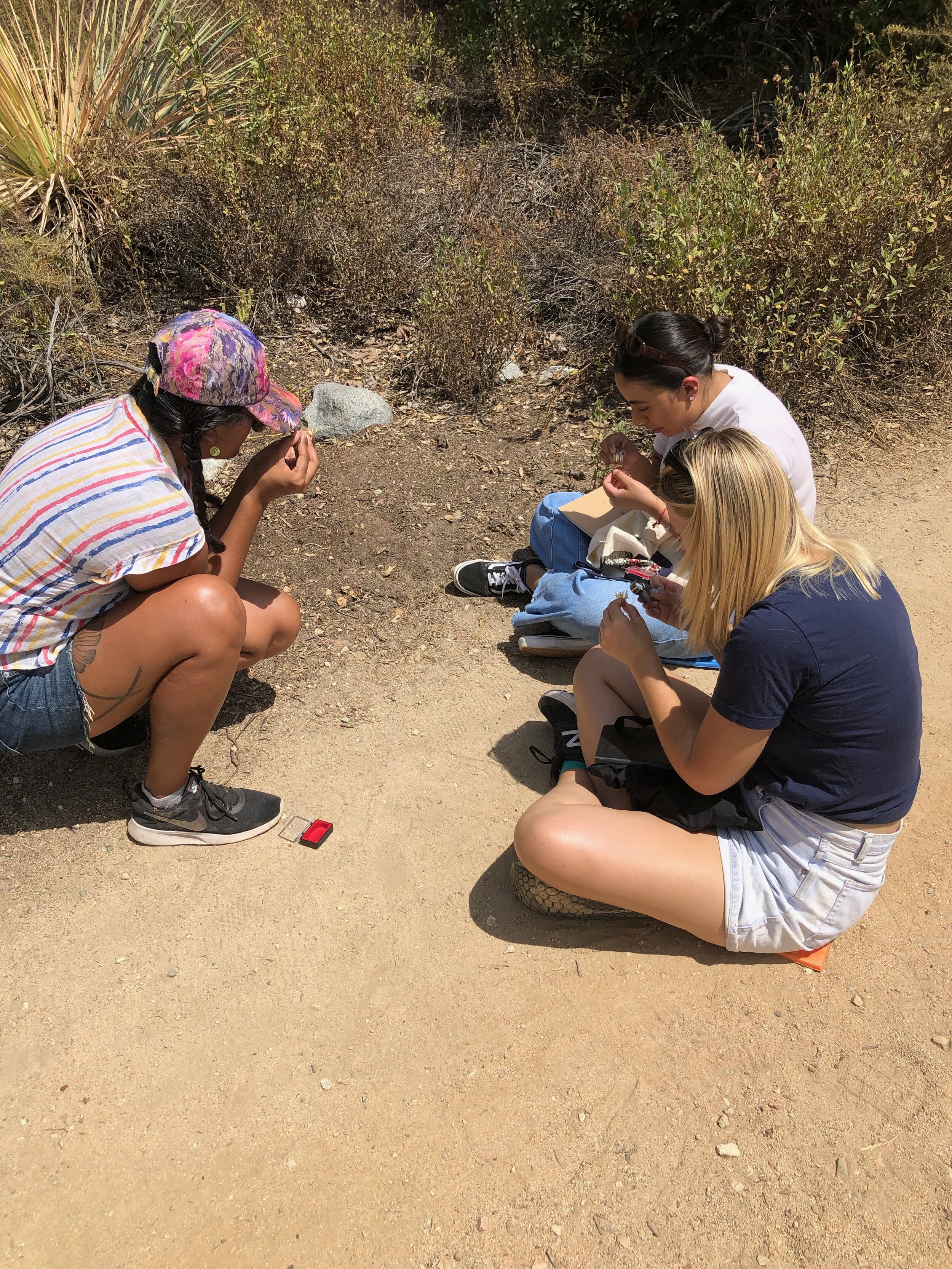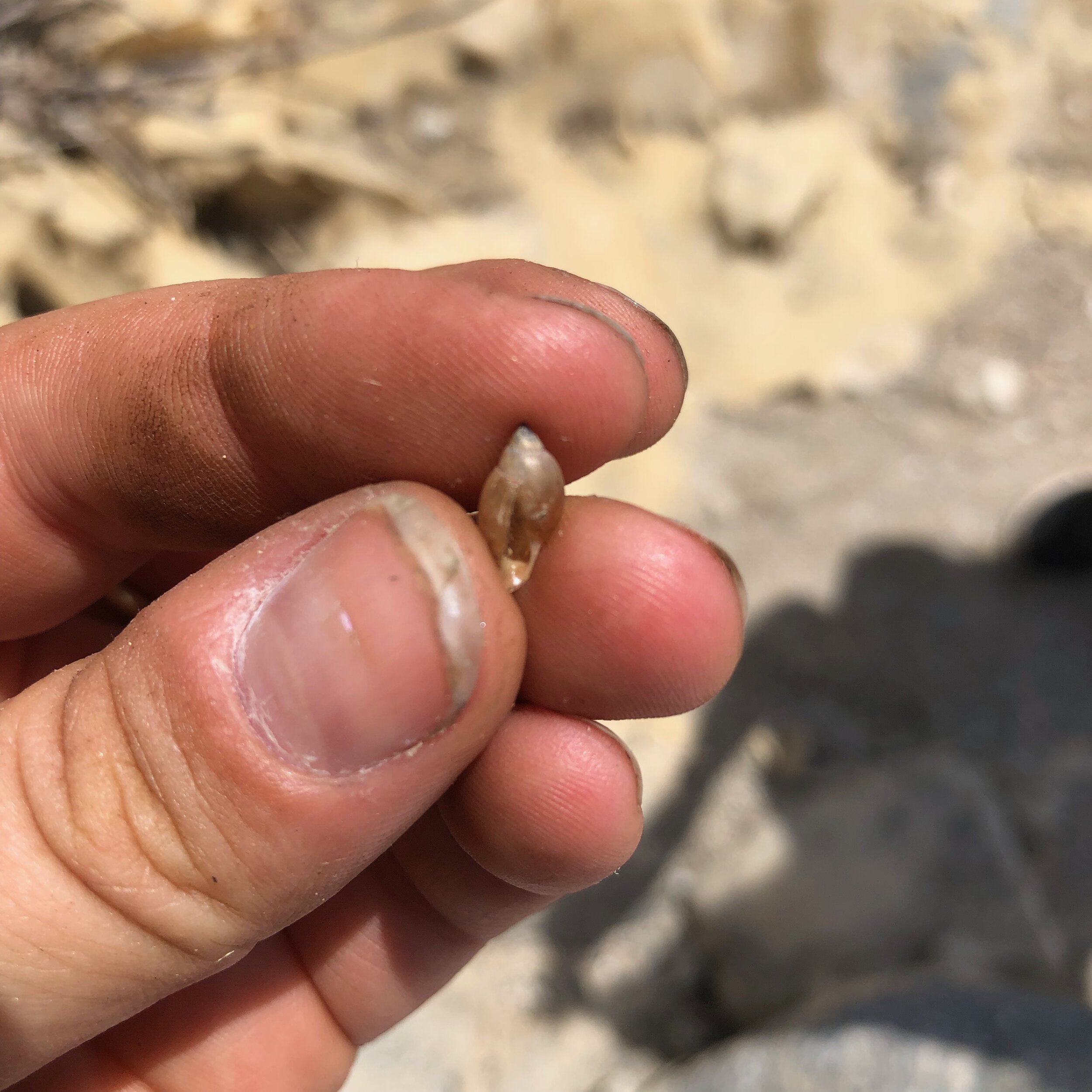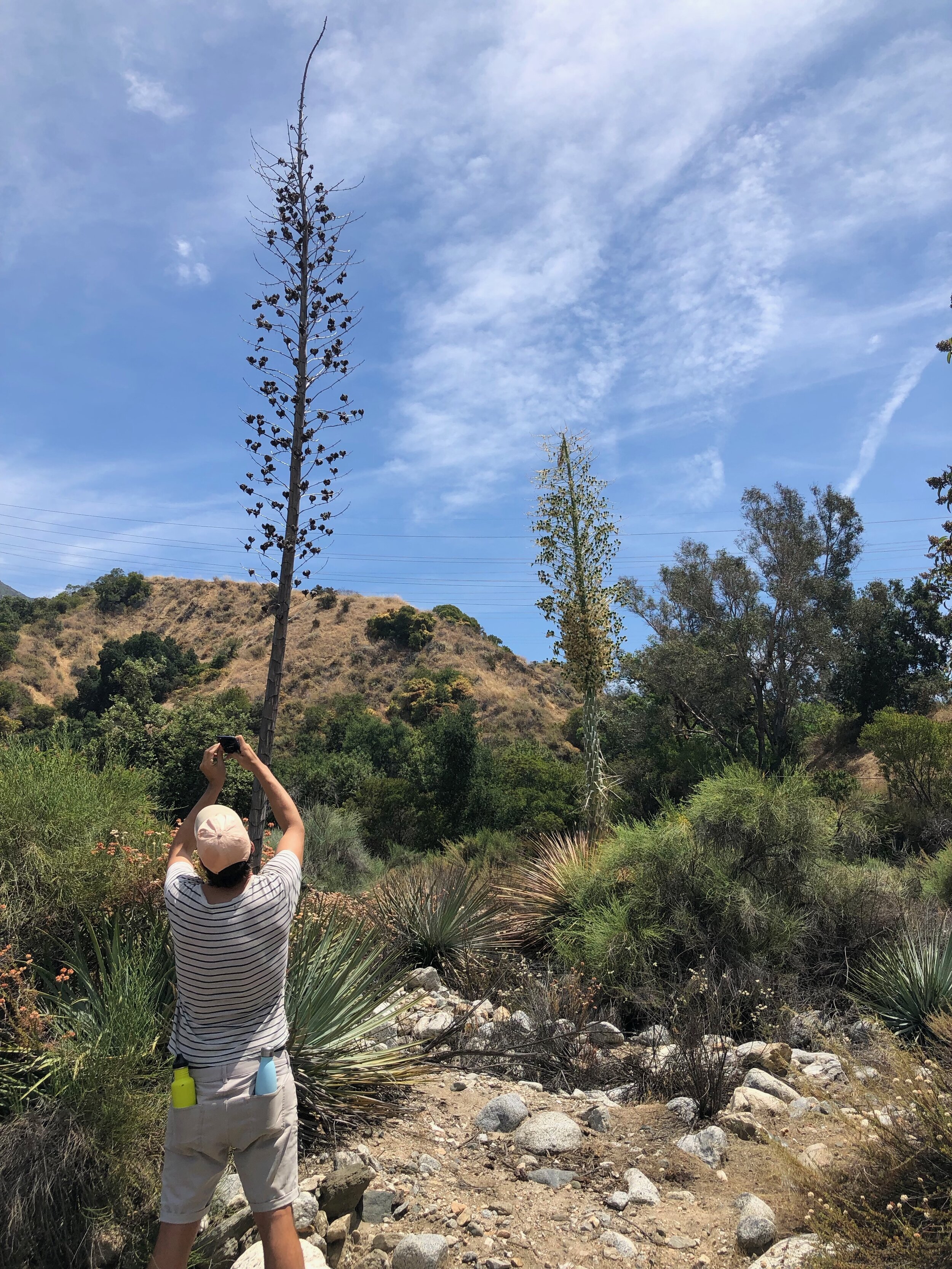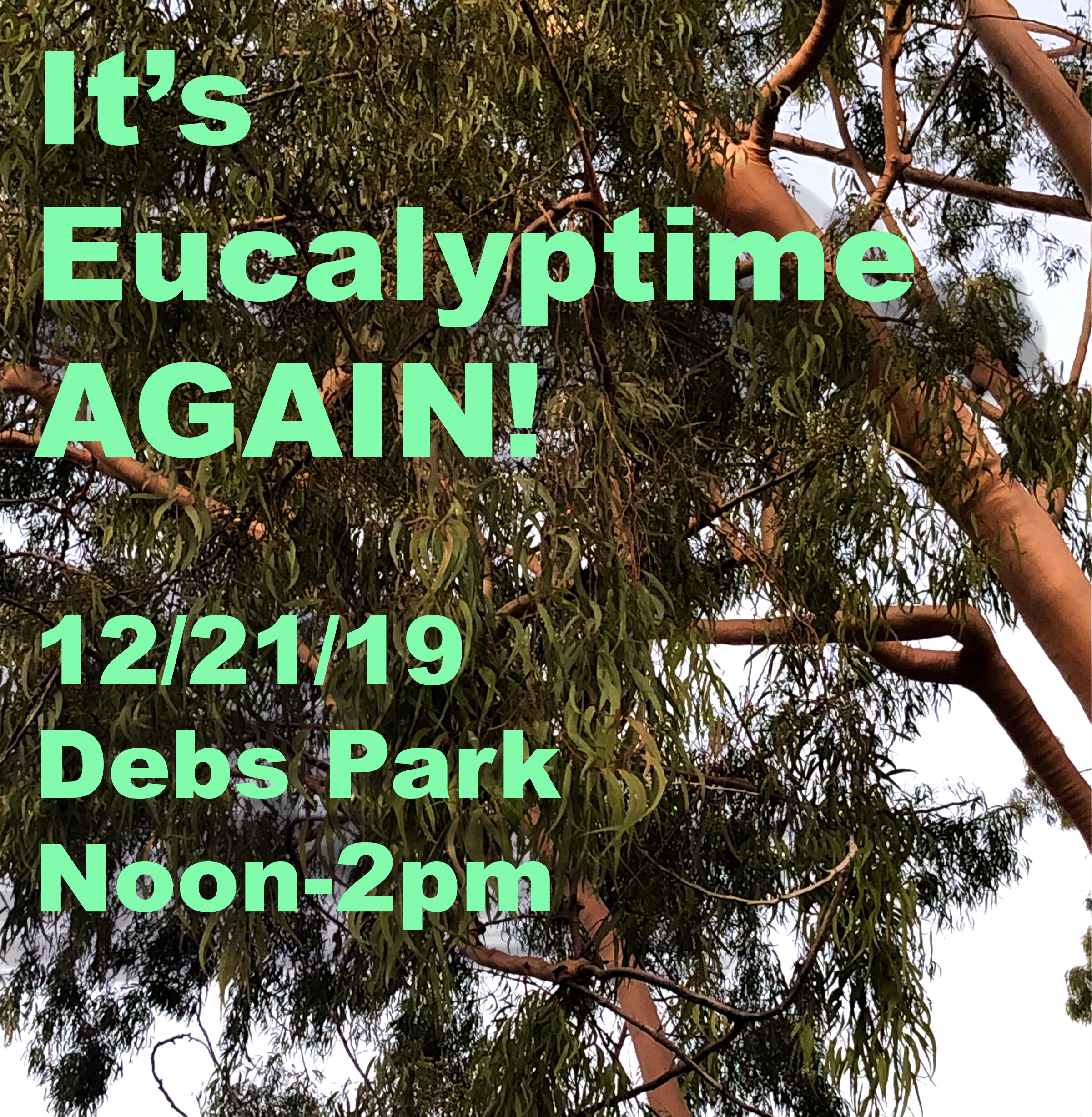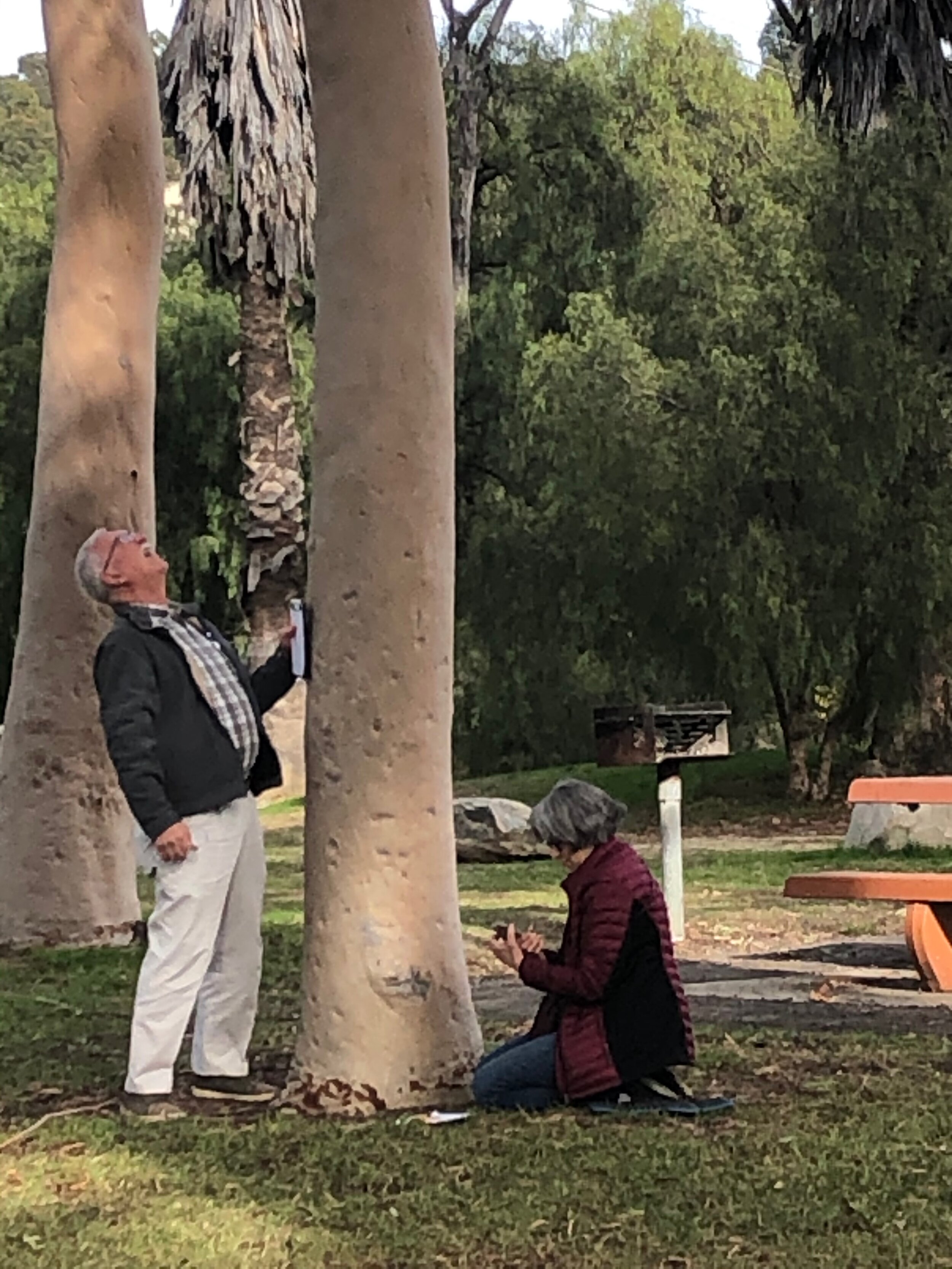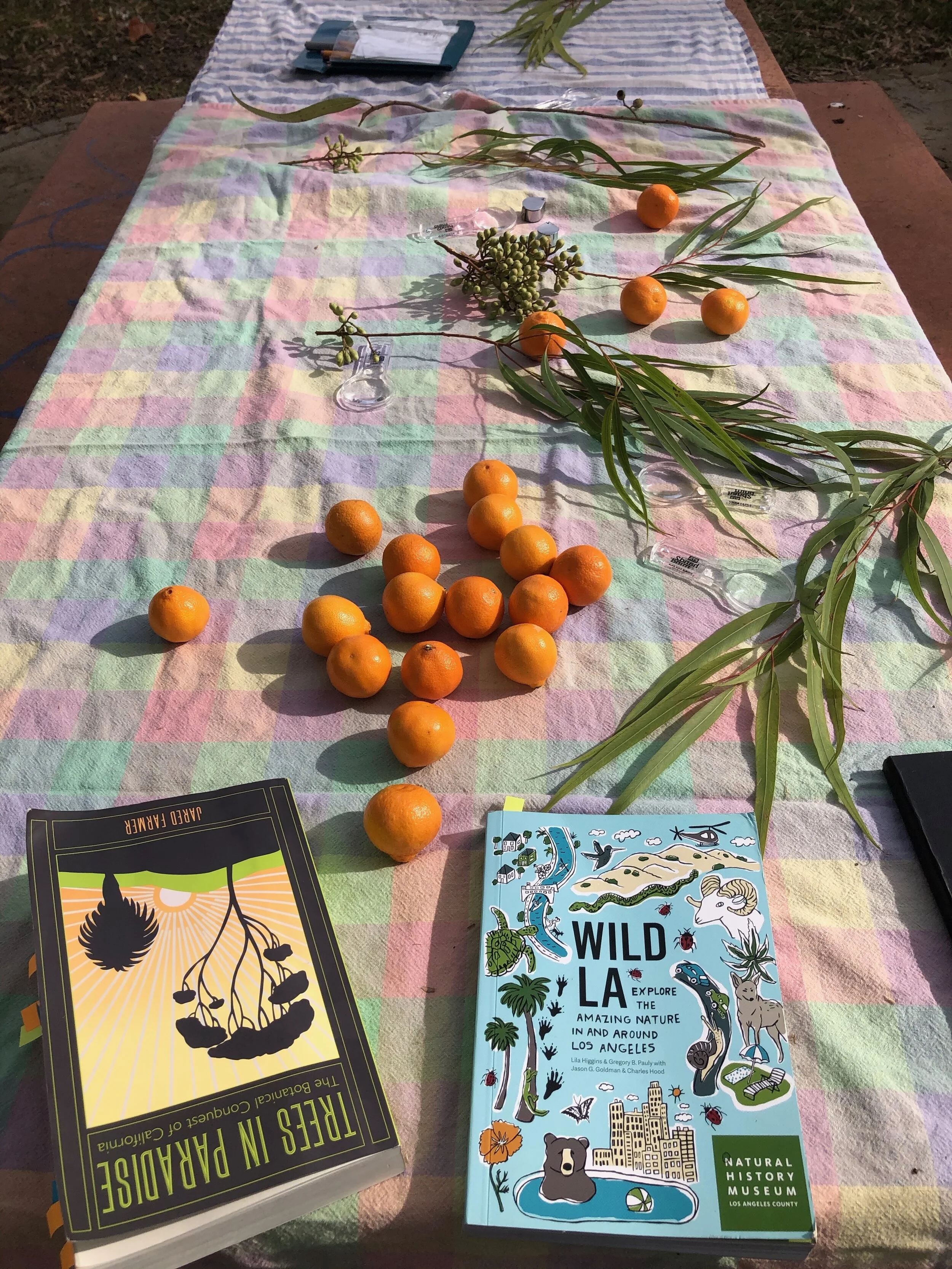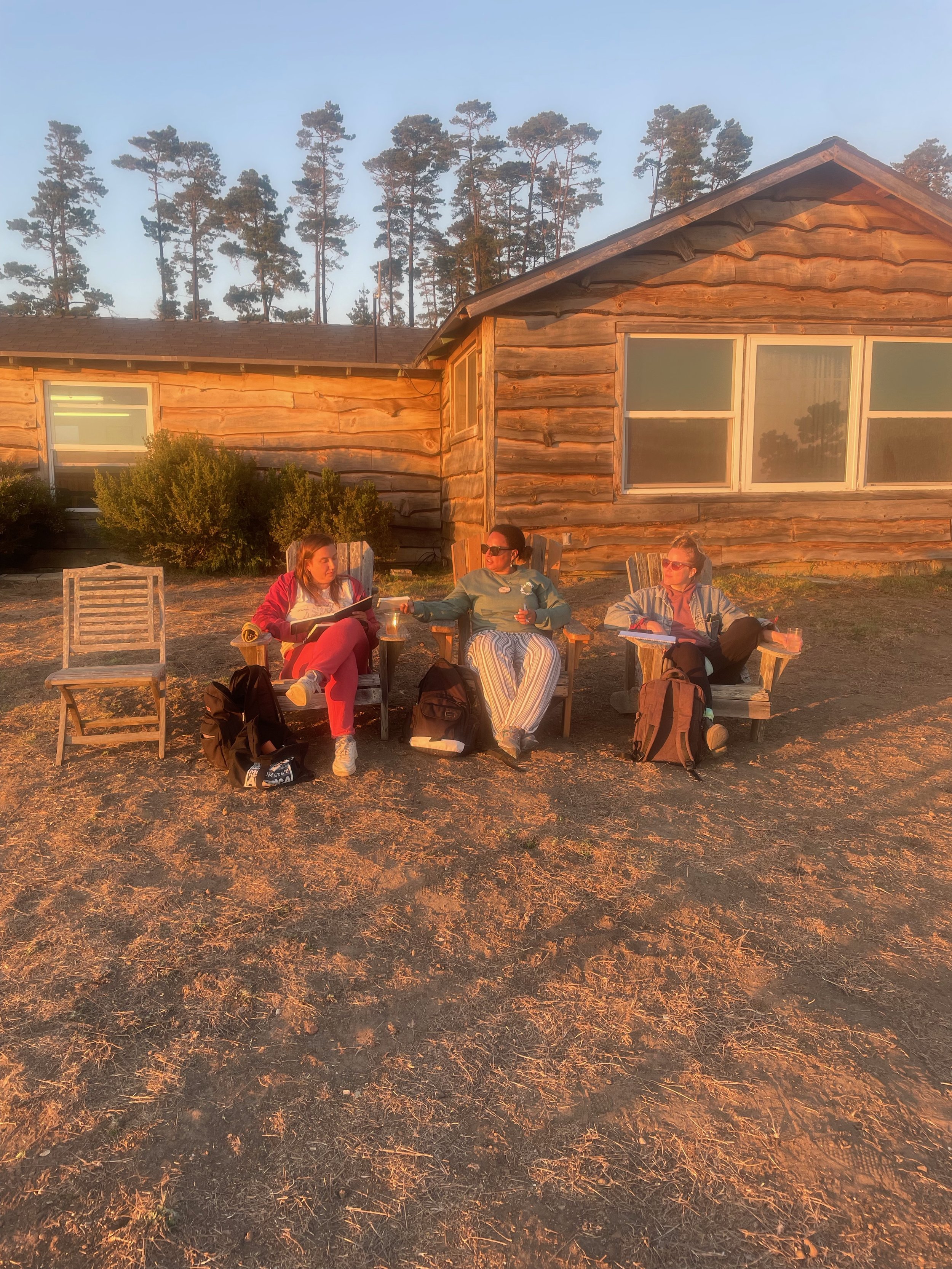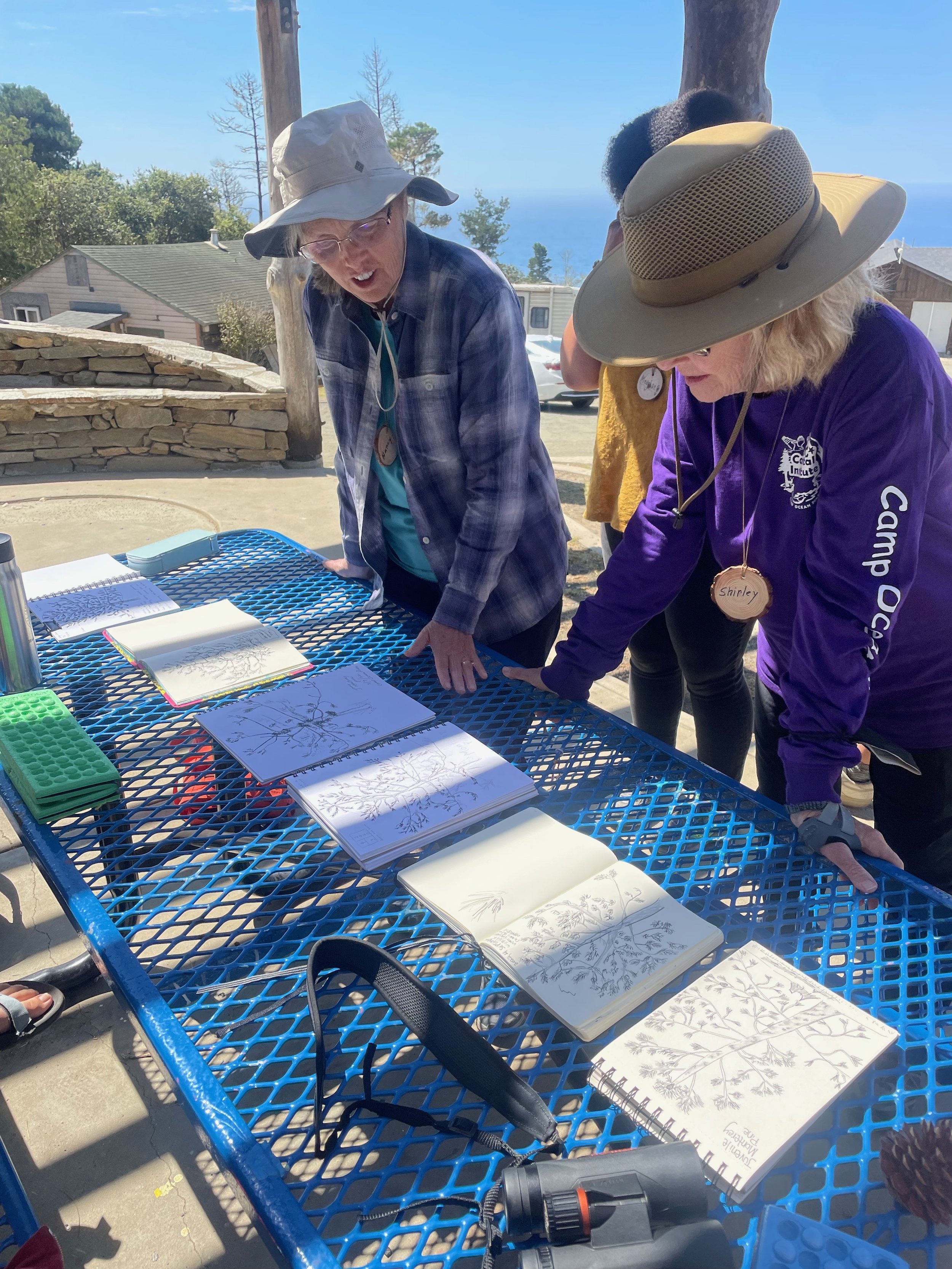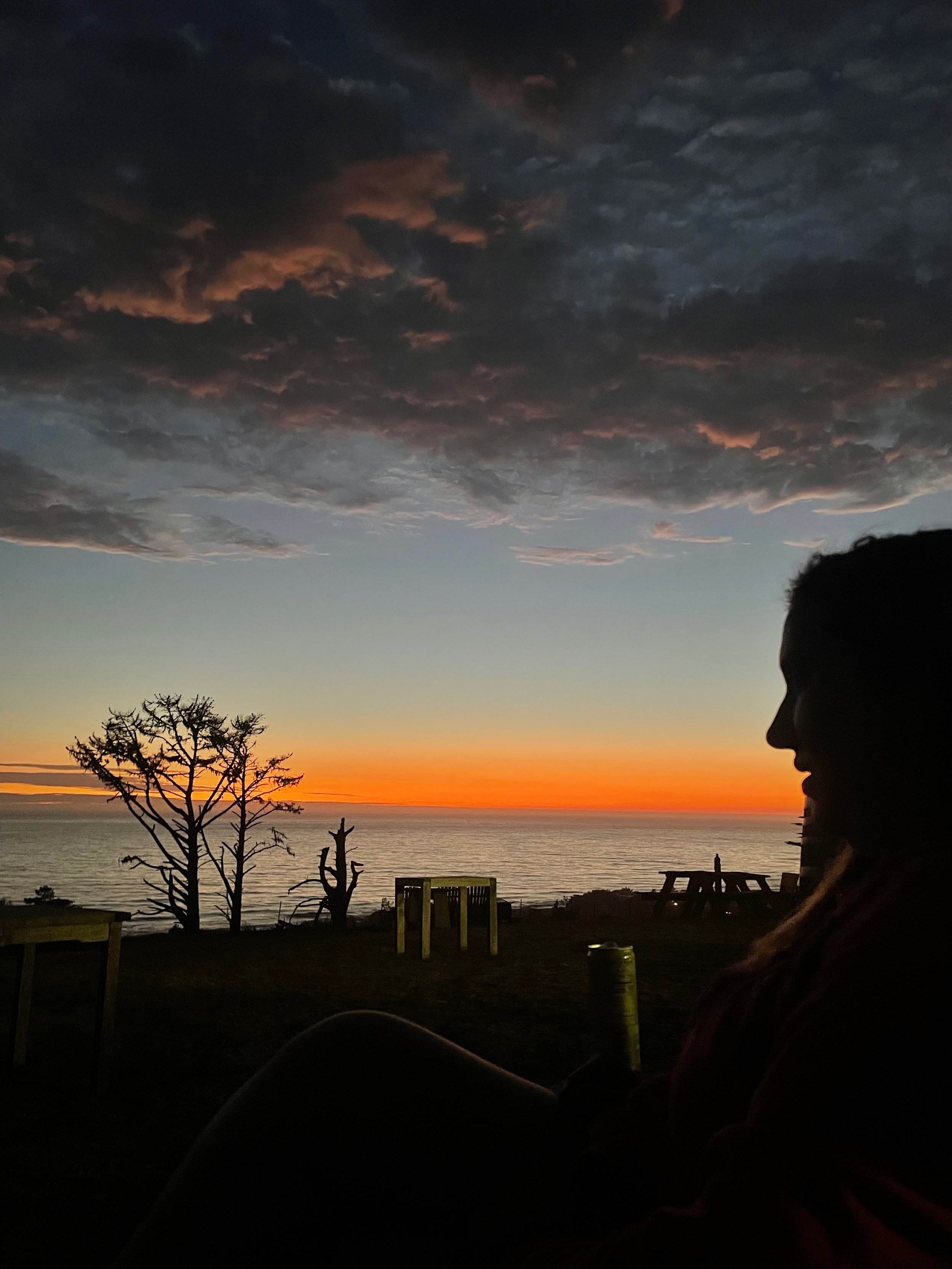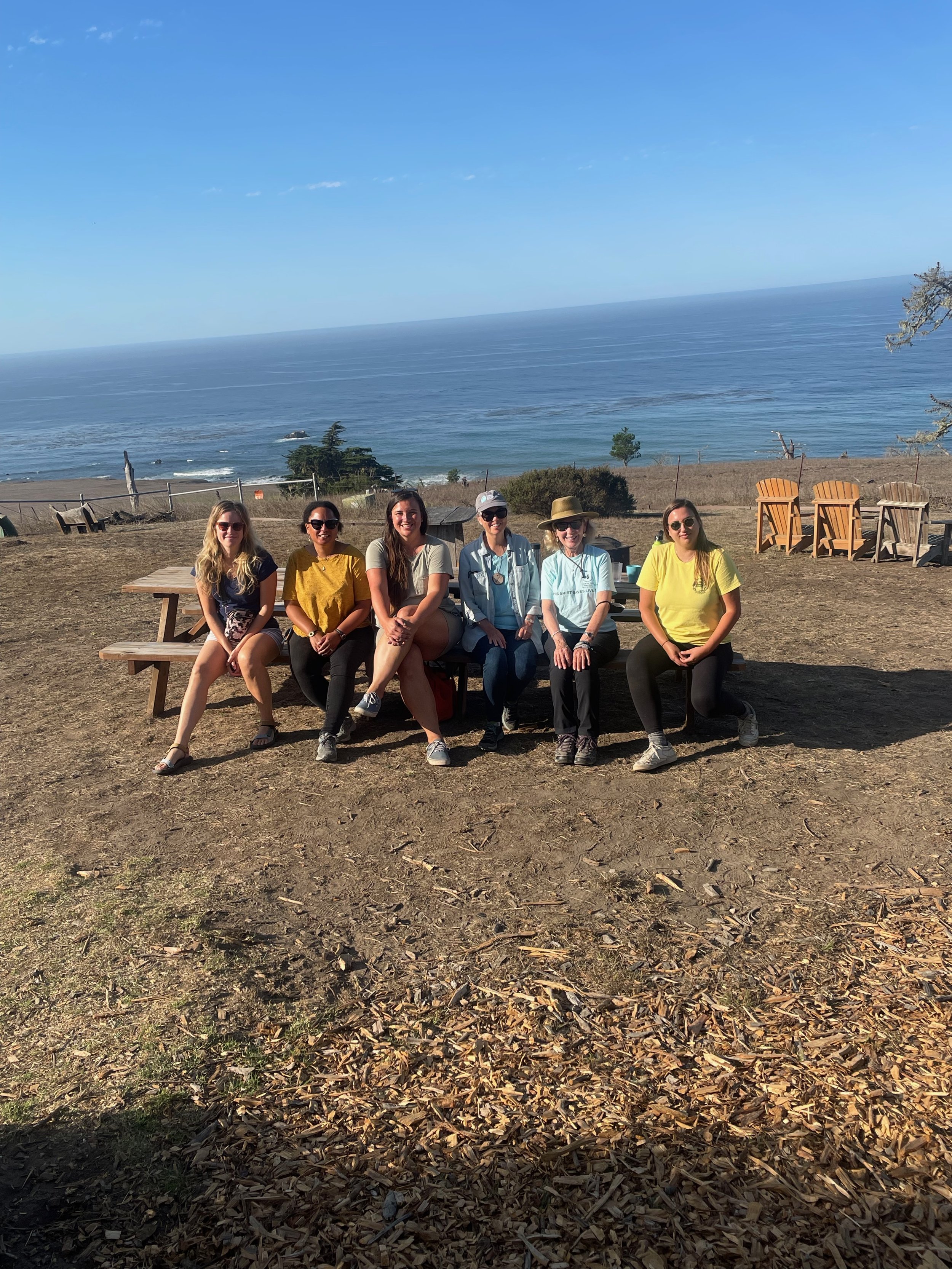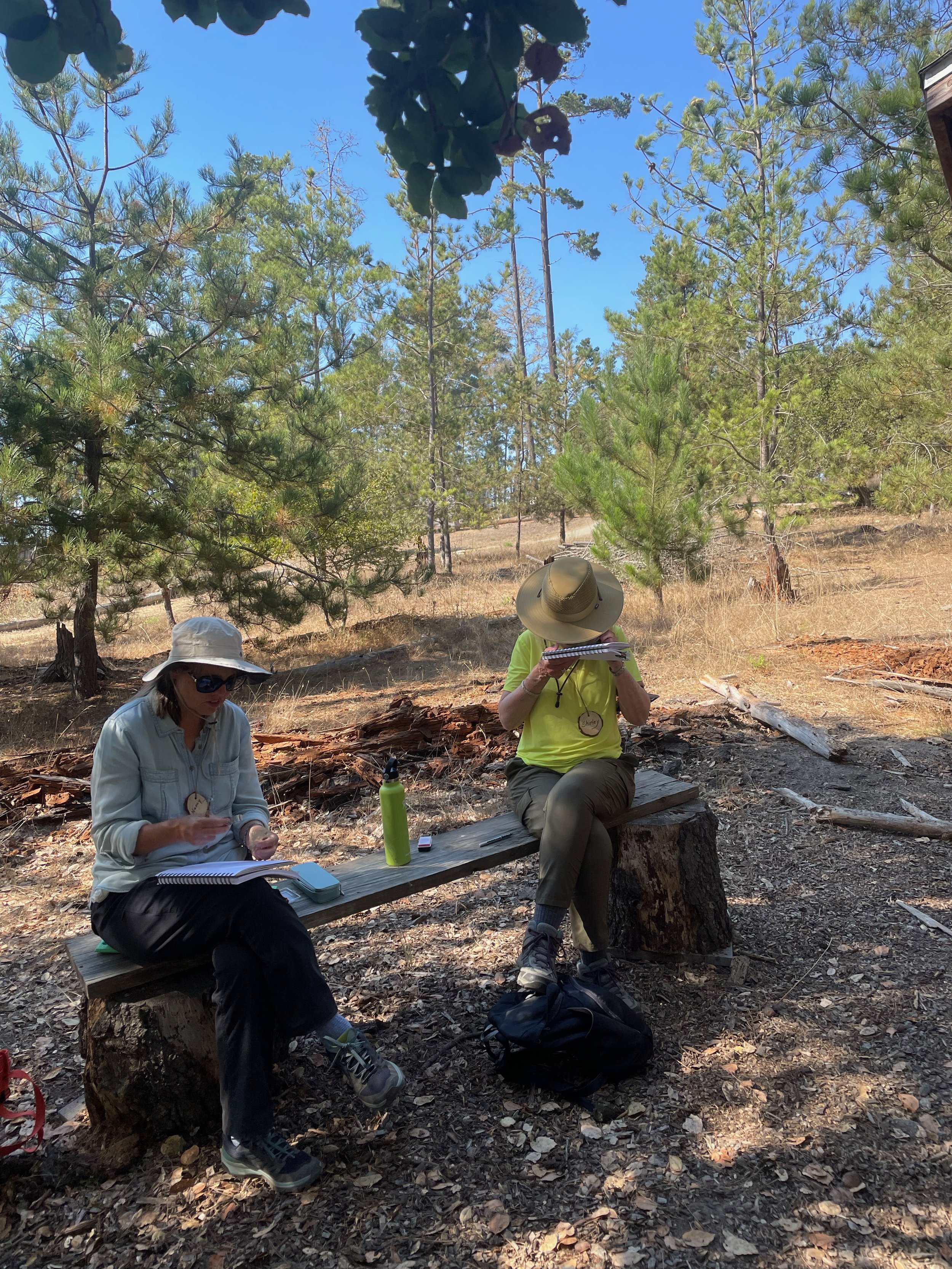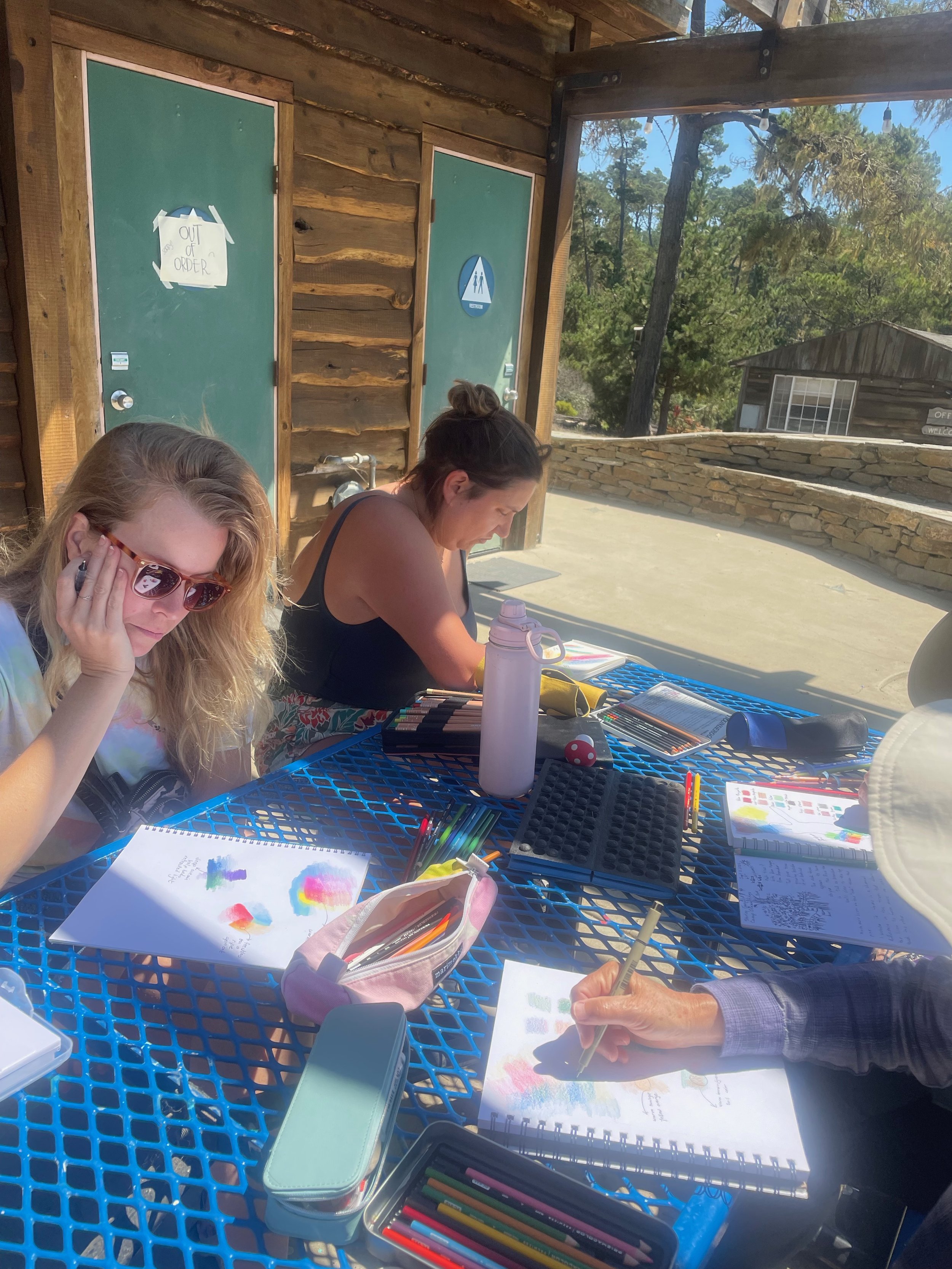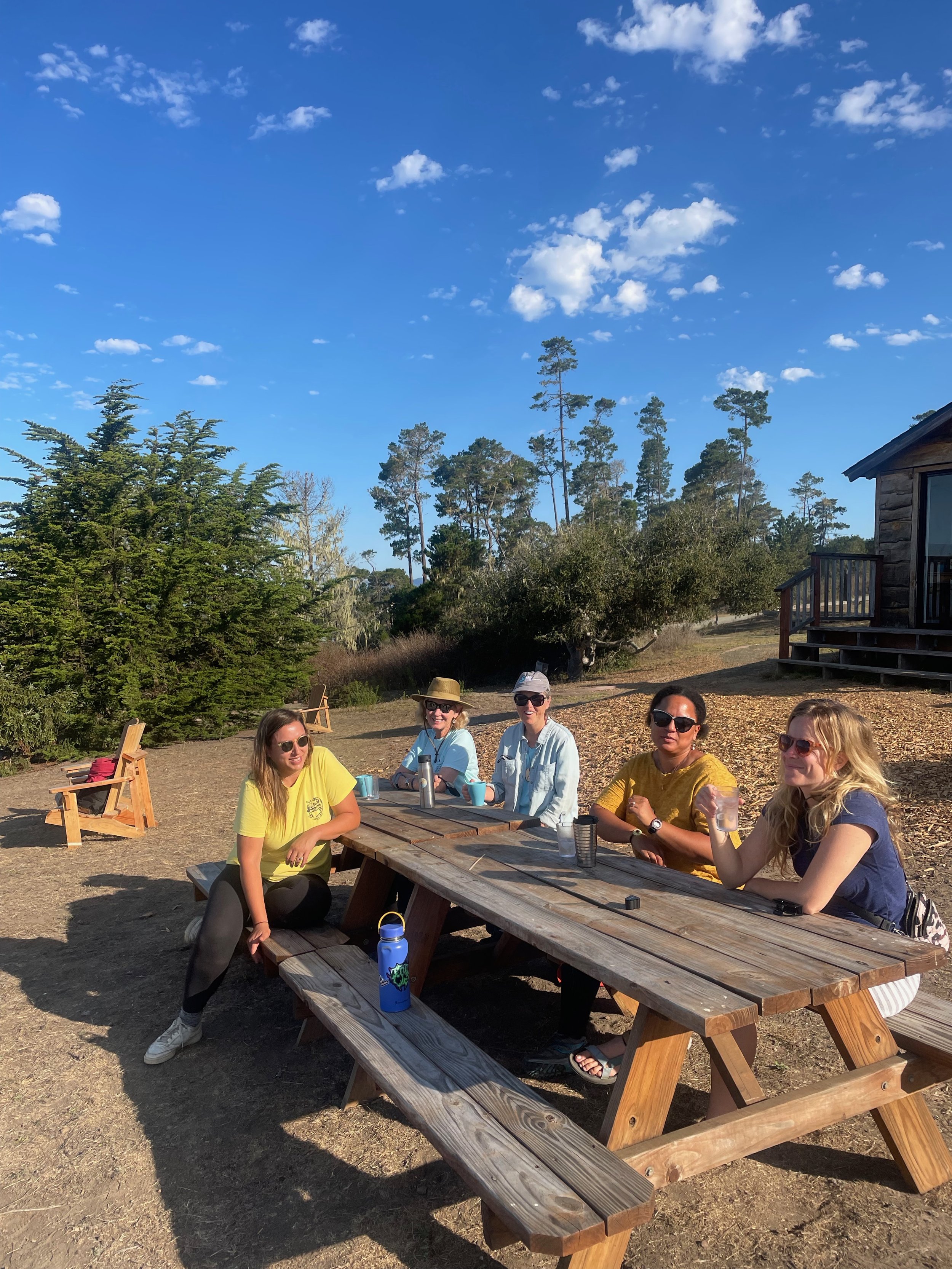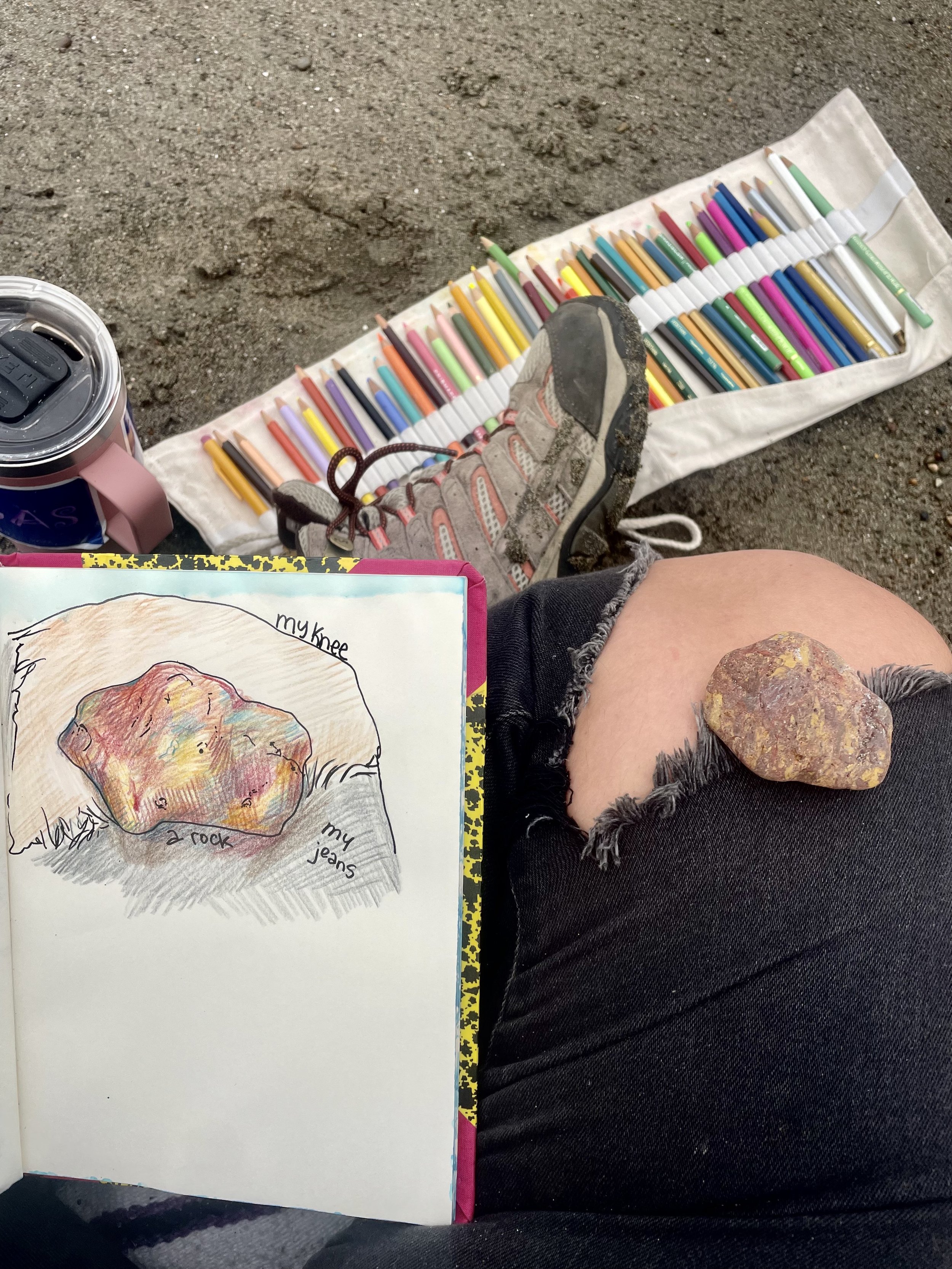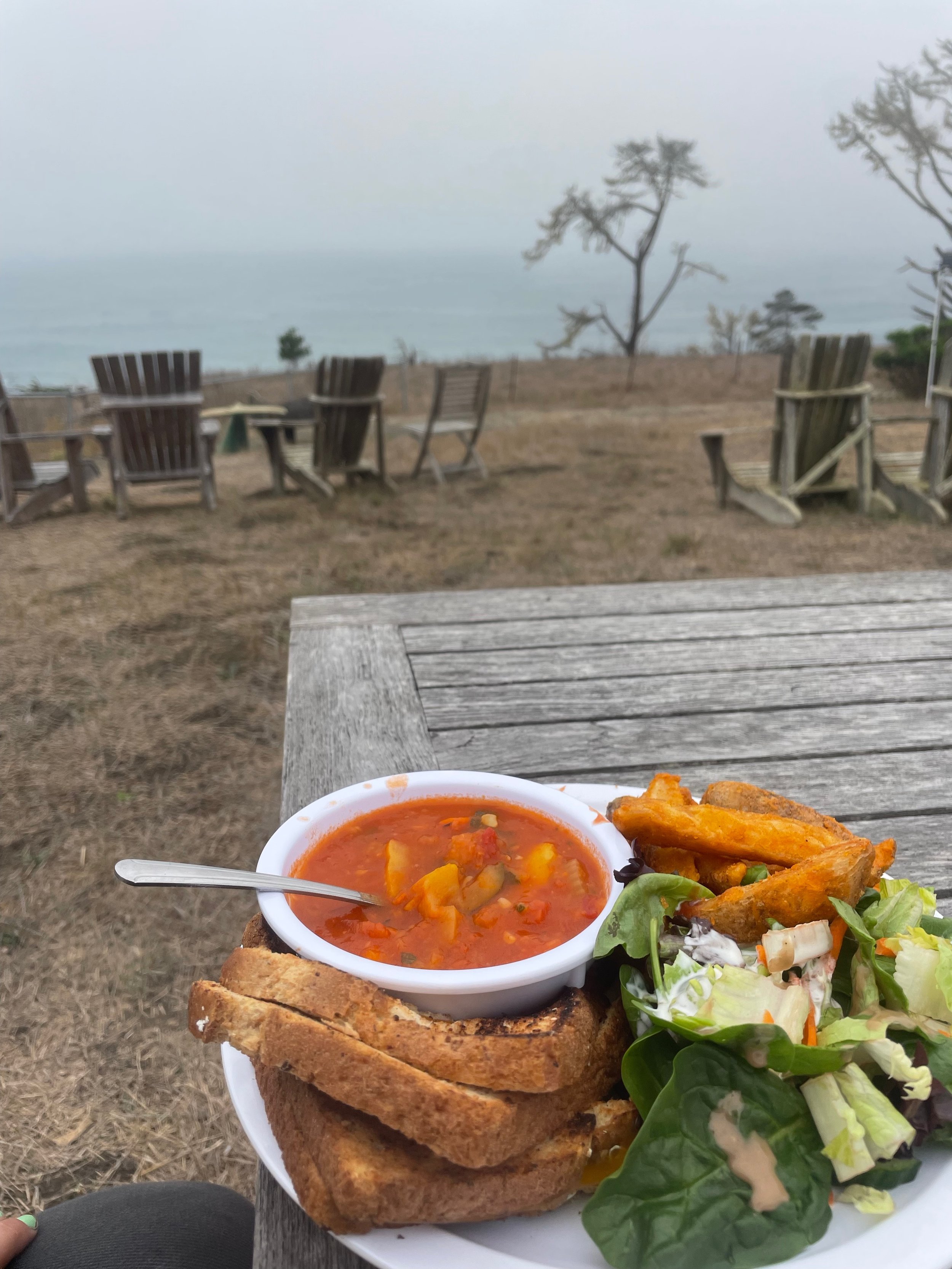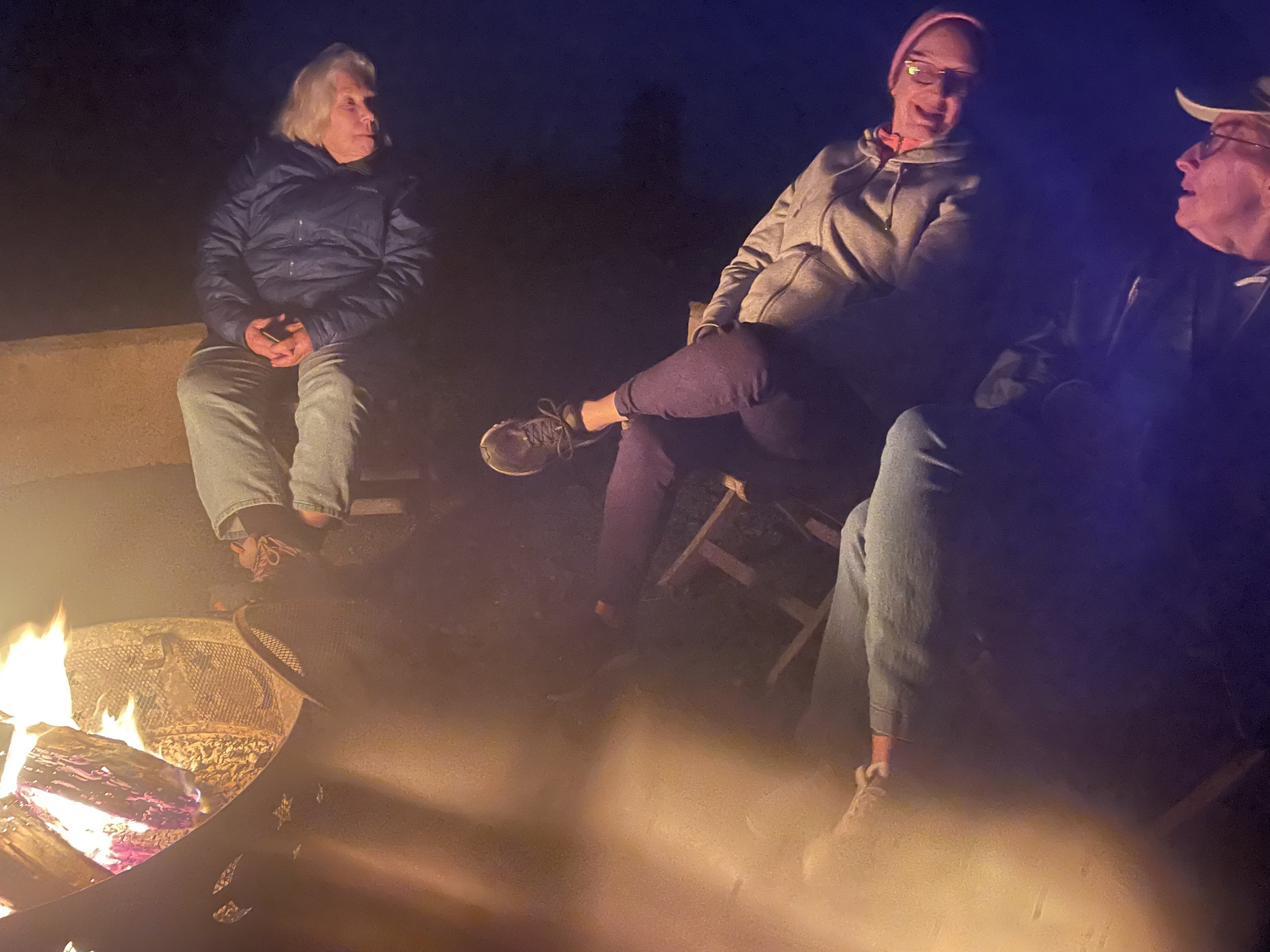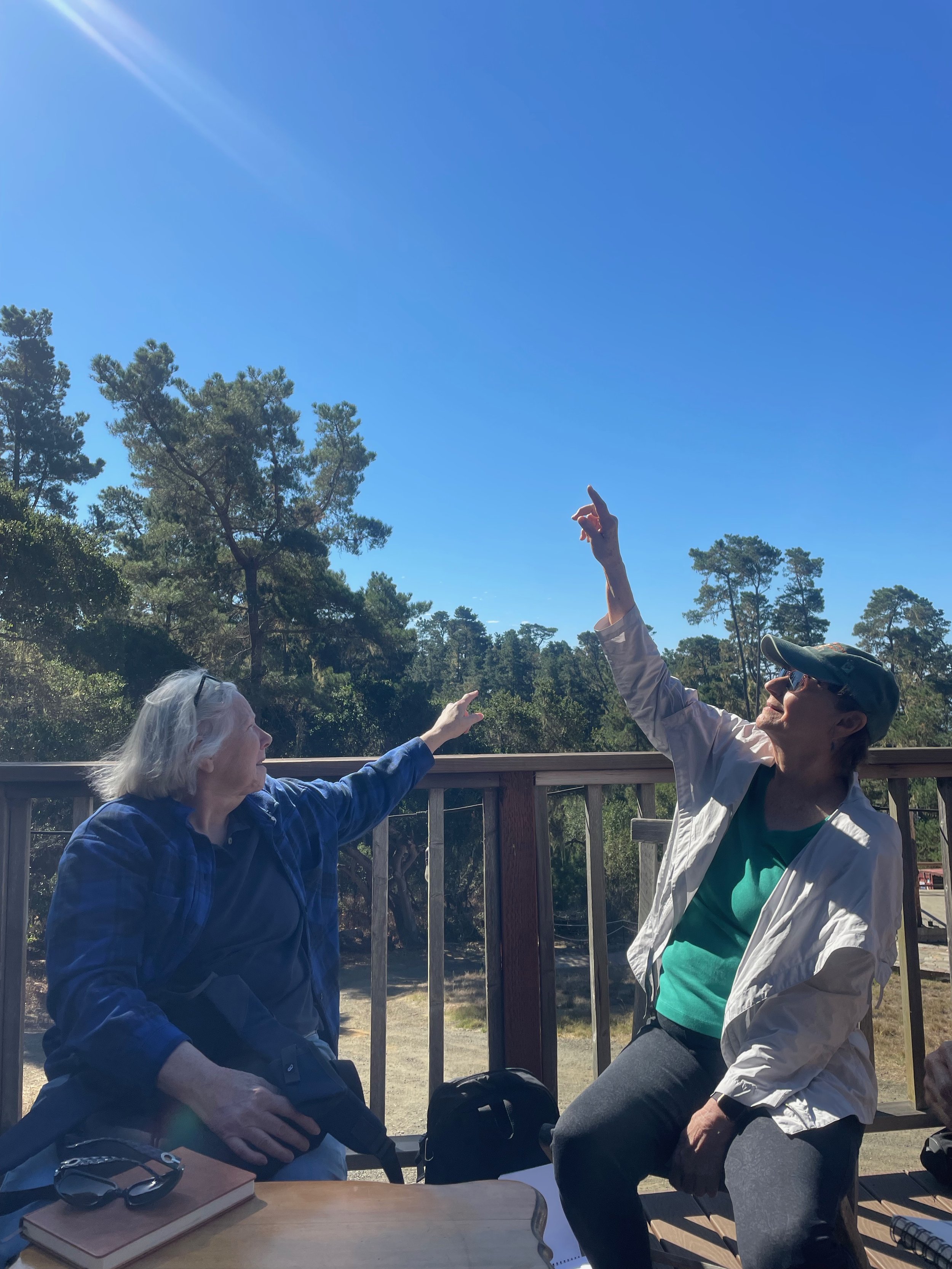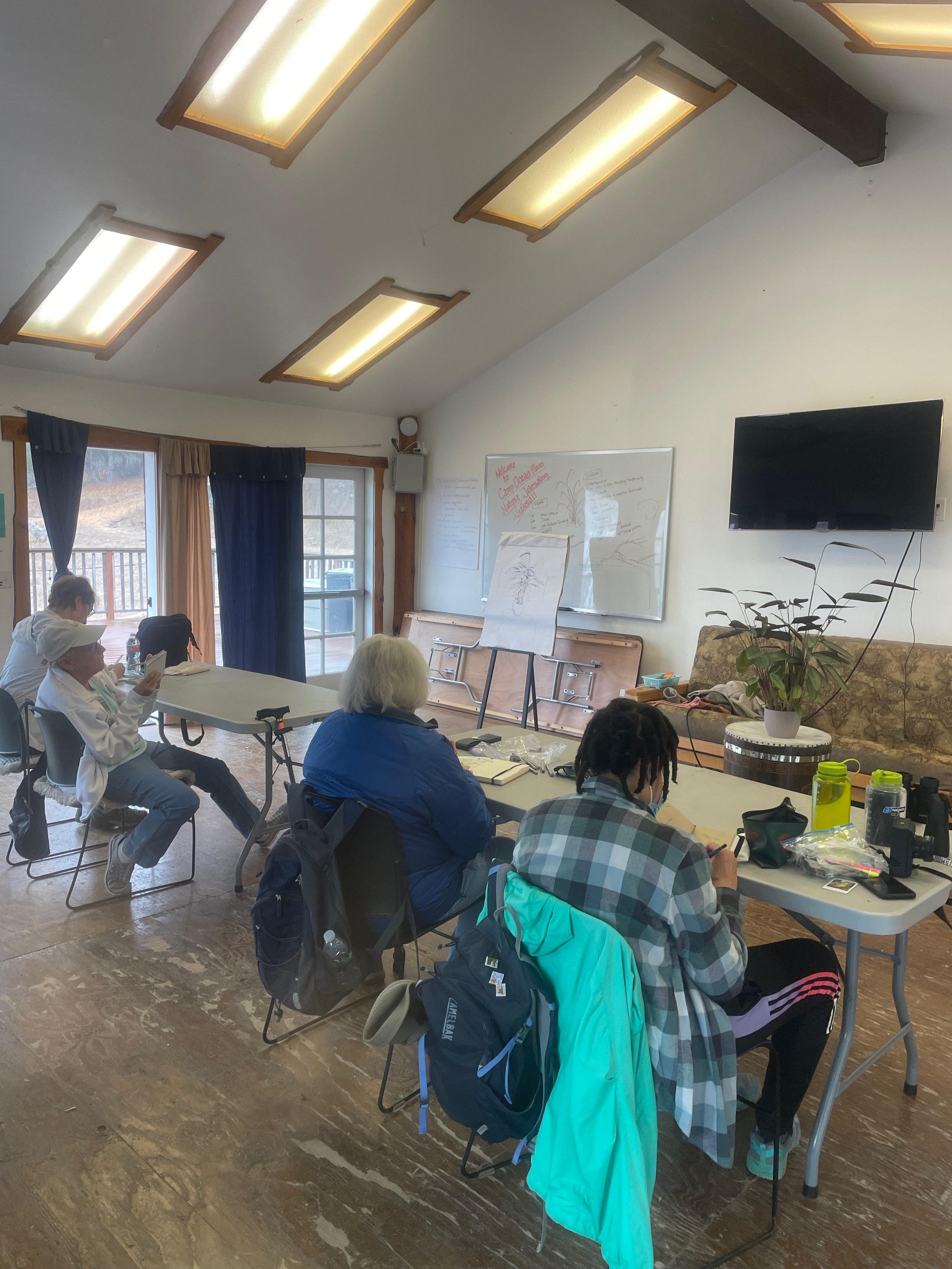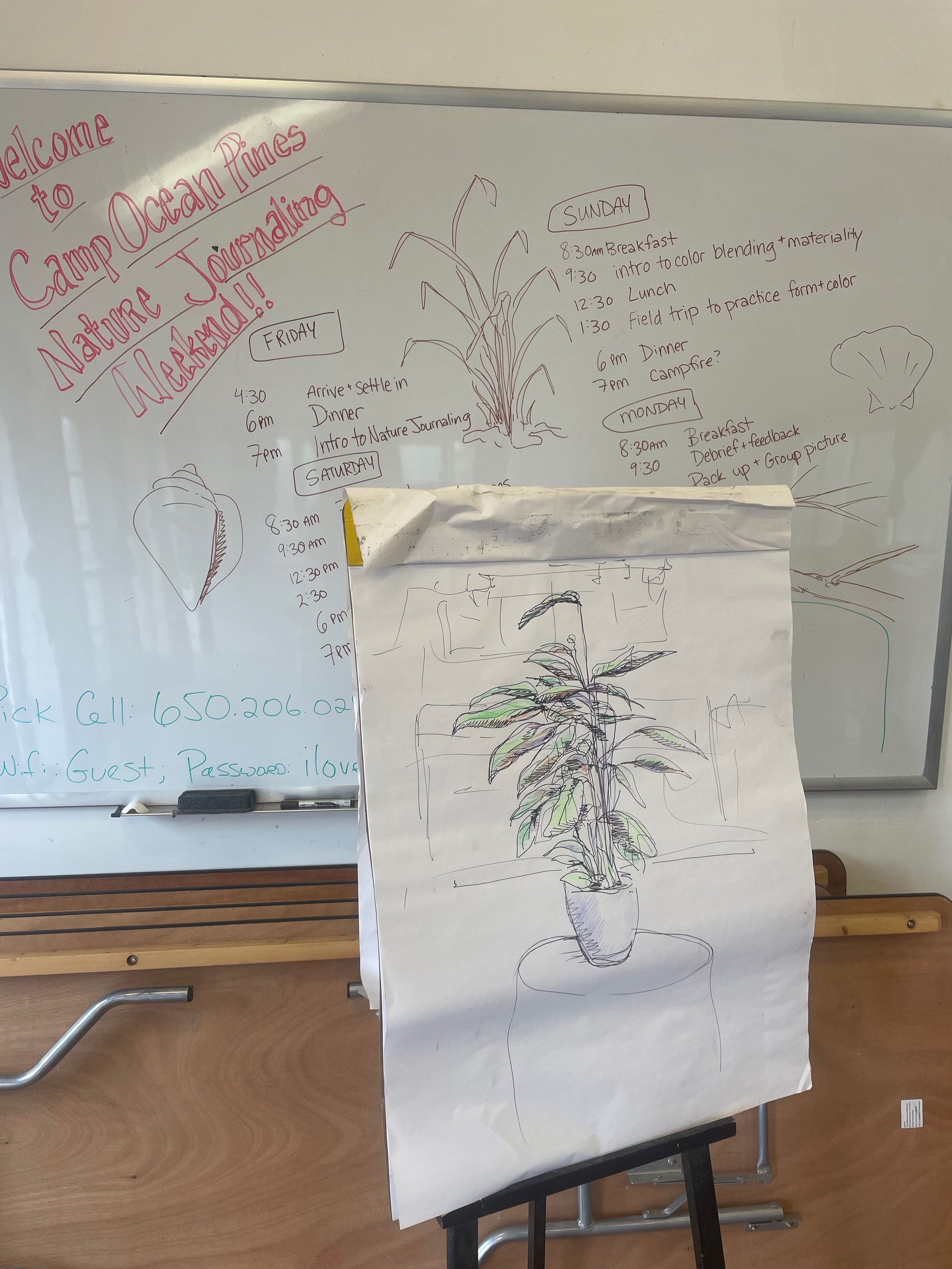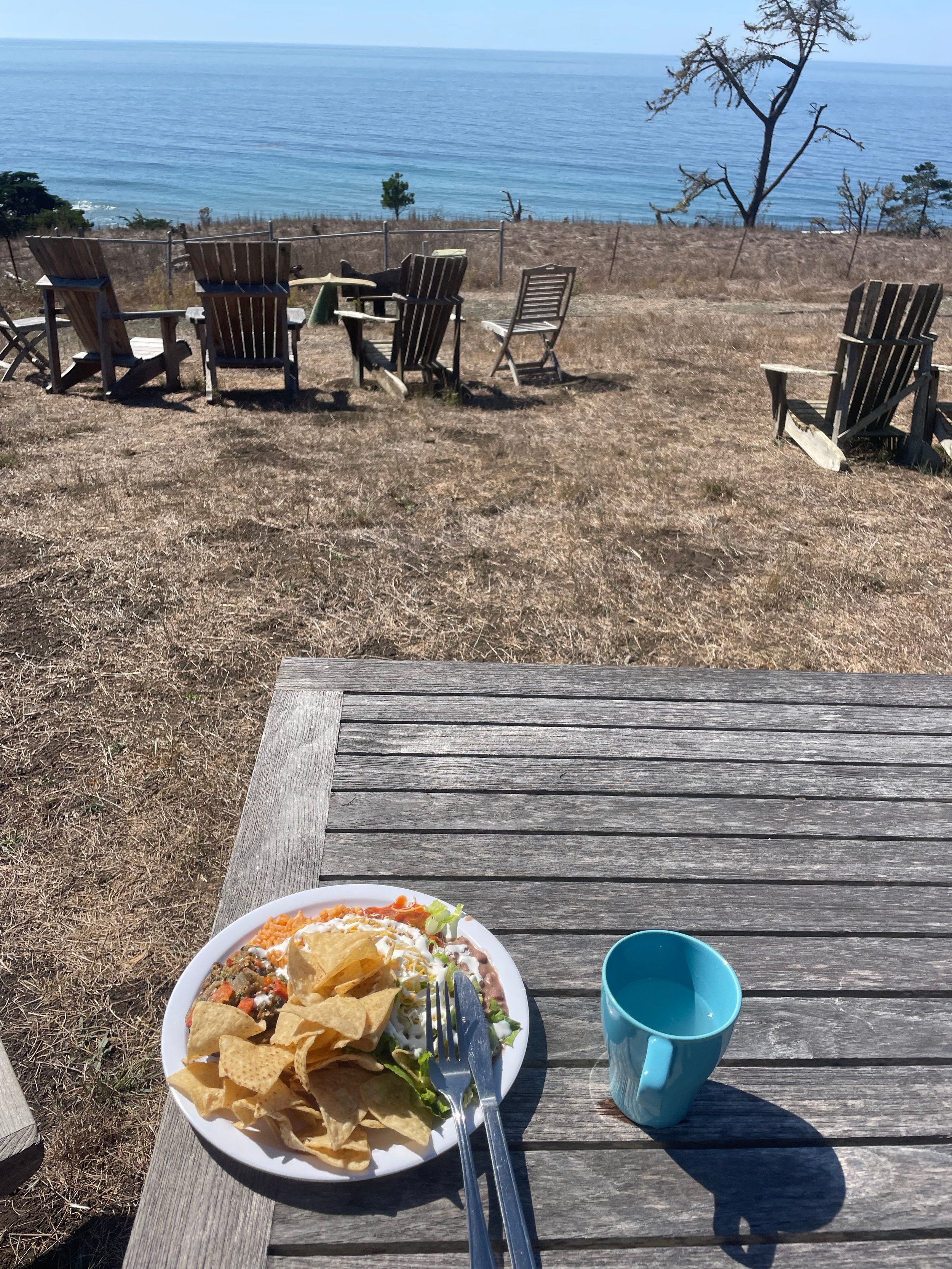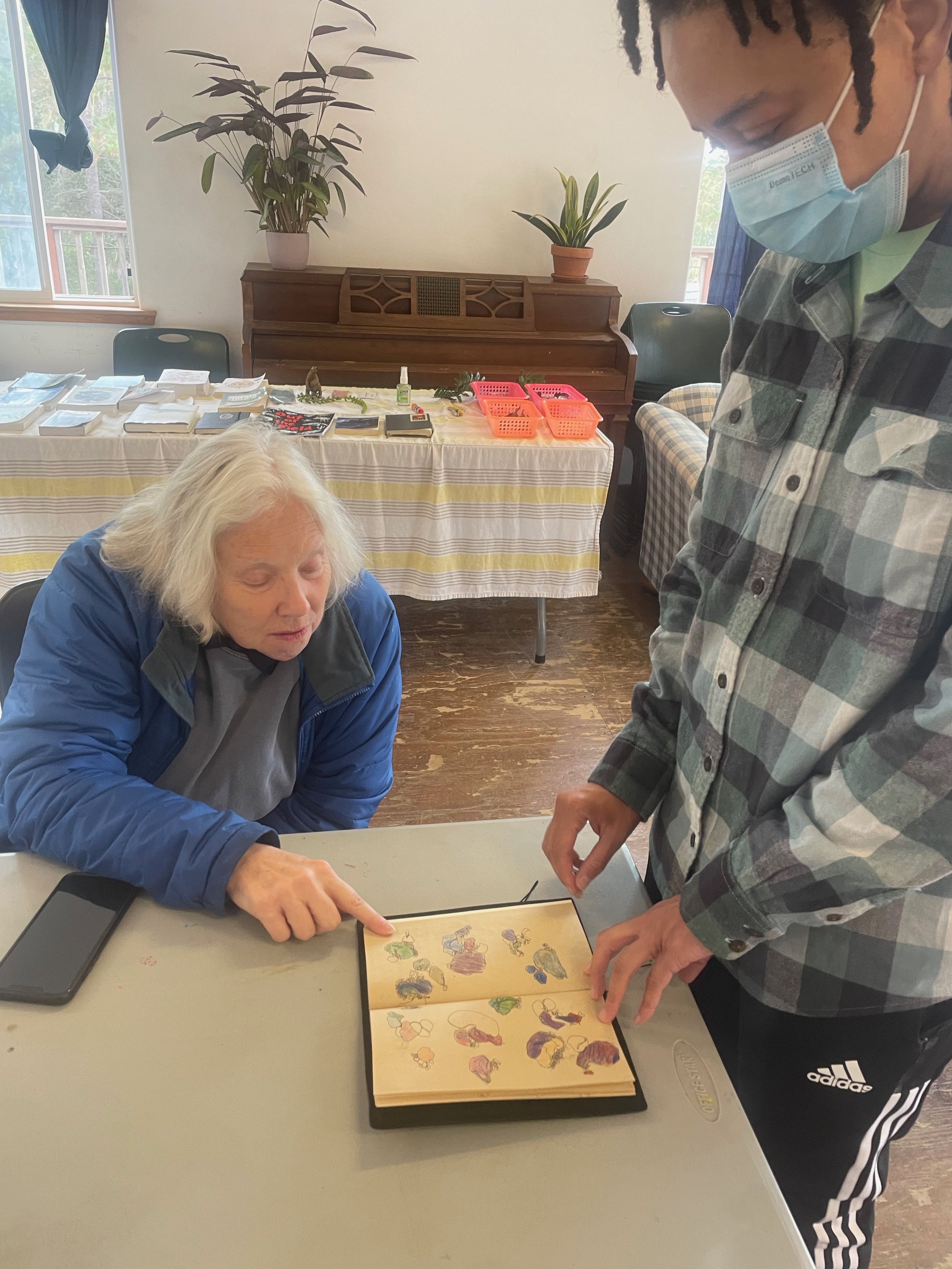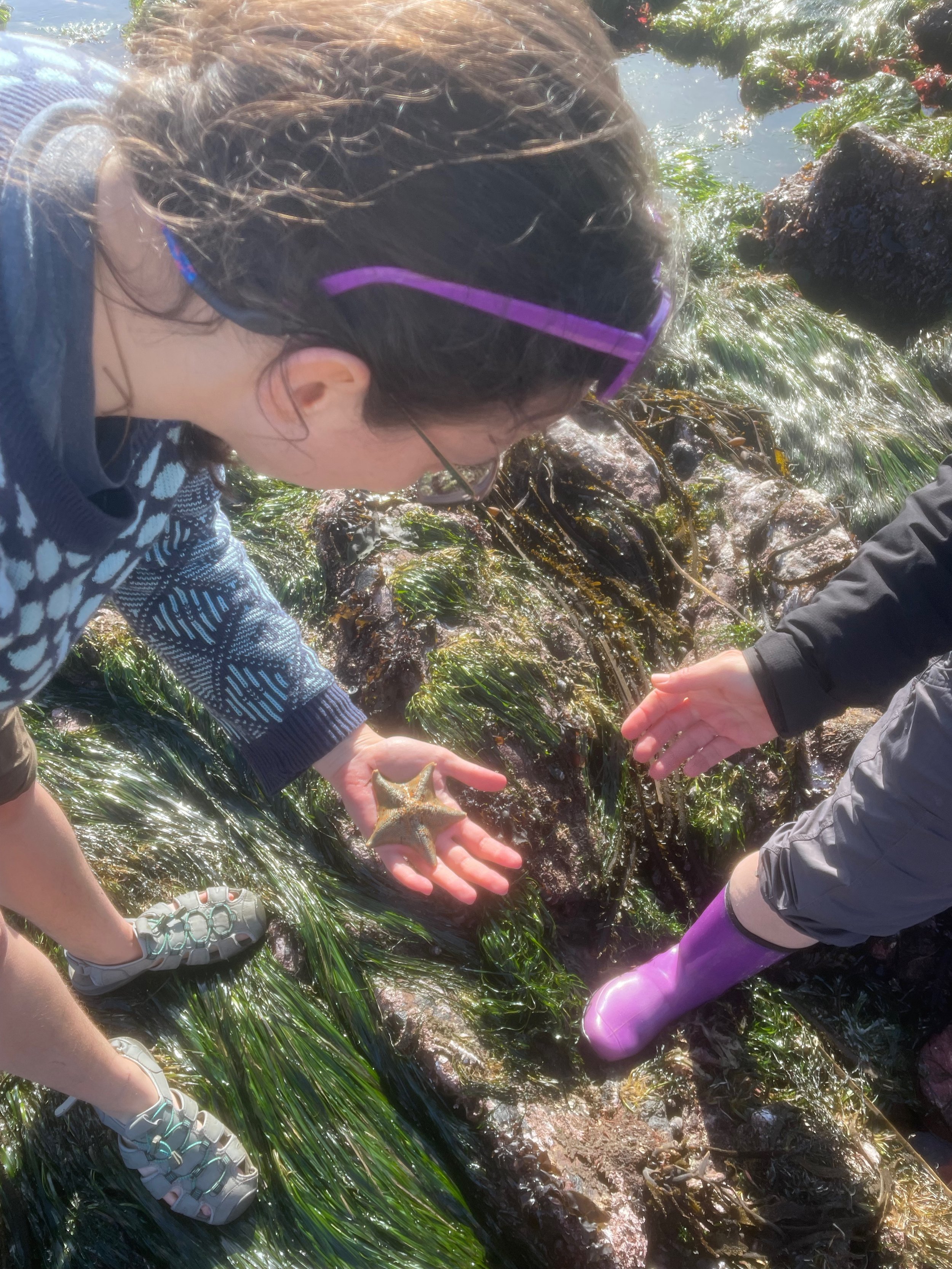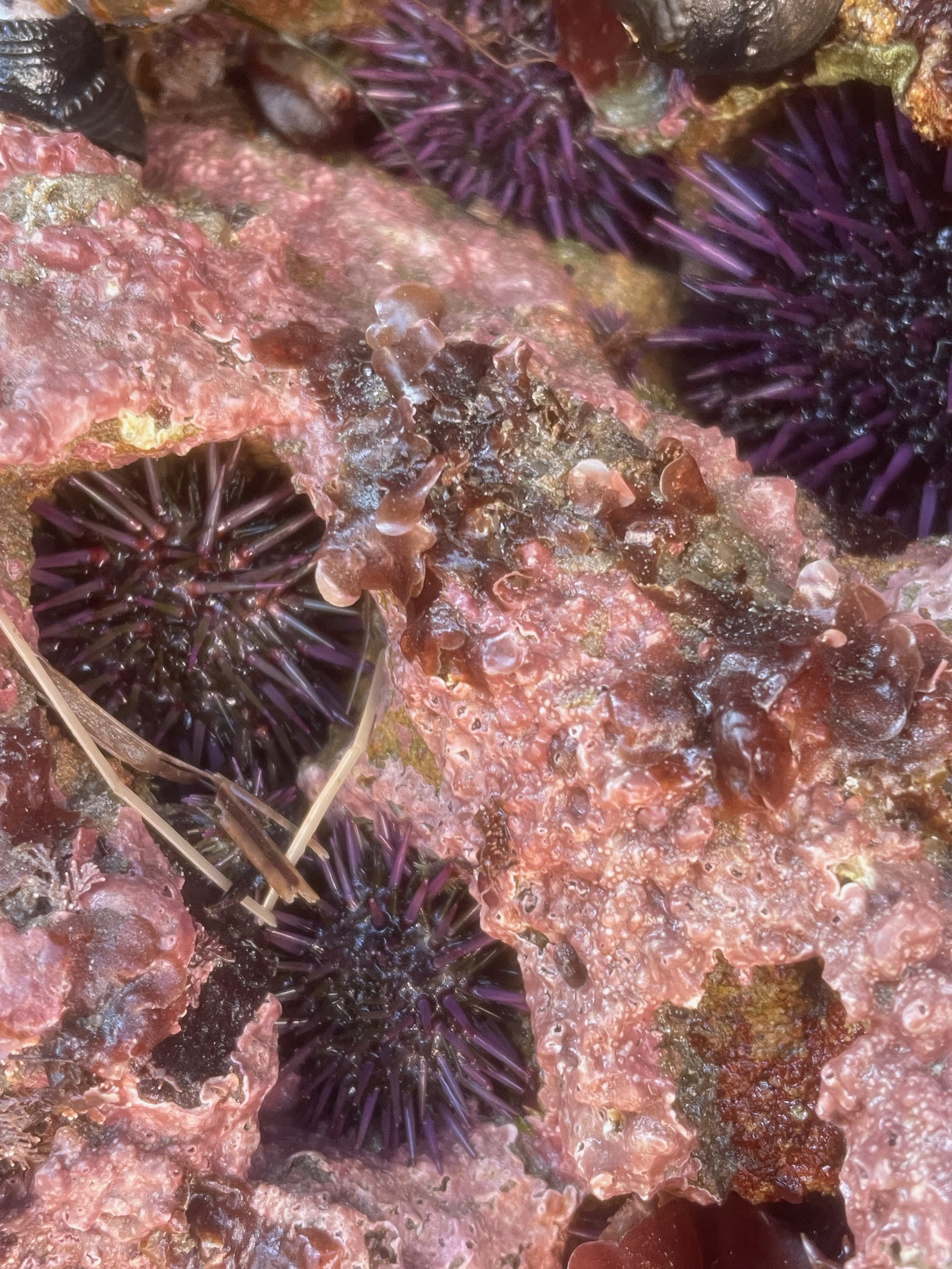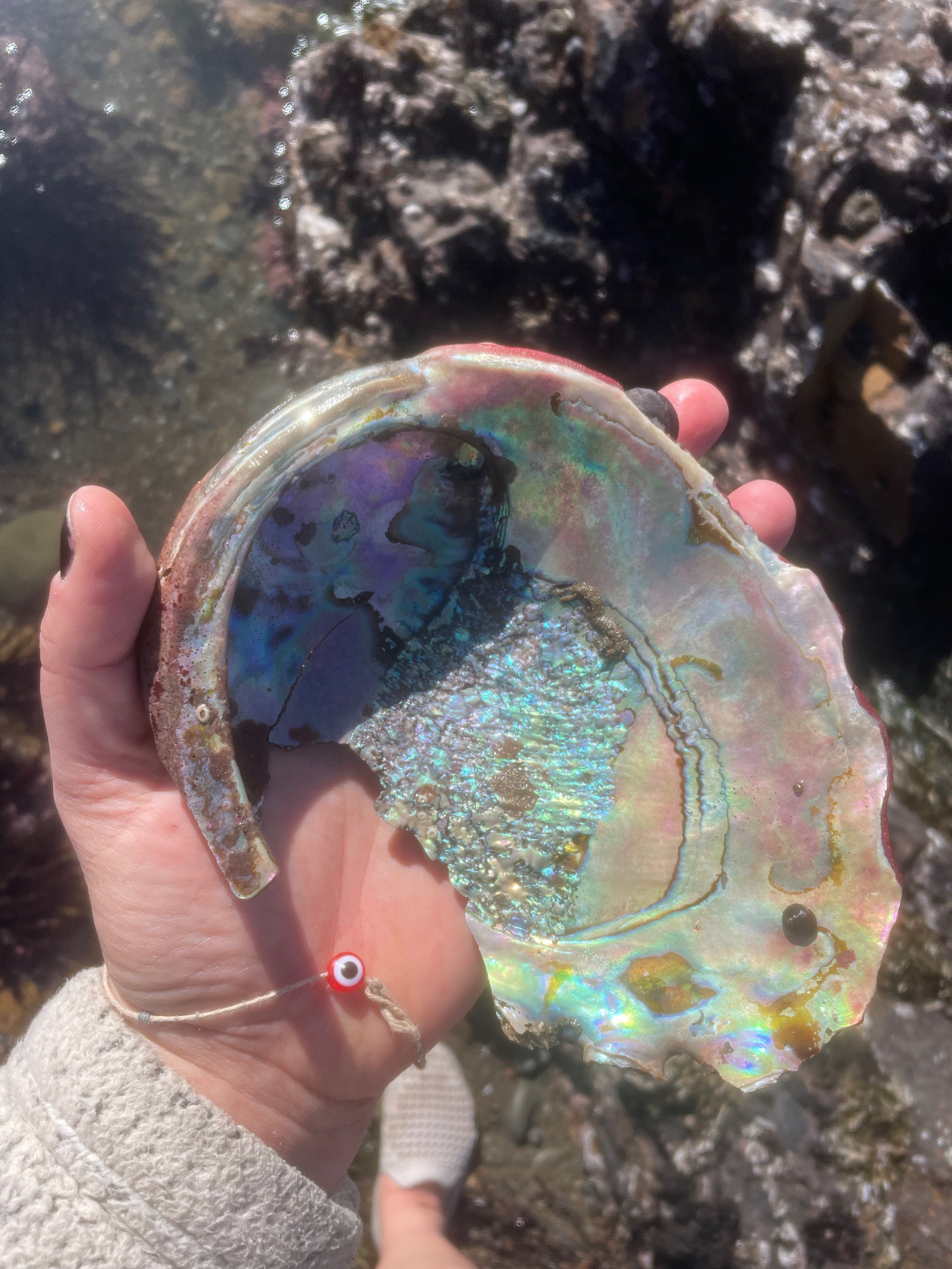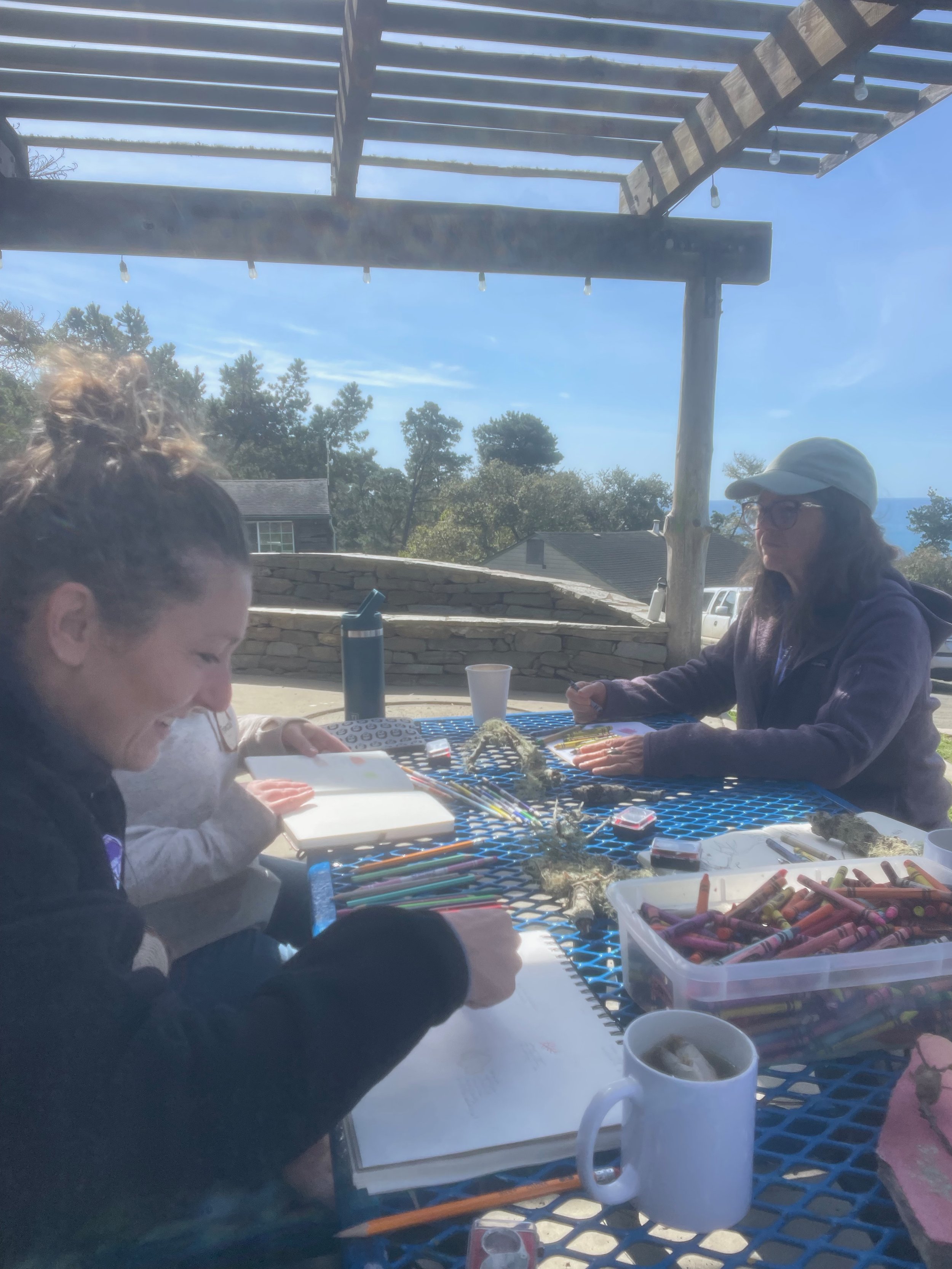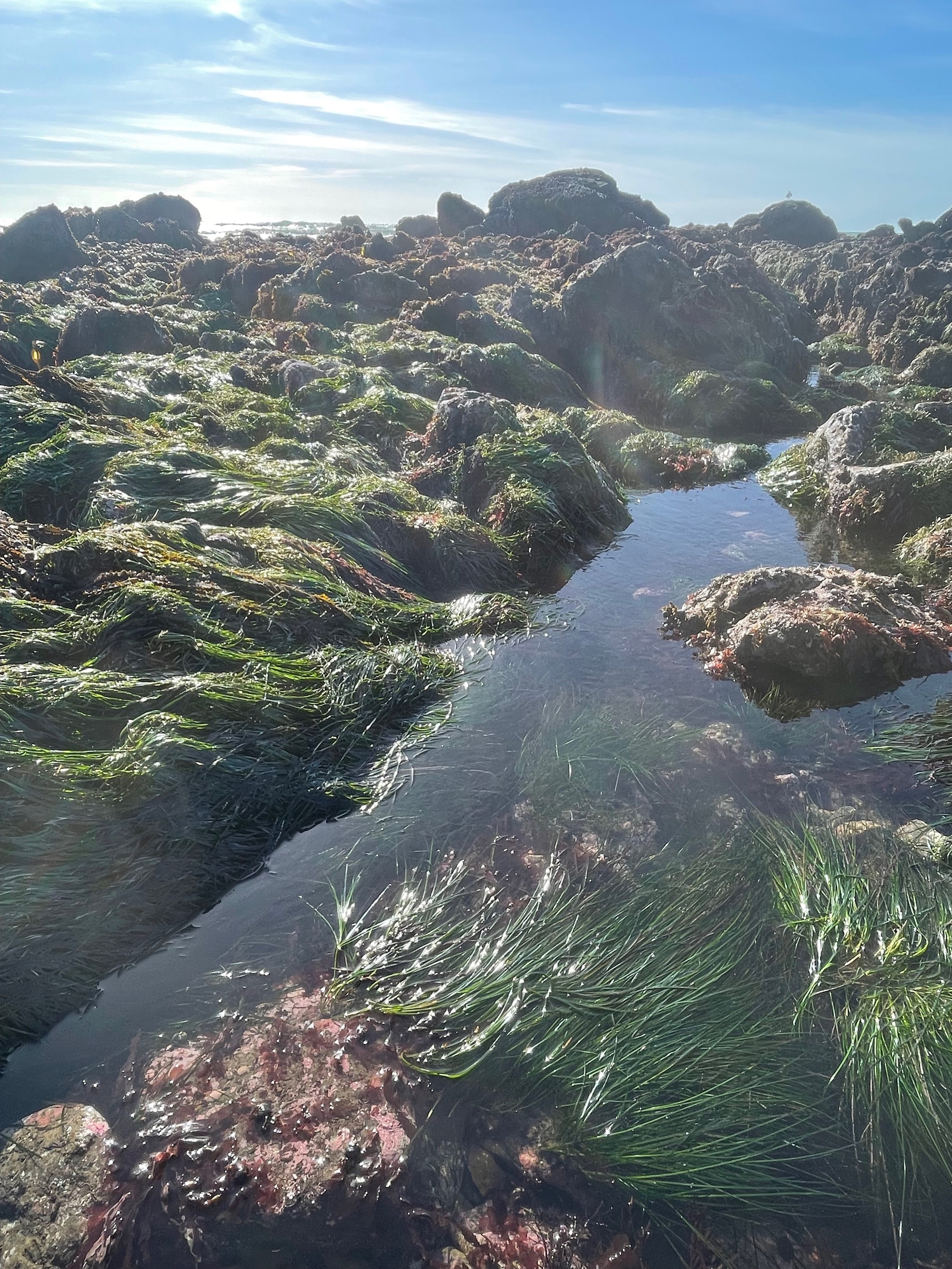Experimental Environmental Education Workshops
UPCOMING WORKSHOPS
Into the Tides
When the tides recede deep into the ocean, a rich underwater world is uncovered. Sea stars, limpets and barnacles cling to rocks, giant squishy sea hares plop into place and crabs scuttle over everything. The world revealed is dynamic and complicated, fluorescent and tiny, globular and expansive. Join LA based nature workshop “Into the Field” as we explore one of California’s juiciest tidal areas, the coast of Cambria. We will learn about these ecosystems, the species we may find and the history of their exploration, before taking one or two long expeditions “into the tides.”
Participants are invited to stay in shared, cozy cabins, complete with warm showers and nestled into a rare, ancient Monterey Pine grove. In the morning, you will wake to see families of deer tiptoeing through dappled sunlight and hear sea lions barking over softly crashing waves.
This is a unique opportunity to have a short, otherworldly adventure in a nearby, often covered universe. We will sketch, talk, look closely, hang out by a cozy fire and meet tons of nonhuman characters. As with all journeys into the wild, you may expect to return to your daily life with a shifted perspective and a wealth of new knowledge.
Michelle Antonisse is the Manager of Pedagogy and Practice at MOCA (Museum of Contemporary Art) and a practicing artist. She is also a certified California Naturalist and Artist in Residence at Camp Ocean Pines. Her own art deals with the human relationship to “nature”, the process of creating narratives and ways of understanding nonhuman stories through a human lens.
Tide pooling, or exploring tide pools, involves traversing slick and uneven terrain on foot. If you have mobility difficulties this workshop may be challenging.
On-site lodging - $520 plan includes lodging for 2 nights, 6 meals and all instruction
Off-site lodging - $445 plan includes 6 meals, all instruction, but no overnight lodging
1/30/26-2/1/26
Cambria, CA
PAST WORKSHOPS
The first Field Journaling Weekend Workshop was held at Camp Ocean Pines in November 2018. At this workshop, participants learned the history of field journaling as a scientific procedure, before creating their own, personalized practice of journaling. Experiments in recording sounds, forms, patterns and textures helped students to engage their creative, communicative and scientific selves. Through close looking exercises and guided reflective conversation, participants deepened their experience of the countless species that we encountered, which included Sea Urchin, Rubber Band Lichen, Monterey Pine Trees, Ochre Starfish, Elephant Seals, Mule Deer and Acorn Woodpeckers.
Quotes from students:
“The field journaling workshop was the perfect retreat, providing a space to engage and reflect on the natural world more intimately, taking the time to see and note hidden details, learning methods for communicating perspective and texture and light, and sharing our observations with one another.”
“I was surprised to learn that drawing is a calming activity in addition to being useful. I realized that sometimes when I am writing, photographs don't illustrate an example as well as a drawing. Michelle is a very encouraging instructor with a well-rounded approach.”
Wear Your Art: Sunday Studio; a workshop with artist Michelle Antonisse, was a family program held at MOCA (The Museum of Contemporary Art) on April 14, 2019. At this event, Michelle Antonisse gave short hourly lectures that discussed the practice of drag and the concept of performing identity through clothes, make-up and accessories as well as behavior. During this talk, Michelle introduced and shared her alter-ego, She Shell, as an example. Visitors were then invited to play with how they see themselves, how others see them, and how they might like to be seen by creating expressive, colorful and textured wearable artworks. Participants shaped expressive materials like foam, wire, plastic flowers, and small figurines into hats, pins, epaulets, and other accessories, mirroring and playing with the maker's identity.
Maiden(hair) Voyage was the first in a series of experimental environmental education experiences for adults, titled “Into the Field.” This two hour program took place February 9th in Griffith park. First, adult learners looked closely together at a maidenhair fern specimen as well as a field journal page, collaboratively discussing the plant’s unique mythology, reproductive functions, and aesthetic. Then participants entered a riparian environment, where the ferns were plentiful. There, after a few quick sketching exercises and a looking meditation, each person did a long-form drawing or writing piece about one specimen as it was found in the wild. The experience concluded with a reflective discussion about this learning process, and a final Q&A, answering any lingering questions about the ferns themselves.
Mindful Drawing: A Close Look at Wildflowers was a drawing workshop offered as part of Rancho del Oso’s Annual Wildflower Festival in Big Basin Redwoods State Park (Santa Cruz, CA). Both of the two hour long sessions focused on the use of drawing to look closely, and change the viewer’s way of seeing. Visitors practiced quick, gestural sketches to warm up the hands, then did a guided looking meditation to see shapes, lines, forms and shadows in the flowers before a final, long drawing.
The second “Into the Field” workshop, Moss and the microjungle was focused on the ecology, botany and cultural significance of bryophytes, or mosses. First, participants gathered to meet each other and explore some small samples of dried moss. There was a short lecture on moss lifecycles and moss sex, featuring playfully sculpted examples of moss’ reproductive stages, as well as a conversation about the organisms and ecosystems contained within the structure of moss. Then, we headed “into the field” to explore mosses and liverworts in their environment. There were guided looking meditations, long periods of focused writing and drawing, and a final shareout to zoom in on emerging questions about these tiny worlds. This workshop took place in Griffith Park, Los Angeles on March 31st.
Sycamores and Silky Oaks: A Tale of Two Treesies was the third “Into the Field” adventure focused on two different non-native trees that make their home in Griffith Park. We first examined the spindly and fluorescent inflorescences of the silky oak, using a tree identification worksheet to notice its complex structures. Then we did a meditation and drawing exercise, looking at the tree from a distance. Next we moved on to the Sycamore. After a short poetry reading, we tried to differentiate native Sycamores and trees hybridized with the London Plane. We used this information to have a larger conversation about invasive plants and cycles of hybridization before reflecting on the day as a whole.
The second Nature Journaling Weekend Workshop was held at Camp Ocean Pines in September 2019. This time around, students zoomed in on their relationship to their existing journaling practice. Experiments in color matching, collaborative poetry, gestural sketching and long form drawing helped participants to experiment with how they experience the wild, and how they communicate that experience on paper. We had nightly camp fires, an epic trip to watch elephant seals, and one extremely early morning where we got up at dawn to explore Cambria’s early morning tide pools.
We returned to Camp Ocean Pines for the third Nature Journaling Weekend Workshop Labor Day weekend of 2021. A group of seven intrepid learners dove deep into their journaling practice by looking closely at their own practice and learning from each others struggles and success. This group was an entirely new cohort, so we started with some introductory history about the history of field journaling and the many techniques people may use. Over the long weekend, we explored sketching and watercoloring techniques, saw a humpback whale, had several loud and joyful campfire hang outs, and took one long hammock siesta.
At the very beginning of 2022, we journeyed Into the Tides at Camp Ocean Pines. This was the first ever weekend long tide pooling intensive offered by Into the Field and it was a huge success! We learned a lot about the creatures of the tide pools, and the history of their exploration, before diving into the cold waters ourselves. We found lots of exciting new, non human friends, including lots of bat stars and a sea lemon nudibranch! In addition to lots of time looking and exploring, we did some sketching lessons and lots of bonding while gazing into the deep dark night sky freckled with stars.
The second Into the Tides was at Camp Ocean Pines in February of 2023, a rainy and cool weekend filled with laughter and learning. The eight participants spent a lot of time learning about the creatures that live in the intertidal zones, before venturing “into the tides” to explore together. We also spent some time learning about color theory, sketching practices, and each other by playing games and practicing new skills.
On January 7th, 2024, Audubon Center at Deb’s Park hosted the official book launch for the Out of the Field workbook. Over 40 people came through to buy workbooks, and to connect to the environment through color, line, writing, and conversation. The event featured 3 free Into the Field styled worksheets, specific to the ecology of Debs Park and focusing on the Toyon plant and Scrub Jay bird, two iconic species in Southern California.
In February 2025, we journeyed Into the Tides again to meet sea stars, lace lichen, mule deer, anemones, sea grass and Monterey pines. We did some color theory and sketching exercises before taking a long, sunset stroll through the inner-tidal. We found the tinest baby sea star, and tons of dense, tight-knit communities of oceanic creatures. We were lucky to share the space with a jam band group, that serenaded us late into the night by a cozy fireplace.
In the fourth “Into the Field” workshop, You Can Know A Yucca, participants began by looking closely at dried hesperoyucca pods and leaves. Then, we discussed the rich botany and ethnobotany of these plants, which are not quite yuccas, nor are they quite an agave, their slightly closer cousin. Braving the hot summer heat of Eaton Canyon, we sat in still meditation in front of several hesperoyuccas that had candled, or recently bloomed, considering the life cycle, shadows, highlight and forms in front of us. Then we did some drawing and close looking as a group before we traipsed through the desert brush to find more individual plants to learn from. In the dried river bed, we found surprising tracks, textures, beings and of course some hesperoyuccas.
The fifth (and sixth) “Into the Field” workshops were both called, It’s Eucalyptime! Because of the busy holidays and rich material, this workshop was offered twice, both times focusing on what else- eucalyptus! These naked, elegant giants sometimes dot and sometimes dominate Los Angeles with their alien flower structures and crisp, clearing smell. We looked at the poetic structure of the tree and leaves, as well as its complex, controversial history, botanical reality and wild health benefits. As usual we looked closely, talked, wrote, drew, meditated and learned together.
During Labor Day weekend, 2022, Camp Ocean Pines hosted Field Journaling I & II. For three days, we explored ideas about color, line, memory, composition, research, tone and form as a reflective community. As always, the food was amazing and new friendships were formed. We even took a field trip to the local Moonstone Beach to capture the saturated pebbles using newly learned techniques and color theories. It was a true delight!
In early October, 2023, we held the fifth installment of Field Journaling I & II at Camp Ocean Pines. This was an intimate journey, with five participants, but lots of deep learning and exploration. We learned from lots of different examples of field journals, and spent a lot of time on our own exploring concepts of drawing, writing, community-building, and the natural world. We stayed around camp most days, but went to Moonstone Beach as a group to experiment with line and color as the dramatic waves hit the shore.
Into the Tides part THREE was held at Camp Ocean Pines in early March 2024. Ten intrepid adventurers made their way from all across California (and Ohio!) to explore the intertidal zones through drawing, talking, laughing, poking, and slipping around. Many of the into-the-tiders were joining old friends for a sweet weekend of new friends, camp fires, lessons on radical ecologies, videos about barnacle sex (!) and tons of learning.
